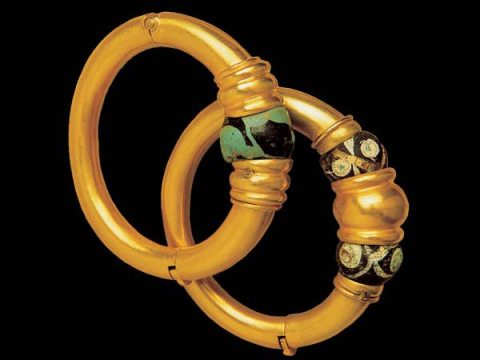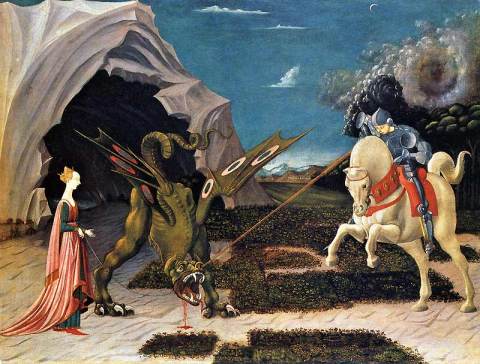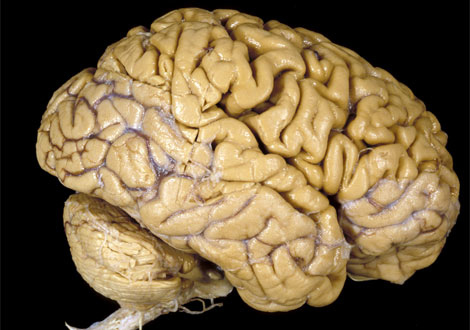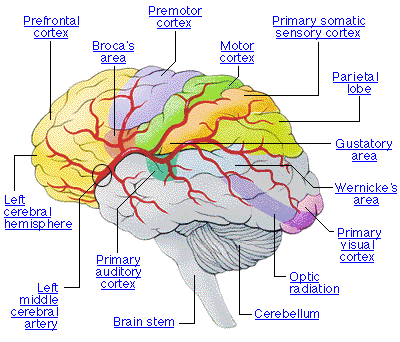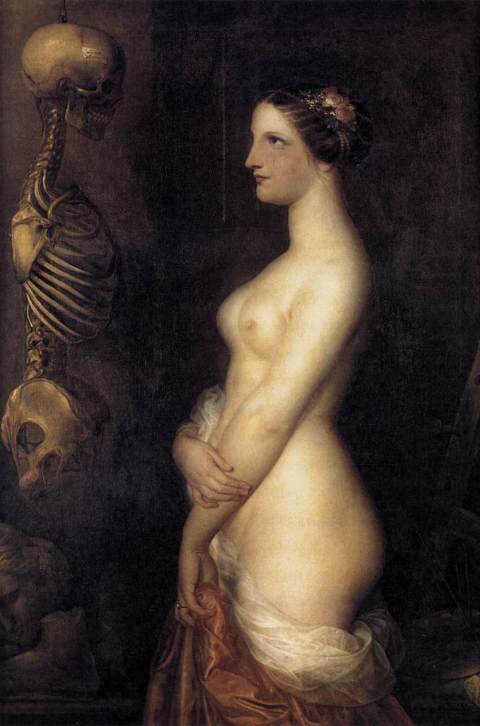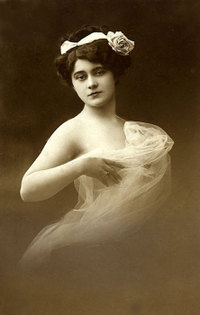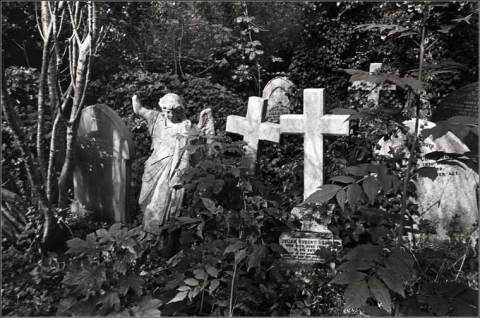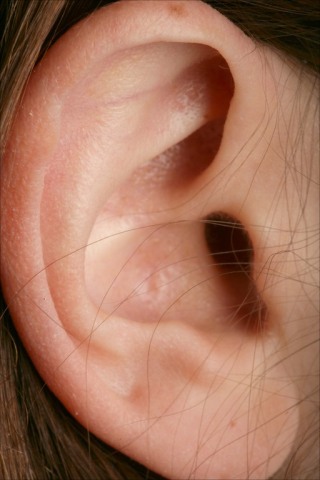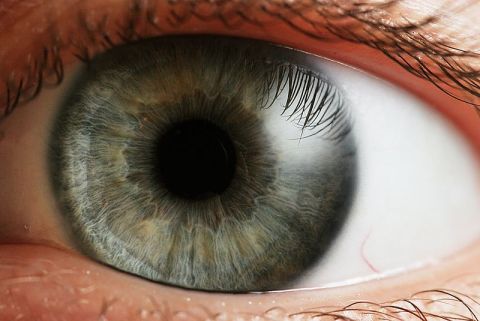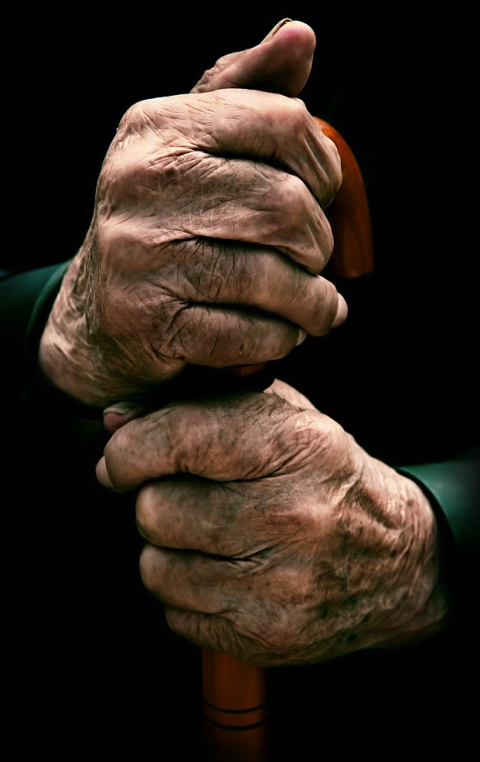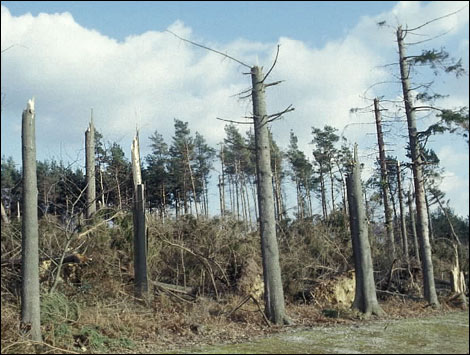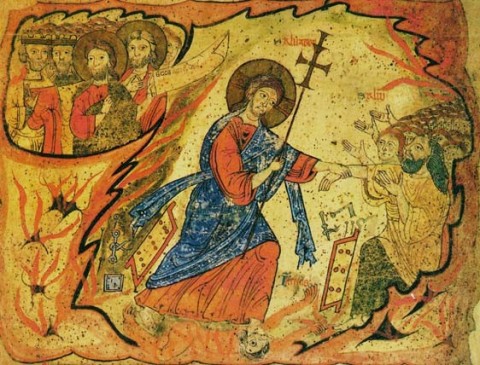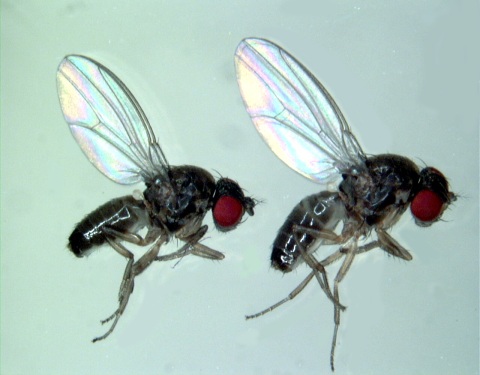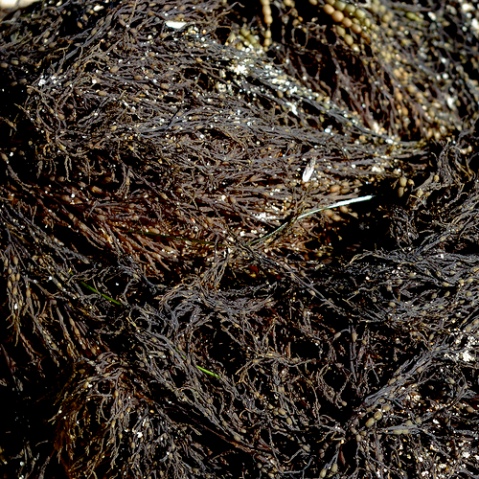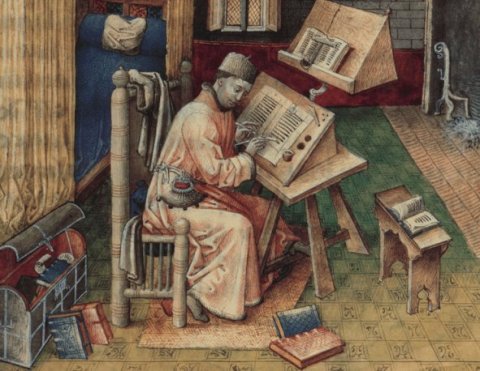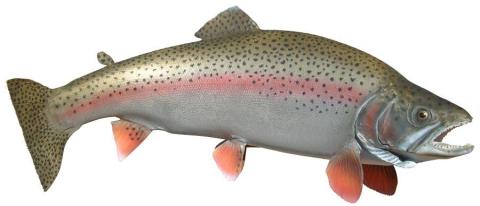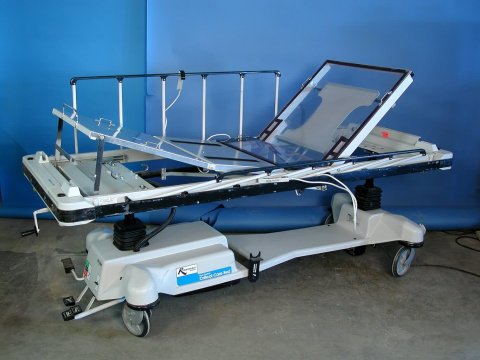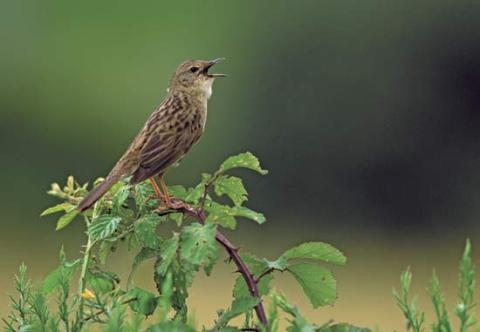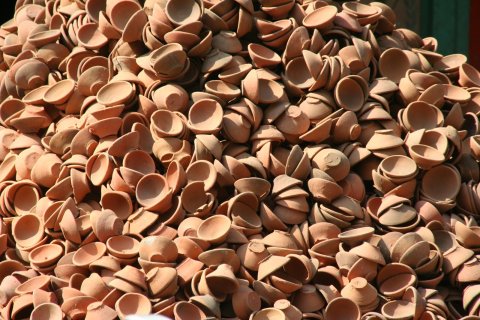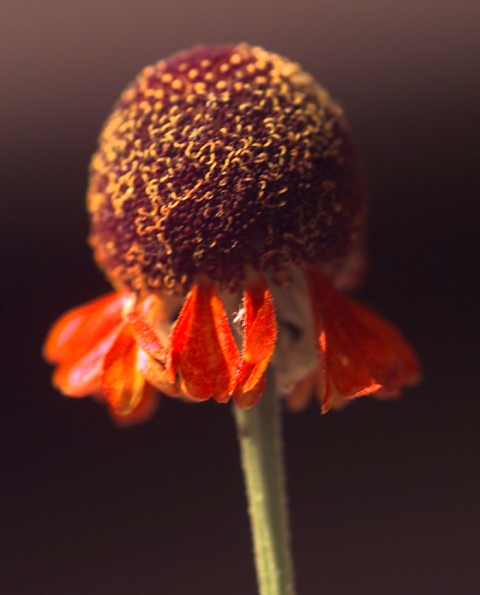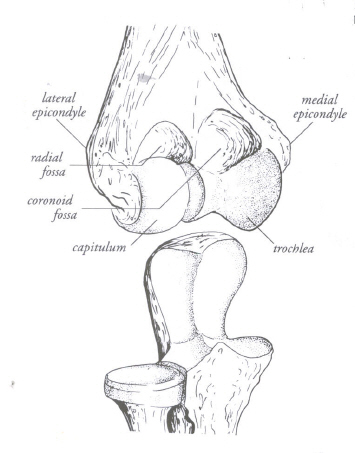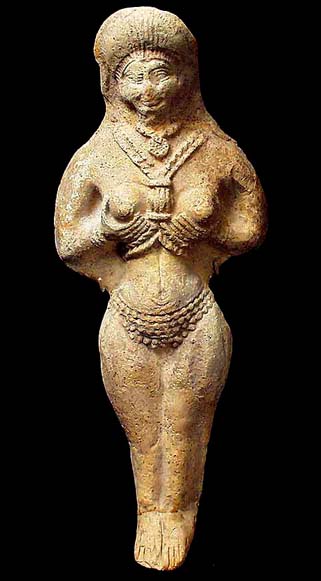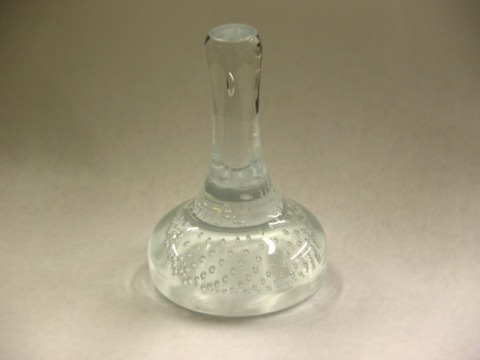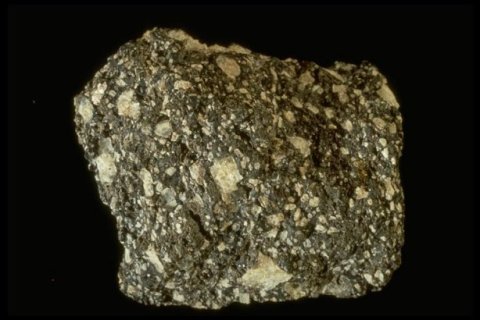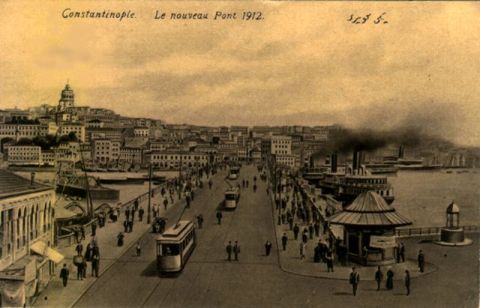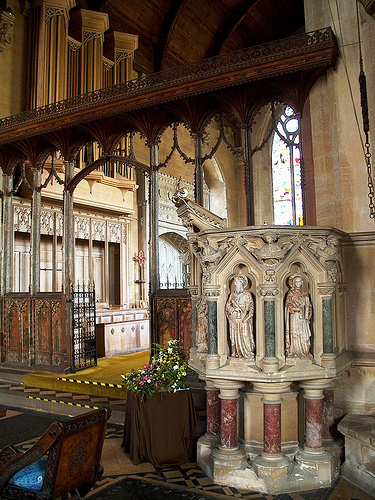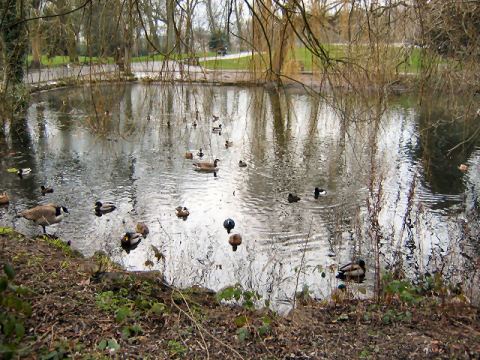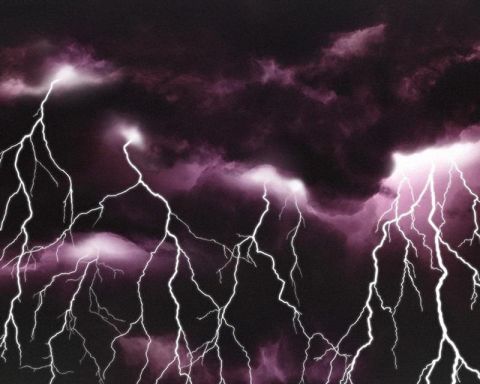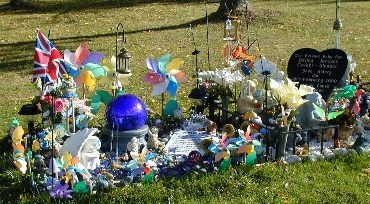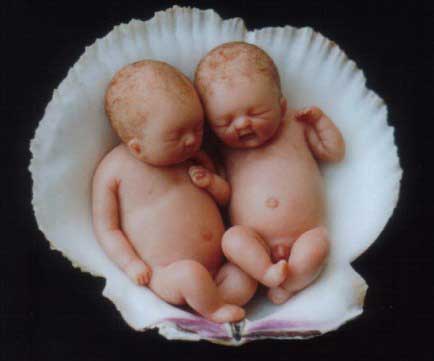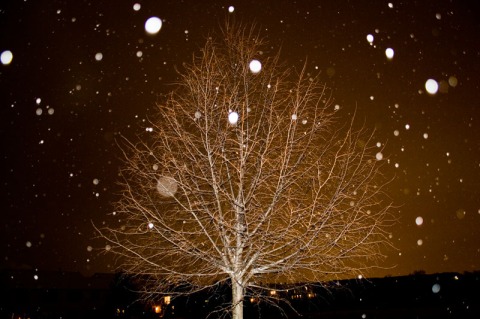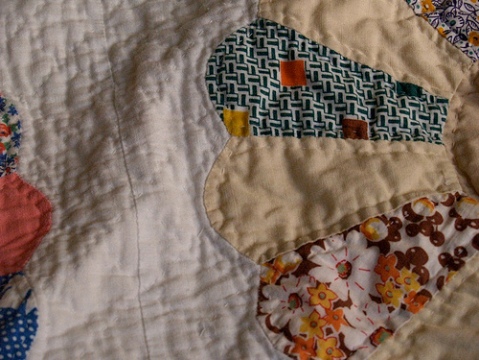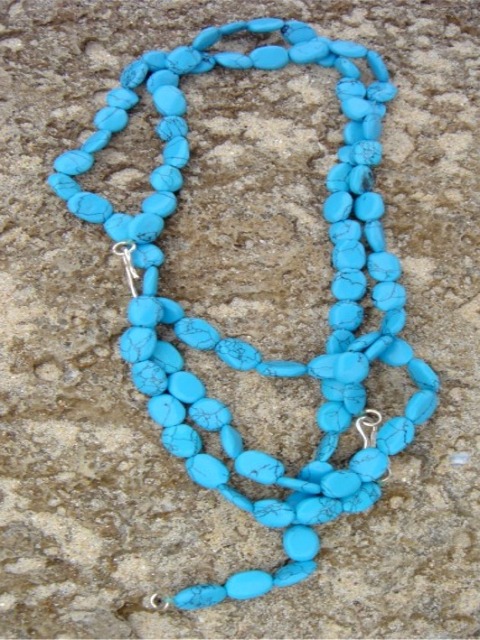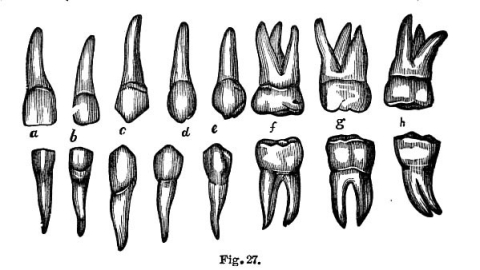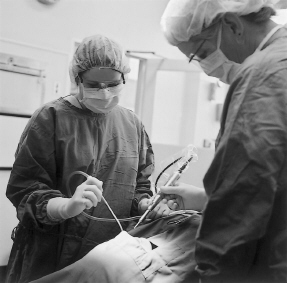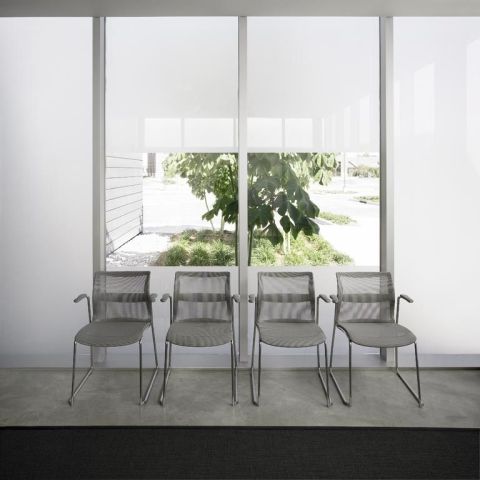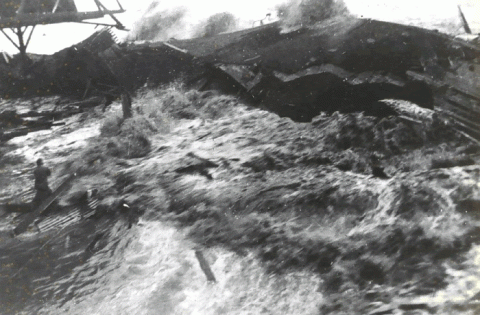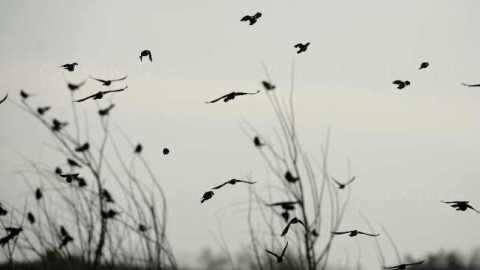WINIFRED-EMMA: FORGET THE NOBLE TRUTHS CHAPTERS 6 – 10
November 29, 2008
___________________________________________
CHAPTER 6: JESSERENT
___________________________________________
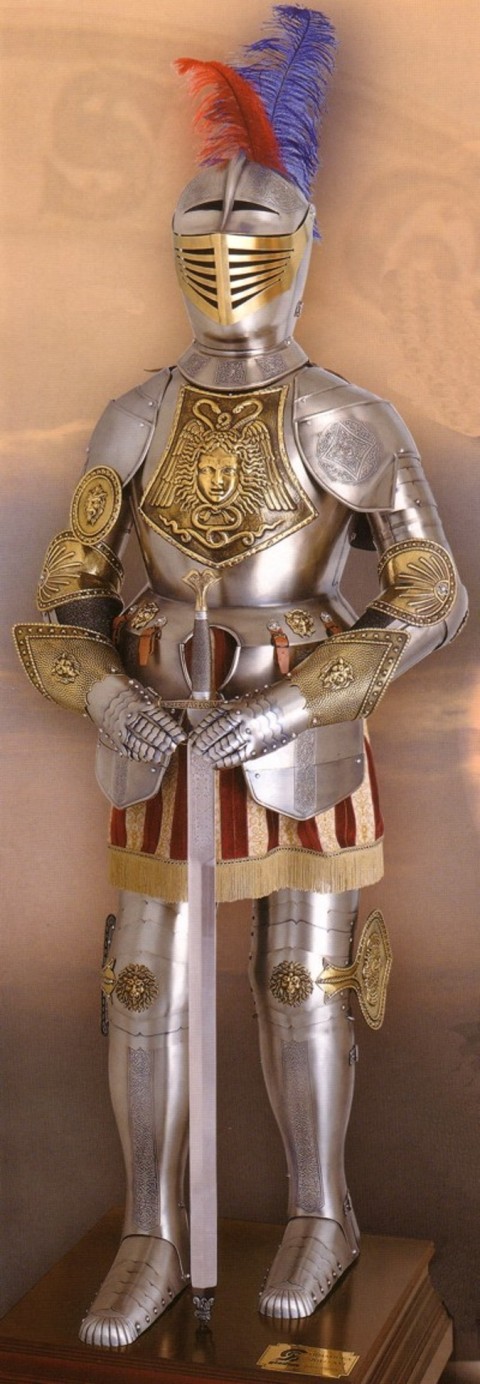
THE SIXTH GATE
Jesserent, Jazzerant,, a splint armour, [O. Fr. jaseran (t), jazzeran – Sp. jacerina.]
The process of loosing the scriptures; the motives for Innana’s descent, jesserent, Molly’s bones; coverings; the cemetery re-visited; the dentists return; wave and mountain dream; Uccello’s St George and the dragon.
The process of loosing the scriptures
This process of loosing the scriptures, the rules or ‘laws’ by which she had lived her life was having an effect. w-e felt the ambiguity of the client in the hair-stylist’s chair, who says “I want a complete change” and then adds nervously “but don’t alter the length”.
The loosing by expansion, using additional information gleaned through the internet to change her relation to what she already knew by dilution had been a good plan, and had worked, was working. But the story of Inanna and her descent to the underworld had refocused the new material in a way she had not expected. It had re-connected her to things which she had already almost succeeded in forgetting, or at least ignoring. She had understood Death’s injunction, ‘to listen to the screaming’ to be, in theory, therapeutically, morally and socially a good thing, but to actually experience it was not pleasant. She realised now that to abandon the rules, meant also to a certain extent to abandon rationality, and though the rational had not ever been her god or goal, still the loss of it might tip her into the same pit into which her brother had fallen, and from which he had not been able to return. He had been stuck, in terms of the Inanna story, because unlike Erseshkegal he had had no comforters, and so, for him, the constant screaming had never stopped.
The motives for Innana’s descent, jesserent, Molly’s bones
So, thought w-e, the motives for Innana’s descent to comfort Ereshkegal were certainly mixed. Of course she would have wanted to stop her crying because Ereshkegal was her sister and was mourning the death of her husband, but also it would have been because the sound of crying was impinging on her life, and once she began to hear it, it would have increased in volume and become impossible to ignore.
The computer had absolutely nothing to say on jesserent or jazzerant, and this in itself was unexpected, it brought w-e to a temporary halt, though apparently it had plenty to say about splints (548,000 hits) and armour (4,390,000 hits). The splints took w-e’s mind back to Molly’s broken arm, she knew Molly had been anxious about going to hospital to have surgery because the cardigan she had helped to drape around Molly’s shoulders had a beautiful Norwegian pattern, and when she admired it Molly said it had belonged to a friend of hers, who was in her nineties and had gone into hospital for something minor, but through a series of errors had been returned to the operating theatre four or five times, and died of an infection. Molly’s eyes, normally peaceful were wide open to something alarming, “I really don’t want to go in for surgery” she said, and later when w-e mentioned this, Sylvia said “I don’t blame her, I would not like to have to go in myself.”
“But don’t you think hospital hygiene will improve, after all there has been a lot of publicity about it? asked w-e.
“I don’t think so. When I was nursing as soon as a patient left a bed we would strip it, but we had a trolley by the bed, everything went into a trolley, now they pull bedclothes off and they go on the floor. Spreads infection. In Sweden they take the whole bed away to spray disinfect it, and a newly sterile bed is wheeled in for the next patient. We used to wash the whole bed frame with a special disinfectant, everywhere, including underneath and it was left to dry, for several hours, that way you could be sure it was safe. Now there is no time to do that, they use ‘wipes’, but only across the mattress, its not the same.” The dismissive way she inflected the word ‘wipes’ showed a strength of feeling unusual for Sylvia.
“So the patient gets into an infected bed.”
“Very often they do. We had basins for hand washing, one in every four-bed ward, with disinfecting soap in a bottle, sometimes I came home with my hands raw from washing, the doctors also used to wash hands between patients, now they don’t always.” She didn’t think things would change soon, “the whole system is against it, there is no sister to control the ward, make sure things are done rightly”.
w-e hoped devoutly not to have to enter hospital herself and she worried about Molly. When she met her next on their landing Molly was sitting with her hair in rollers, her head under a helmet hair drier of a kind w-e had not seen since the 1970s. The volunteer hairdresser had arrived, and was using the landing as her salon. w-e saw the mottled and blackened arm in a new kind of sling. Apparently the collar and cuff arrangement had been the wrong kind of support as the bone was splintered and separated from the head which had come out of the shoulder socket. This new kind of splint/sling was to help the head to connect back into the socket, but they thought it was unlikely to succeed, “They think there will have to be surgery.”
In order to encourage her and also because she did think it likely w-e said she thought god would be on Molly’s side, after all Molly spent her life in the service of god, spreading the word in an even peaceful manner, and knowing that she had the truth, must surely as Molly herself had said “make a difference”.
Coverings
As she sat on the tube on her first outing for weeks, w-e’s thoughts turned on armour as a covering, protective, healing, adorning, rank-signalling, she wrote a note as best she could bracing against the wobble of the train. Then she re-wrote it in capital letters in the hope of being able to decipher it later. Images of clothes and uniforms, of conformity and rebellion drifted unordered through her mind. She remembered talking with her friend Mark, who had gone to Ibiza, opened a club and disappeared into the money it made. He had opened her eyes to clothes, and through him she began to notice what they signalled, how much information they gave if you paid attention to them. For a while she had gone out to watch people on the street, each person coming towards her was so densely and richly defined, such shades and glimmerings of needs, neglects, compensations. She had become carelessly blind to them, forgotten the whole thing.
Now she connected coverings with rules, rules as protective, as splints, forbidding movement, necessarily restrictive, rules as obscuring, blocking the ears to alternatives, to the present, and these were necessary because all alternatives could not be gone through, not even once. Each enquiry would spread out creating new planets, suns, galaxies, the right answer, or indeed any answer could not be arrived at because enquiry was a creative force that constantly overtook each possible destination.
The disadvantage of imposed rules, the laws of religion or state, was their inflexibility, they were cumbersome and slow to modulate, whereas enquiry darted and flashed mercurially forward and backward, often inviting transgression. The desire to loose the rules she lived by, had been brought about because she recognised that her security had become her prison.
But there was to be no change of one order to another without moving through chaos, she understood this to be lawful, not the imposition of a law but the way it had to be, no new order could arise before the dissolution of the old, unless that is a person was living outside the constraints of time. It was time that folded and unfold events, like a pleated curtain drawn back and forth across a window, or perhaps it was memory which ordered things in sequence and out of sequence which seemed to hold and reinforce the old order, yet sometimes new thoughts came, from where? The story of Inanna, which she had been drawn to in the understanding that Ereshkegal represented some split off part of herself that was seeking reconciliation, now re-presented its narrative in terms of sibling relations. Her descent to comfort her own sibling had already been made, and to no satisfactory outcome, because in the end however much she loved her brother she could not agree to die with him, which is what he wanted.
The friend she met for lunch had an unusual approach to clothes. He told her that twenty years ago he had gone into a camping supply shop, for tent-pegs, or whatever, and it had a sale on, so he bought forty green t-shirts and was still wearing them. “Some are still new, or new-ish, if I have to go somewhere and look respectable I root through them for a new one.” His jackets, also green, were a series of identical easily recognisable garments, he was famous for having one permanently over the back of his office chair, giving out the message of his presence somewhere in the building, whilst in fact he might be, and often was, far away wearing another jacket.
He took off a green jacket revealing a green t-shirt, the fact that it was a much used one indicated that she was a friend for whom being respectable was not necessary, a complement in its way. His clothes spoke of a desire to halt or deny change, to appear consistently equable, and to be seen in his own terms, unvaryingly in his work role, this was comfortingly reliable, meant that he would be thought of as “always the same”, though of course this could not be true, his clothes were as deceptive as those of a Rolex wearing, chequebook clad man, though the motives for the deception might be different. Clothes showed how much power a person, desired, agreed to, or admitted to having, the power could be sexual, financial, political or it could be as ambitious as her friend’s clothes which showed an heroic denial or holding back of time.
Inanna’s powers were made visible by her crown, her lapis beads, her breastplate, her double strand of beads, her gold bracelets, her measuring rod and line, her royal robe. Life had formed round her, not just as a protective shell which is how w-e had always thought of armour, a place to hide, but as a declaration of her powers, magnificent like the armour w-e had seen in a museum, engraved and inset with gold and silver, embellished with cutting edges on elbow and knee, spiked helmets creating an aura of safety for the wearer who, close to, became lethal. Inanna’s powers defined her, separated her from others. When these outwards signs were removed, she was revealed in her nakedness she became one with her subjects, and her fate became the fate of all.
The cemetery re-visited
A few days later, w-e went out to post a letter and decided to carry on for a short walk, before it got dark, so she headed for the cemetery rather than up the steep hill to the duck pond, passing a couple of elderly women deep in conversation. The entrance to the cemetery was strewn all down the right hand side with plastic carrier bags of various sizes and colours, it looked as though a competition for plastic bag strewing had been held, and then she realized that the wind must have blown all the bags to that side, the left side had none, but then she wondered in the seventy five yards between the road, the big metal entrance gates and the entry to the cemetery itself, how had so many carrier bags been let go, most people visited in a car, as a notice on the fence warned ‘Stop Beware of Pedestrians’, ‘Be aware of pedestrians’ edited w-e crossly, noticing for the first time that a whole batch of instructions were also given about accompanied children and guide dogs.
Inside amongst the winter greys across the whole field of graves, there was a bright dotting of red plastic roses, and poinsettias of exactly the same red, the first ones she passed were on large double bed sized marble graves were clearly Christmas table decorations, poinsettias and fir cones, in baskets, with silvery bits, this looked like a surprisingly frugal recycling. Later on she saw some Christmas door wreaths, holly with berries and plastic red roses, or fir with cones, laurel and plastic lilac coloured anemones, in one case the string from which the wreath had hung on the front door trailed across the grave.
There had been several new Swiss chalet type rest homes for the watering cans built, one of these was now sited opposite the much visited, often chaotically disordered grave of the sixties singer, which had had a good clear out since she had last seen it. Beyond, where the new graves were she saw a young woman standing at the grave where she had seen oil lamps, “she must have come to refill the oil”, thought w-e, interested but not wanting to stare. As she rounded the curve of the path she saw the exceptionally small young woman changing her tiny Wellingtons for tiny shoes at the back of her four-wheel drive, so w-e felt she could now look over at the grave which seemed to hold even more flowers than before, huge lilies had arrived, but she didn’t like to make a complete inventory.
As she went on she saw the large teddy bear, which had been on the grave, now sitting on a new pine bench, provided for mourners under the trees, above it someone had hung a multicoloured woven banner, similar to a kind of new-agey priest’s stole she had once seen in church, and a set of metal wind chimes. The four-wheel drive took off with energy, probably not aware of anything much, let alone pedestrians. At the back of the teddy bear bench there was a cluster of vases, some were beautiful. What was going on? Was there a family feud, one side going down and putting the teddy bear and ‘our’ vases on the grave, the other side returning later to change things back?
Fascinated by the Christmas front-door wreaths, w-e counted twenty-five on the graves she passed, a few of these had little florists gift notes encased in plastic envelopes, and looked as though they had been delivered directly to the grave as a way of including the departed in the family celebrations.
At the main gates there was a group of eleven or twelve-year old boys, they radiated guilt, and actually huddled furtively, like a demonstration of a guilty huddle, she walked briskly past them, and on the way back passed elderly women still in the same spot, still earnestly talking. She also saw the man with the half-starved, ill looking dogs, he was a lot thinner himself, but no less threatening.
The dentists return
The days after new year passed and gradually dentists returned from their holidays, the flow of patients to and from the surgeries resumed. w-e had secured an appointment for the third day back of her own dentist, who had enjoyed a prolonged break in the American south, and took her abscess there. Lying back mostly with eyes shut behind a pair of plastic goggles she tried to relax but a mouth full of hands and implements, together with her fear of the processes made praying a better option, so she gave herself into god’s care continuously throughout the whole procedure. When she opened her eyes she saw hanging over her a round moon-like light, silvery with a hyacinth blue tint on the faceted glass at the rim. The next time she opened her eyes she seemed to be in a cavern looking up at distant alpine peaks, these were the mask and the white cuffs of the dentist and her assistant, another time she saw the soft gleam of her dentist’s eye as it peered into her mouth.
“We found the source of the infection” said her dentist, “ I expect you noticed the smell,” and indeed w-e had smelled the unpleasant puff of decay escaping her mouth. “The nerve was dead, it was black and rotting” added her dentist in an unusual spurt of vocalisation. “But I have cleaned it out and disinfected it”. w-e had to make a further appointment for the cleansing treatment to be repeated the following week, she was relieved to feel that she was no longer walking around as she had for the last month with pus from the rotting nerve inside her.
The next day she was alarmed to have another toothache, this time on the other side of her mouth, it was a Friday, and so rather than risk going on into the dentist-free zone of the week-end, she took herself back to the dentist, to see if she could have an emergency appointment. To her surprise the receptionist got up at once and said “I’m just going to find out if she will see you”, and came back saying that if w-e would wait the dentist would see her after the next patient. It was the afternoon and incredibly hot in the waiting room, the others waiting had shed their coats, and after a bit w-e also took off several layers, her coat, a jersey and a t-shirt.
She moved to sit some way from the receptionist who had a bad dose of the ‘flu’ saying apologetically that she did not want to re-infect herself. This proved to be a conversational opening for the woman opposite to give advice, about ’flu’, mothers and their children, in a transfixing flow of inaccurate medical information. Unless inhalations were carried out as she described, the poor receptionist would develop pneumonia, and then pleurisy followed inevitably by TB, but that would be alright because TB was now easily cured. w-e who knew that there were now strains of resistant TB and that cases of it were on the increase, managed to hold her tongue. “Mothers are the best doctors for their children” said the woman, “they know them, see them every day”. “She continued at length to recount the curing of her own son, brought back to her from New York because of his ’flu’, she discoursed on phlegm and as she did so gave a balletic mime of the site of the phlegm indicated by a hand touching her chest, using a rising gesture that showed its loosening and journey up to the throat, and a graceful turning of the hand conveyed its expulsion from the mouth. w-e wondered if her own flows of advice were as inaccurate and irritating, probably they were.
Through a window in the waiting room the sky looked a worrying colour until she identified it as the pink in a sky she had seen in a Monet painting, there was a fish-net of lichened green branches scratched glowingly across it, while through the other window the sky was a clear birds egg blue. Two transparent epoxy resin dolphins arched expensively from a blue curling wave on the receptionist’s desk, quiet fell on the waiting room, w-e waited.
Wave and mountain dream
Three nights later w-e dreamed she was on the side of a mountain with a female friend, looking down she saw the sea begin to splutter and boil, in her dream memory she knew of the danger of the giant wave, she told her friend they must leave, but they decided against the road they had come on, it was too low down, and they began to climb up the mountain where they would be safe. A third woman appeared who had chocolate that she offered them, w-e could not eat it, because it had nuts which she was allergic to, she worried that they would not find food. But at the top of the mountain they found a house, with a kitchen well stocked with food and decided to eat and leave money which w-e found in her pocket to pay for it.
Uccello’s St George and the Dragon
Years before w-e had tutored an exceptionally inventive seven year old American girl, who wanted to tell stories in her drawings. Her mother wanted her to make representational drawings of leaves and fruit. So they compromised, did a bit of each and in between w-e showed Cora-Belle postcards of the paintings and they talked about them. w-e remembered the Ucello painting now, because the boy hero St George was in armour and so she had just realized was the dragon, which had its own natural armour, only the chinless damsel was unprotected. The strangeness of this small painting lay for w-e in the fact that the damsel was passively holding a thread or lead which attached her to the dragon, she wasn’t tied to the dragon and could easily have separated herself from it if she had dropped the thread. She showed this to Cora-Belle, who bent over the card, her blond hair shocked forward, she looked up at w-e her eyes glazed, reaching back towards some source of knowledge, then she said in a dreamy voice, “I think they are the same person”, “the dragon and the damsel?” asked w-e, “yes” said Cora-Belle, “I think so.”
______________________________________
CHAPTER 7: LANGUAGE
______________________________________
THE SEVENTH GATE – LANGUAGE
the most diluting word so far; naked; the sound of cotton; memorial; checking out at the supermarket; jealousy; Donne’s poem; Helmshore refurbishment; rotting; Terminator Two; the flies; life stories; love and the most noble truth; Lent; first time reinstatement
language human speech: a variety of speech or body of words and idioms, especially that of a nation: mode of expression: diction: any manner of expressing thought or feeling: an artificial system of signs and symbols, with rules for forming intelligible communications, for use in e.g. a computer: a national branch of one of the religious or military Orders, e.g. Hospitilars.
The most diluting word so far
With this word the dictionary had come up with the most diluting word so far, whereas there had been no computer entries at all for jesserent, there were 197,000,000 for language. w-e entered additional qualifying words and found the following table of entries:
Language and
Number of hits
1.
Home
31,700,000
2.
Children
28,900,000
3.
Money
28,100,000
4.
Health
27,700,000
5.
Life
27,700,000
6.
Travel
21,800,000
7.
Food
18,600,000
8.
Religion
17,900,000
9.
Love
16,900,000
Language and politics, and death, and hope, and sport, and sex came next and in that order, language and babies hardly registered. w-e wondered if these numbers would be the same, if she were looking at the hits in Italian or Chinese, surely there would be cultural differences that would affect the order?
The languages she decided to look at, as most relevant to her purpose, were the ones connected to Inanna and Ereshkegal as Inanna passed through the seventh gate completely naked, Ereshkegal’s jealousy of Inanna, her killing rage and eye of death that left Inanna a corpse a piece of rotting meat to be hung on a hook in the wall. The insurance policy Inanna took out before she began her journey, the helpers created by her grandfather, their thereputic consolation of Ereshkegal, their negotiating and bargaining powers.
Naked
The computer connected naked with porn: films, and opportunities to meet ‘super hot girls ready to party’, or ‘free introductions to housewives, for a trial period.’ The front pages were all orientated towards supplying men with presumably naked at some stage, women, no invitations or trial periods for women to meet men, or other gender combinations. Probably they were represented somewhere in the forty-four million references to naked that Google had provided, but this was not the nakedness of Inanna, which in language terms was connected to vulnerability, powerlessness, a language unclothed in deceiving flattering disguises. A naked language, thought w-e, would be primal conveying meaning without room for doubt or misinterpretations, more a language of presence, of the swift transmission that tells you in the instant you meet someone for the first time an encyclopaedia of information, of attractions, and warnings, to be remembered later after events have run their course.
A Canadian woman told w-e of coming to London and staying by herself in an opulent apartment lent to her by friends of her parents. On her first evening she took herself out and succeeded in meeting a group of people and arranged to go to a movie with them the next day. But as she explained, “that apartment was pretty impressive, and I thought I might as well show it off”, so she invited them all to meet there first, for a drink. When she opened the door to them, they had brought a man with them who had not been there the night before. He was standing at the back of the group and she could see only part of his face and head. But just seeing this fragment of him was instantly and overwhelmingly exciting, and yes, this was her husband-to-be. What could have transmitted this powerful effect, it was enough to make one believe in ‘auras’ or ‘astral rays’, or simply fate, something quite different from needing or desiring to have free introductions to housewives for a trial period, though even there, life changing meetings must take place.
Verbal language thought w-e can relate to experience as an extrapolation or distillation, that gives an expression of a state, is a result of something, but in itself it does not account for the hormonal flows, the ‘astral rays’ or ‘fate’. “I love you” is the outcome of complex processes and these processes must also ‘speak’ or the words will be empty.
Most of human life goes on invisibly inside the body, breath, blood flows, digestion, the deepest most intimate functioning is beyond our experiential tracking, we can understand intellectually how the breath and blood are inter-related, but that is not at all the same as experiencing these processes. She knew that the language of explanations resulting from experiment and investigation also becomes void when separated from the experience of discovery.
This is how the noble truths of scriptures had become theoretical constructs, dams which hold back flowing experience. Small verbal expressions of something once experienced are held fast to as the ‘truth’ itself, and from this rules and modes of behaviour and belief, notions of immutable laws are formed. Emotional understandings reached through grief, fear or love find verbal forms but these become obstructive matter, gathering into rotting sores of resentment, jealousy or rage clogging and congealing, preventing the proper exchange of substances.
In both these cases life is restricted, the body of language becomes dust or slime. w-e realised that this is why she must abandon whatever she regarded as ‘wisdom’ start again to let life wave over her, she must allow for and value confusion, the hormones, all the invisible processes, the ‘rays’, and ‘fate’ itself. Though some things have to be held onto, some knowledge, some modes of doing things, ways to function retained, everything can not be let go. But knowledge itself is not wisdom, and it is the reverence for, or the privileging of some special knowledge, that becomes dead wisdom and must be let go.
The sound of cotton
Once these fleeting thoughts about language began to flicker, they connected unexpectedly with experience. As she put on her long white cotton nightdress she felt the pleasure in the sound the fabric made, the wrinkling and straightening movement of its substance was like the gentle breaking of water over rocks in a small stream, something that she loved to listen to.
When she was in Italy the family she stayed with used to go out in a large group to walk in the mountains, when they learned of her liking for the sound of water, they all stopped talking as they crossed small rivers or streams and stood still so that she could hear it. Were there a new cousin, or friend in the party, they would hush them, saying “she likes to listen”. Seen in the Italian context, the cotton sound could be thought of as a bit of a, by association, an indirect ‘madelaine’ moment. But in itself the sound spoke of something soothing, as did her computer which gave out a stream of sound as its innards whined, fluttered, gurgled, hummed, gave notice of its processes, signalling activities, the stalling and restarting of them, all these kept her in tune with the machine. She had speakers, but had disconnected them disliking the programmed noises that came through them.
Before she fell asleep, the images of the mountains came back to her, and the husbands on the family group walks who used to pick flowers and give them to her so that she ended each walk carrying a bridesmaid’s bouquet of wild flowers, and her fear that the wives would hate her, but they hadn’t, the wives had been tolerant. Italy and Italians had rinsed away matter surrounding the certainties of Protestant morality till these notions emerged for what they were, a way of being, a set of rules, or as Alice would have said ‘nothing but a pack of cards’. Not that they themselves were not imprisoned in their own delusions, so rigid in their own assumptions that w-e could not even talk to them about some subjects, there being no common ground at all. Their freedom lay in holding sets of what she would previously have thought of as conflicting emotions, they were not troubled by this, did not spend time as she did striving to find out which was the ‘right’ emotion, or the ‘real’, or ‘true’ emotion, they lived in a multiplicity of feelings which they accepted, as they accepted her, relating to her in a network of emotional modes none of which threatened exclusion. When she felt that she could not impose on this family longer and ought to move out, they had been horrified, called a family council round the dining table and said she wants to leave, she is unhappy, “Why?”
When she explained that at home people did not go and live in other people’s houses for extended stays, they just said “we do here, we’re used to it, you are no trouble to anyone, you dress yourself, you feed yourself, you have a nice room, you eat well, in Italy if you have all that and leave it, we call it stupid”. It had taken some time to convince her, one day the husband managed it. “Look” he said “let’s settle this once and for all, this is your home, you can stay here for ever, until we are all white-haired and walking round on sticks”.
Memorial
The day after these explorations, w-e set out for a pub to meet some people before going on with them to a church for a memorial service. When she found it the pub had a series of tiny rooms, corridors, little alcoves, it was crowded and dark, she toured around it anxiously a couple of times unable to find anyone she knew, and then sat outside in the bright freezing air at a table where she would be visible. But the time came to leave for the church and she went off on her own, finding the huge church, part of a monastery lodged on the edge of a hill, closed and with no sign of anyone else waiting. She walked back to the house of the friends she was due to meet and there was no one in.
So back up and down and up the hill she went again to the church and this time the door was open and she entered. She saw a photograph of the young woman who had died propped on the alter steps. In the black and white picture, her eye sockets were completely in shadow so neither open nor closed, giving a disturbing skull-like image as though she were half way between life and death. In front of the photo were a pair of red shoes, a book and a candle. Behind this arrangement the church soared up to a dome over a massive Romanesque tomb-like high altar set in pillars and overhung with stone angels, poinsettias blazed in the distant recessed ledges of it. The church walls had been painted in a number of colours that w-e recognised as being from the tasteful National Trust paint colour chart.
There were a few people there all young and looking responsible, moving things from here to there and from there back to here again. There was an older woman in a black fur who, when w-e asked her if she was the mother of Adele, said she was “the mother of the best friend”, that there was not going to be a priest, but people were going to share their memories. “When you see a voluminous woman”, she said, “that will be her mother”. w-e was uncertain where to sit, it could not be like a wedding with friends of the bride on one side, and of the groom on the other, she sat on the other side from the fur coated woman, and a German young woman, who was organising the music, remembered meeting w-e and came up to her to ask if she was alright, which she was, having only really met the Adele once at her birthday party two years before, she had spent a long summer afternoon wrapping up a bottle and drawing on it, picking flowers from her balcony, collecting things to take her. It had been a happy evening, Adele glamorous in a fifties’ frock. w-e felt as though she had no right to be at this memorial sharing, yet she had been shocked by the sudden unexpected death of someone so young, she had wanted to come, imagining that there would be a mass with hymn-singing and prayers.
The music organiser knelt down by the pew w-e was in, she herself was not at all alright, she said she was playing songs that people had asked for because of memories, and strains of Leonard Cohen’s Suzanne wafted miserably from the machine at the side of the church. The door right at the back opened from time to time and people came in, then after some while the door opened and a whole crowd of people who had been to the cemetery to see where the ashes had been interred, came in all together, a large black clad sober crowd, w-e’s friend Nicola among them and her flatmate, they brought in icy air which fell about her feet.
The ‘voluminous’ mother sat in front of w-e and Nicola, she had a bundle of papers and wrote with fast jerky writing, until someone stood on the steps and began the process of sharing their memories of Adele. Then she ran her right hand through her hair, pulling and patting it’s short reddish strands and began to emanate powerful waves of feeling, her body opening up with laughter at some stories and at other moments collapsing over with shudders of silent crying. w-e was so near her that she could not avoid the pain and her own body began to hurt, she leaned forward instinctively, feet on the kneeler, her chest closing up to her knees, she noticed that Nicola and her flatmate had adopted exactly the same posture. The temperature in the church dropped steadily, Nicola warmed her hands in her hat using it as a muff, w-e wrapped her feet in a wool shawl and thanked god that she had put on as many layers of t-shirt and jumper as she had.
Then Adele’s mother got up and went to sit on the alter steps, taking her bundles of paper with her, she said that she was used to speaking, and wanted to speak now, and she did. Her voice was strong, she talked of Adele, of her family, Adele’s birth father, their Latin origins, their culture, her own spiritual beliefs, the significance of the date Adele had died on, which was Epiphany, of the cemetery being on the flight path for airplanes, and having also the natural flight of the birds, and now too the spirit, layers of aerial significance, her memories of having sat there in the grass with her daughter; Adele as a child, tap dancing on a table outside in the porch, at a wedding which they did not have because the video had run out. She talked of the people who had cared for Adele while she had had to work, her friend who had been Adele’s ‘other Mom’. She recounted the phone call in the early hours of the morning coming across the continent from a tired doctor at the end of a twelve hour shift, to tell her the news and how she said in her terror “bottom line, bottom line, bottom line,” needing to hear the worst actually said, “and then the doctor said, you know, Adele is no more.”
She said how much it meant to her to meet Adele’s friends, to hear their stories, because since Adele had left home they had seen so little of her. The cold clawed and w-e’s sitting on bones bored into the pew. Adele’s mother talked of her own processes, her narrative was full of turns and time-twists, reflective, insightful, questing, looking into her own future, like an underwater plant, opening and closing in response to the swirls of water surrounding it, she had many things to say, and she went on saying them. She read an essay Adele wrote when she was sixteen after the death of her father, she read Adel’s commencement speech which ended “What are you going to do with your short magical life?” The mother asked this question “ of all of you here now”, she had finished. W-e and Nicola put on their hats and stood up, but the mother ran forward, there was something important that she had forgotten, she was crying, w-e and Nicola sat down again.
Then it was over, and there were groups of people, standing not quite leaving in the dark church, and the music played was Son of a Preacher Man, an oddly heartrending song, playing into the ears of this group of people from a time long before Adele or any of them were born, and w-e and Nicola eased themselves from the church and walked briskly to the flat people were coming on to for a drink.
Nicola hurled olives and salty biscuits into bowls, got out glasses and bottles and put the kettle on, they had just made themselves warming mugs of tea and coffee when the first people began to arrive and stand round edgily. w-e talked to a couple of people and then found herself in a doorway obstructing the general flow with Adel’s mother, who came up the stairs in a wet coat and would not take it off, though w-e tried to relieve her of it, but she didn’t want it to be taken, “For now” she said “I want to stay here and talk”. w-e thanked her for all she had said and added that British people were not good at all at sharing stories about their friends, and how she had been at the private view of a large memorial exhibition for a painter who had died in his eighties, much loved by generations of students, and not one person mentioned him at all, they held their glasses and talked of other things, and at the time she had been shocked by the whole emotional atmosphere of denial, the loss of opportunity.
The mother hugged her and said, “I know almost everyone here, I saw you at the church and I felt you were encouraging me, who are you?” w-e gave her the mug of tea to hold to warm her hands up and explained that she was no one in particular, had been to Adele’s birthday party and wanted to come. She wasn’t able to say that what had hooked into her heart had been that she had wished Adele many happy returns, and there had in fact been only one birthday more to come. Somehow they talked about the process of dieing, the experience of witnessing the spirit leaving the body, and all this intense talking was being done with people pushing back and forth through the doorway. w-e tried to nudge the mother into a more comfortable place, but she was immovable, the mother’s friend, Adele’s ‘other Mom’ was standing the other side of the doorway w-e reached out he arm to try to bring her in with them, but it was not possible, so she stayed where they were on the landing and w-e left only when a Portuguese young woman came to say her goodbyes.
She went briefly into the main room now full of people, the photo from the church was propped up by the mantelpiece it had temporarily lost its icon status and become a thing among other things to be picked up, carried about, put down. There was a lap-top with pictures of Adele on it, one of her friends was trying to find out how to operate it, w-e went out onto the landing and leant in the doorway into Nicola’s bedroom, the ‘other Mom’ was also there and, though she refused a seat at first, did sit down.
It must have been hard for her, she had looked after Adele a lot when she was a child, she too must have been suffering, but the role she had taken for now was to support Cristina-Maria, “I don’t think its sunk in yet” she said, as they looked out of the door through they could hear the strong the voice of her friend, “what happens when there is nothing left to organise, to arrange, to do?” Deaths and experience of deaths rolled out of their memories, from and into a kind of universal stream.
On her way home, w-e remembered a talk by an academic theologian about the ear as a female organ in contrast to the eye which is male.
The theologian, a woman, had said that the ear receives, but the eye penetrates, and that in theology the organ overwhelmingly referred to is the eye, and the activity sight, that we see into, looking into things. But this was probably, thought w-e, because the theologians had been male, after all the eye can receive. Her thoughts wandered, Inanna’s journey had started from listening, setting her ear to the ground, pulling her awareness into the dark, where eyes would not serve her. But then again, Ereshkegal could see, had a terribly eye of death which she set upon Innana.
The listening that evening had been a rare communal activity for w-e. She thought of god, in the words of the hymn, ‘immortal invisible, god only wise’ she could not remember god described as inaudible. Her journey home was slowed down by train changes, longish waits. Next day she looked up eye and ear in her Biblical concordance and found 78 lines of references to eye, none to eyes, and only twenty-four to ear, and two to ears. She wondered if the Biblical use of the singular, where we usually use the plural, had resulted from translation, from some usage in Greek or Hebrew.
Checking out at the supermarket
A couple of days later w-e found herself at the checkout queuing at the till of a kindly woman she had exchanged some words with during Ramadan, when the woman was tired due to fasting. Back then, while they were packing w-e had asked if she knew that Christians also used to fast, though not exactly in the same way, but that they had Lent which was a period of fasting, not held to with any strictness now by most people. “But why not? It is good”, said Schara, “you appreciate so much after fasting”. Now, while she waited for her turn at the till, she heard and then saw a grappling hand that tried to extract the plastic purchase divider from its slot, w-e gave it to the woman who had the round eyes of the very old, set like wrapped berries in a strong happy face, once w-e’s shopping was underway and moving through, this woman came round to the exit side of the till while her friend placed their shopping on the counter. She had a stout wooden stick and showed no sign of wanting to sit down.
“My hands are so cold” she explained, “it is freezing outside” said w-e, “I’m ninety-one, my hands are old, and I’ve just got over the ‘flu’ said the woman, explaining her difficulty with the purchase divider, w-e admired her for overcoming the ‘flu’ still recent enough for a mention of it to cause a sympathetic ripple of reminiscence round the till. “But I still don’t feel like a round of golf” said the woman.
Jealousy
Overcome by the emotions of the memorial event and her confused thinking about organ theology, w-e now felt the need for a specific focus elsewhere and embarked upon a new Google search. There were two million, two hundred and ninety thousand hits for jealousy, the first few about the control, overcoming, or handling of jealousy, ‘Managing Jealousy in Open Relationships’ looked like a site that might be much referred to, if people in open relationships had time for sitting in front of a computer’ thought w-e somewhat bitterly, perhaps jealously. She was drawn to the site which flagged “don’t deny jealousy”, but it turned out to be a site about polyamory, both ‘partners’ in a marriage having multiple other partners, presumably sexual, and how to handle the whole thing with consideration for everyone involved, how to politely avoid unpleasantness in gatherings where several of each partners other partners might be present.
“There is so much to be grateful for” thought w-e, complacent in her lack of a partner with multiple other partners and the merciful lack of opportunities that this would have afforded her for learning the appropriate managing strategies.
At http://www.planetwaves.net/jealousy.html she found ‘Jealousy and the Abyss’
by William Pennell Rock, from the Journal of Humanistic Psychology, Vol. 23, No. 2, Spring 1983, 70-84 ©1983 by the Association for Humanistic Psychology.
His abstract read: ‘Relationships – and jealousy in particular – provide an opportunity to come to a fundamental understanding of the self. Jealousy is the eruption of attachment. It can be transcended only through awareness. As we move with awareness into the core of this phenomenon, we pass through ungrounded expectations and beliefs, projections and delusions, envy, guilt, the loss of self-esteem, and the threat to security. The core is an existential problem; it has to do with illusion and the essentially fearful nature of the ego. In possessiveness, ego defends itself against nothingness. When we come to know and accept the nothingness at the core, jealousy and the pain of obsessive attachment cease.’
This Olympian view of jealousy while interesting to the impartial and uninvolved reader did not seem to w-e to be something that would adequately deal with the jealous wrath of a goddess. Ereshkegal was suffering the death of her husband and had been buried since the beginning of time in the dark earth whilst Innana reigned above on the sunlit earth with her husband and children, adorned and loved, probably her jealousy could not be experienced, looked at or treated separately from her killing rage.
The website on which this appeared also had the picture of a mid-thirtyish middle-Eastern looking man with a long bony face, who was reaching for cuteness by way of a knitted hat pulled on ineptly and crookedly as though by a seven-year-old, his coat collar up, his lapel decorated with a child’s plastic badge, his head on one side, his smiling lips looked as though they must have been enhanced by many dollars worth of enlargement injections. w-e felt irritated at first, and thought that he was in the process of distorting himself, but then she realized that he might in fact be trying to show outwardly the part of himself that had never received any attention, but that unfortunately he would probably attract bullying adult-children as much as a kindly parent adult-children to play out his drama.
Donne’s poem
Donne’s Elegy 1: Jealousy which she also found on her search, danced round the difficulties adulterers’ experience, praising the jealous husband for letting them know he is suspicious, suggesting they take themselves somewhere other than his house or bed to play. But this, on the face of it rather dull advice, sings to the sound of Donne’s music, is the poetic equivalent of the hand that finds the zip, that strokes and carries on, defeating protest.
Though not admirable by some moral standards this advice was a joy to listen to, more of it might have been included in Advice, most of the material for which had now been submitted to the publisher, but the book itself had had its publication date put back. w-e was partly bored by the torrent of advice with which she had been dealing, but was also more and more sure that advice worsens most situations. Take the advice of the jealousy man Rock, to realize the nothingness of the core, supposing you could, or thought you could and somehow deceived yourself, got it not quite right, what then? Besides, nothingness is surely difficult to recognise, one would be forever saying “is this nothingness?”. And if there were a this, surely it would not be nothing?
She remembered the great storm of the eighties, the public response to the loss of trees, the funds raised for buying new trees, the urgency and commitment to re-planting. Yet a decade later, studies showed that natural reforestation had overtaken human attempts to restore the damage. Left alone nature had done it better, had they known it, the best advice would have been to leave things be, and yet of course this could not always be the case. The catastrophic great wave could not be responded to like that, people could not be left to starve and die, in the knowledge that those remaining would repopulate and replace the dead in a decade or two.
Just the same, w-e had begun to think that direct action, the ‘taking charge of your life’ approach of so many self-help books, did impede natural integration, they focused on the ‘problem’ so fiercely that trust in life itself was atrophied. on the other hand, though despised by the rational, open the heart and mind to completely new experience, free the imprisoned mind from the limitation of certainties, contradict the accepted wisdom of the time. It is acknowledgment of the possibility of, or the embrace of miracles that allows them to occur, and more importantly than creating trust in god, they create a trust in the flow of life itself.
Helmshore refurbishment
The housing association had recently shut down and sold off many of its properties, and there had been unsettling rumours about the future of Helmshore itself. But now, as Sylvia had told w-e some days before, the housing association had received European government grants of nineteen million pounds for the refurbishment of their properties and because Helmshore had never undergone anything in the way of improvements since it had been built, this is where the necessary works would begin. There would be a meeting in the common room that evening to go into it all.
Butlers in tailcoats with silver trays would be installed at the end of every corridor, ready to give kindly assistance to any elderly person who might require it. Taps with hot cocoa and cold champagne would be plumbed at intervals throughout the building for the encouragement of the mobile, w-e’s own idle fantasy seemed to have been called up by a recent re-reading of The Young Visitors, and other excited imaginings came out during the meeting. These were to do with connections between the apartments, hatches through which food could be passed from one apartment to another, and tunnels through which residents in small bungalows could connect with the main building. The oncoming disruption had brought the residents out in a rash of Freudianly expressed anxiety narratives of regression, she wondered what other dreams the refurbishment might stir.
During the meeting there had been more giggling and hands coyly held over mouths than w-e could remember having seen before. While dreading the noise, chaos and brick dust to come the residents embraced the idea of change, and to suggest in a limited way that this was a regression gave no idea of their child-like enjoyment. It seemed to w-e that the Freudian terminology, which had in its time been a miraculously new language, one that had created a seemingly unlimited re-ordering of the understanding, had now shrunk to contain a limited set of popular understandings.
Although, once Freudian imagery came to mind, it was impossible not to see the new cordless, digital, hands-free speaker-phone telephone that she had just bought without some tinge of Freudian terminology, and also thought w-e excitedly with traces of organ-gender theology, which was, she could now see, an offshoot or byway of Freudian analysis. The new telephone was a phallus shaped object which slotted upright into the plastic hole of its separate base. Voices would issue from the tiny apertures in its erect head, its ‘face’ lit up and gave visual messages, mysterious clues as to its state of functioning which she had not yet learned to decipher. The old telephone handset lay passively, attached by an umbilical cord to its mother, it was ear orientated, had no visual messaging at all.
The Inanna story itself was susceptible to Freudian analysis, but this did not spark anything insightful, apart from the sex-death association, in which Inanna became an unlikely lock-knit clad Woody Allen kind of sperm penetrating the body of the earth and meeting her end in the throne room of Ereshkegal, where the eye of her sister fell upon her and she became a corpse, a piece of rotting meat, hung on a hook in the wall to decompose in the womb of the earth, a kind of inversion of human conception and gestation.
Rotting
Christ’s decent to harrow hell, to quicken the souls of the dead came from the same family of descent stories as did Inanna, Persephone, Hercules, and Orpheus, though the hero stories seemed more Freudianly precise, representing a male act of creation, the spirit penetrating matter and bringing life to the dead.
She knew that the whole question of rotting was a worry for theologians. By the time Christ reached them would Adam and Eve would have rotted unrecognisably, mingled with the earth so much that their bodies could not be resurrected? Also at what age would the body be resurrected? Would this be the age the person was when they died or sometime earlier, would a body that had lost a limb be resurrected with it or without it? It would have made for a less conflicted dogma if earlier Christians had allowed the body to rot and the spirit to ascend to God. But as it turned out they had seemed determined that Christ’s dual nature, both human and divine. should manifest corporally as far as death was concerned.
The dual nature was hinted at in Jerusalem, there she had descended the first flight of steps into the Church of the Holy Sepulchre to see a screen of large jewelled eggs, hanging suspended in front of her. To her right the stairs had twisted down into the incense billowing air, a Disney stairway, lit by huge ornate pierced-work lamps and candles, she passed glittering grottos of significance to a variety of Christian churches Greek and Russian Orthodox, Roman Catholic, there did not seem to be anything Protestant along the way. At the very end there seemed to be a little hut, the size of a suburban potting shed. It was the tomb of Christ and had to be entered by bending down through a low opening. Inside there was a bed shaped bed sized tomb and on the dusty rock walls were hung small jam-jars, attached in a clumsy way by wires and holding offerings of wilting flowers. At the end of all the grandeur and ceremony, the official voices of the church were theatrically silent.
The computer brought her references to the lyrics of Rotting Christ, yet another sex ‘n death rock group. The cover of one of their albums did show the image of an exhumed and rotting Christ, which w-e deleted immediately she glimpsed it. It was not an image she wanted to examine, bringing as it did the memories of her own brother’s burial and the months afterwards in the distressing knowledge that this rotting process would be going on. In contrast, the body of her father had lain for months in a deep freeze while the slow processes for carrying out an autopsy gathered strength. This also had been unpleasant.
Not as horrifying as the exhumation of her friend Michel’s father’s body in its rotting state with one intact, perfect leg and shoe. For reasons she had never understood this had been legally necessary and Michel, his sister and mother had had to witness it.
As for Ereshkegal, with her eye of death, w-e realized that Ereshkegal was a personification of death, and, like the Death, who had advised her at the beginning of all this, not all powerful. Look at it in this way, if Ereshkegal ruled the kingdom of the dead why was she separated from her husband when he died? Was this because his body rotted and she was unable to stop or reverse the process? What kind of body did Ereshkegal have? There were anomalies in the story, things that didn’t fit, or background information that she did not have, this critical intrusion in her experience of the story surprised w-e, but then she thought, “the inevitability of death is not comfortable, it is not a story that can be told by the living, so I would have to find fault with it”, as her dream grandmother had advised she should not “make a friend of death.”
Death could only be made friends with in symbolically distancing terms, as in alchemy where the processes of rotting, or blackening were now seen psychologically as part of a voluntary descent into the inner self, a psychological death to the material world, or as w-e was herself doing, a scattering of her wisdoms, a sinking down into the inexplicable diffusion of the definitions of her randomly found words, an abandonment of their attendant certainties. This process had led her ruthlessly to the grieving raging Ereshkegal in whose petrifying presence she had no prescription, no explanation, no wisdom and no life. In this way she had understood the story in terms of her own experience and then understood her experience in terms of the story, and here this part of both her own and Inanna’s stories came to an end.
And now w-e was left incoherent, hanging on the hook of the story dead and gone, what did it matter if her imagined wisdoms were scattered or not, what did it matter? The restrictions of them, their binding had been unwrapped and no one can live without modes of being, patterns, illusions, lies, the lily pads across the pool, the way of smoke and mirrors. The truth was that it was not the giving up of her powers, her adornments that enabled Inanna to descend to Ereshkegal. Gate by gate death itself takes all powers and adornments, so any preoccupation with keeping them is vain, and in vain.
In the early morning she could not work, the computer screen reflected a dazzling light from the new energy saving light bulb. These bulbs, somewhat strangely, supplied free to the blind, and given to her by a blind person who not un-naturally had no use for them, were larger than the usual ones, they protruded down below the lampshades and this caused the difficulties. When she switched her overhead light off it was too dark to see and when she switched it on it was blinding and hurt her eyes. This had been the case for over a month, but now she could not tolerate the discomfort of it any more, was angry with herself for not having taken steps to solve this earlier. After an irritating amount of time was lost fiddling about with a reading lamp which needed a new bulb and had a dodgy switch, she decided to diffuse the light by extending the shade. She taped a white napkin to the top of it, but it fell off after a minute or two, her second attempt ended with the sticky tape falling on a book, where w-e had to leave it, as pulling it off would have obscured the text. After her third attempt with the tape she felt like an infant unable to disentangle herself, also she felt too hot in her jacket but too cold without it, she began to complain out loud, and then to throw things. She dragged a chair about to stand on to deal with the lampshade, and pulled a neck muscle. There was nothing for it but to switch on the television and watch the Bishop of Oxford, who was confusingly in Cambridge, handsomely smiling and nimbly hornpiping his way through a tricky interview.
Later, when this had calmed her down, she saw what she had begun to suspect earlier in all this, that Inanna had been lonely, and so had Ereshkegal, their ruling powers had isolated them from others, and from each other, who they were and what they were was wraiths, shadows, spiders whose threads had been pulled out to the very end. There was nowhere to be attached to, and nothing to attach with, their beautiful patterns were gone, there was no web for people to wonder at, no flies were caught, they were hungry.
Terminator Two
w-e now remembered the curious metallic entity in Terminator Two, a sci-fi shape shifter, silvery and metallic who flowed into a multitude of changing forms, she connected him with the handsome helpful Death who had morphed so suddenly from the Bacchus figure and realised that Death was Mercury, and that it was Mercury who flowed into the residents of Helmshore, her dream grandmother, the men at Homebase, the inhabitants of the graves in the cemetery and their imagined flower-bearing relatives, into Inanna, Ereshkegal and into everyone else in her internal and external stories, so all the time that she had felt on her own, she had in fact been accompanied and helped in the way she had wished.
This connective fluidity suggested that she herself must now allow herself to be taken, to flow into the being of Inanna’s servant Ninshubur, then into Enki, Inanna’s magician god of wisdom grandfather that the servant had gone to pleading for Inanna’s life, and then into the slavific flies that he made from the dirt under his fingernails.
The flies
The magical flies began to change the direction of the story. w-e recognised them as the helpers demanded in myth, who had to be there at the birth of a god, she had forgotten who it was whose divine child could not be born, who shrieked in prolonged labour because no midwife was present.
The flies mourn, they moan and cry, echoing every word of Ereshkegal conforming oddly to contemporary therapeutic practice. Their language is one of intonation, a transmission of emotion, of presence, the echoing language mothers speak to babies long before ‘rules for forming intelligible communications’ have been formed, a comforting cycle of repetition in which mother echoes baby and baby echoes mother. Each echo subtly changing, as the slightly shifting lines do in the story of Inanna, ‘she opened her ear to the great below, the goddess opened her ear to the great below, Inanna opened her ear to the great below’, each repetition bring the listener closer, moving them from the abstract ‘she’ through the formal ‘goddess’ to the name, to the one, to the one and only ‘Inanna’.
The calm steady buzzing of flies echoes the shushing sounds mothers make to calm their children, the agitated bombarding changes of pitch as flies career unsteadily round a space, getting near and then further away, these suggest cries of distress, and then, thought w-e, flies were always connected with death, with rotting meat, corpses. Flies laid their bundles of shockingly tidy white eggs on rotting meat, thus they were also agents of resurrection, and a subversion of the great divine creator above and of other winged beings, birds, angels, cherubim and seraphim.
Life-stories
w-e remembered Bishop Tutu, the reconciliation process in Africa where victims were listened to, their sufferings witnessed, their stories heard; the hours in which she had herself listened to others outflowing their pains, like milk expressed from overfull breasts; the stories told at Adele’s memorial event and afterwards when she, Nicole and Adele’s other Mom had sat together. Listening to echoes, taking soundings, these established place, and with this a recognition of limitation, if the listener attended closely they would hear the sound waves fade and eventually die out. But, surely she thought there could not be time enough to re-tell everything that needed to be retold, to listen to everything that must be heard, there had to be a moratorium, a grace of forgiveness.
She wanted to stop painful narratives leaking from the past into the present. She had to a certain extent listened to her own internal wailing, helped or hindered by ten different professional therapists and a multitude of amateurs kindly adopting the role temporarily. Each telling of the narratives shifted them, and this was the value of the oral tradition in which change was part of the process and each change in the story changed the past, made possible a change in the present and the future. Now to her distress the wailing that she heard was not on account of her own suffering, but of the suffering she perceived she had unknowingly inflicted on others. These memories rose from her intestines and hit her bodily, fountaining up, not as epic narratives, but as isolated moments, fragments of neglected perceptions that would not be contained. Perhaps the listening and therapeutic echoing had to be integrated, a constant part of life, not split off into performances, or rituals carried out only during the therapeutic hour, in therapy rooms, but running on like the water over stones in the Italian hills.
Love and the most noble truth
The noblest of all truths is the life-story spun from experience, and patterned by the noble truths received from others, the family, the culture, the archived accounts of events which were even now decaying in whatever form they had been captured. The curating of noble truths was taking more and more of her energy. The most important stories must be lost through retelling. She settled down now to tell the story that seemed to be the central hub from which life radiated. It was this.
She had been told that love was something she would experience later, in its deepest form from having a husband and her own children, though to judge from the husbands, mothers and children around her, this did not seem to be so. If she did not do this she would remain forever lonely and unfulfilled as a woman. At the same time, once she entered married life, she would cease to be an individual, would have no chance to explore or use her talents, she would remain perpetually frustrated and unfulfilled as a person. This inescapable twisted strip of life had held her in paths of endlessly looped misery.
This was, of course, she now realised, her mother’s life-story, refined of all impurities, retaining its contradictions, it had been her mother’s involuntary gift, probably in all kindness an attempt to warn her what life was like, and also as an ease to her own suffering, an invisible insurance against seeing her daughter live differently, because then she would have suffered even more, seeing that there could have been a resolution of a kind, that it could have turned from tragedy to comedy.
Her mother’s life story had also been inherited and so on back through time, these stories even if not actually told in words were still explicitly understood, valued because they came from the deepest longings, they are the un-echoed cries that remain internal. By passing on the same pattern of emotional need, her mother had made her an echo, a magical fly, a companion whose mirroring had eased her own suffering, her loneliness.
Lent
A couple of days into Lent, w-e found herself in a stinging drizzle turning into the drive of the cemetery, she saw the laurels splashed with vivid yellow shining through the brambles, the honeysuckle renewing itself, a small clump of budding daffodils by the entrance.
Once inside she could see that things were on the move, spring had not yet arrived, but changes had been made, although some of the Christmas poinsettias remained daffodils were coming up everywhere, some in recently planted patterns inside graves, some dotted irregularly, the incoherent remnants of past schemes, there were edgings of bright polyanthus primulas. A large triple grave with blue and white hyacinths in full flower blasted out its perfume, three empty urns at the head were labelled worryingly Mother, Father and Daddy. She wondered what narrative lay behind this triple burying, why the order had been as it was, the choice of words which linked mother and father while seeming to cast daddy as the outsider, it was odd.
Turning into a path she had not explored before w-e walked between rows of old and decaying graves, most without names, some sinking into the earth, some seeming to rise up, breaking headstones and crosses which had been stacked back into the grave areas in a kind of stone club sandwich. In the grey light on the grey stones the mosses and lichens glowed golden and acid green, the bare earth, where a grave had been dug over, was red, there were some snowdrops in flower, and one grave was taken over by a dark spiky lavender bush. Further along were small graves, with so many names of grandfathers, mothers, sons, daughters, wives and husbands, that it was difficult to disentangle who had been what to whom, who exactly was in there. She noticed that the inscriptions on headstones and round the side of the graves had commas, but these were not enough to clarify the lists, paragraphing might have done it.
Back on the main path, outside the fenced off military section, she saw a crop of mushrooms exactly the colour of the fallen oak leaves, in the newer graves there were fresh flowers, autumnal looking chrysanthemums, large expensive florist’s lilies. The sixties singer’s grave had a new black and white photograph of him tucked in among the flowers at the foot, only the quiff of hair showed above the stonework and flowers. At the back, at ground level was a new oval colour photo of him in a gilt frame smiling shyly up into the eyes of the passer by, baskets of cyclamen, hyacinths and miniature daffodils in bloom showed that he was still loved, remembered. The other side of the holly berried bush which bordered this shrine, there was a zen-like grave, a flat, smooth oblong of cement with a triad of oranges shining like suns with puckered green nipples. It was raining more heavily now, she rounded the curve of the path and saw the gave with the oil lamps, there was no one about so she walked over to see what was happening.
A muddy area around this grave showed that it had been visited a lot, and indeed there had been changes, additions. To say that a grave was infested with fairies sounds unkind, but this grave was overwhelmed by fairies, some were tiny, an inch or so in size, others larger, a leaden sleeping fairy with folded wings, two smaller green garden fairies played on a sea-saw, others knelt, beseeched, sat pertly on the edge of the grave with legs crossed, more appeared as she looked, and with them flights of cherubs in whose white chubby hands coloured glass prayer beads had been placed, there were angels of a more traditional kind, standing in guardian position or leaning on empty plaques, these spilled out onto the muddy area surrounding the grave, where there were also two statues of girls holding dogs, and a miniature wooden wishing well, planted with winter pansies. It was raining more strongly now, one of the lamps swung gently on its hook, the other nestled among the fairies, their lights looked dusty, dimmed by the translucent brilliance emanating from the grass and flowers around them.
First time reinstatement
On her way to the station w-e came across a young man walking up and down a section of the verge which had a raked earth surface. He had a small bag and was scattering seed from it in a way that made her think of medieval woodcuts, he seemed to be permitting himself a pleased smile. His large municipal van was nearby, it had the initials CBD and after them the odd phrase, ‘First time reinstatement to the utilities’, a baffling legend thought w-e, it was on both the side and the front of the van.
When the train arrived w-e got into a carriage with a sleeping man in it, she called softly hoping to stir him, but he slumbered on, sunk down and curled over, so though it was the end of the line and the train would take him back from where he had come she felt that sleep was what he wanted most, perhaps he had even got on the train as somewhere to sleep out of the icy drizzle. There was no way of knowing, seeing the sower had been a good sign, an omen, her mind wandered. She had begun to read Jung’s Answer to Job, had anyone written Job’s answer to Jung? Probably they had, she herself thought that Jung had missed the point, which was that there was no point to make, that finding an ideology in which suffering could be made somehow fruitful, was to be deluded. Job endured, he refused theories about why he was suffering, he continued to trust, to bear witness to life and in the end acknowledged that god was unknowable, and suffering a part of the unknowable, not a material, thought w-e, out of which ladders could be fashioned on which an elite might ascend to somewhere else. That somewhere else being a better place that the carpenters of the ladders, who could not make a whirlwind, had somehow brought into being. People were always doing something with suffering, she was herself, learning from it, struggling with it, or being in the process of overcoming it, conquering it in the way that in past centuries nature had been conquered, or else masochistically lying down in it, as though suffering itself had manners, or conscience and would take notice of how it was received or rejected. Noisy boys got on the train with their mobiles, they disturbed her thoughts, she moved to the next carriage. On the radio that morning a man had been talking about time and its flow, causality. He had said that when time was imagined to flow backwards a person would have a cup of tea and then after that put on the kettle to boil the water for it, that this was absurd. w-e thought not, she found it easy to imagine a world in which drinking tea would seem to give rise to the consequent boiling of water.
Once, on her way to the rose garden in Regents Park, she had suddenly experienced the universe as being one complete whole, in which one thing did not follow from another, but in which everything already was. This was not something she could bring back into any reasonable verbal formation, when she tried she babbled and conveyed nothing, so she gave up. She did know though, that she had received enlightenment, and as elevated as that sounded she knew also that she was just exactly as she had been before, apart, that is, from being enlightened.
Years later, after struggling once more to express what she had experienced a friend said to her ‘you saw the universe without time’ and that was it. What she had seen was that cause and effect were a delusion, time was a path taken through the universe, and that while it might not be possible to make time flow backwards, it was possible to be both within and without time, to oscillate between the temporal and the eternal.
___________________________________________________
CHAPTER: 8 RETURN – ENTOIL
___________________________________________________
Entoil, to entangle or ensnare
Entoil; sacrifice; day one – acquisitions diary Oxford Street; another day; hair; crossness and hairdressing; flowers, fish and disability beds; sunny day; veneers; conference entoilments; the Land of the Tulip; menu dream; replacement
w-e’s exploration of language had brought her to the completion of Inanna’s descent, her death and return to corporeal life, but the story does not end there with Inanna trapped underground, and w-e knew that her task now was to follow Inanna’s journeys, her ascents first to earth, then to the great above and lastly her return to earth as Goddess of all three realms. So once more she settled with the dictionary on her lap and randomly found the three new words she needed to help her follow Inanna’s path.
The dictionary had come up with entoil, another archaic word which her computer repeatedly restructured to read entail. In the context of Inanna the word made w-e think of the dark tangle of roots which held the goddess underground. When she looked up the word further she found that to tangle which was defined as ‘to unite confusedly’, came from the Danish tang or the Icelandic thange both meaning seaweed.
When the flies sprinkled life-giving water and life-giving food on Inanna she began to live and breathe but she was not yet free. She was entoiled, entangled in the underworld, in a passive relation to the word, she was not yet entoiling or entangling, but she would have to be, because there is no way to enter the world and remain separate from it. Eat or be eaten might be rephrased as entrap or be entrapped, ensnare or be ensnared, ancient concepts coming from hunting times, when there was no deep freeze compartment between killing and eating.
In order to have her life back Inanna must find someone to send down to Ereshhkigal to replace her, and the guards that go with her will not leave her until they have captured the person she chooses, the person she condemns to death. So they set off back into the light.
Sacrifice
Self-sacrifice is the virtue of the fawn-cardiganed ones dotted singly among the empty chairs in church, or sitting immobile on the alter itself offering their inner arms to the institutions of church and state for the opening of their veins, the drinking of their blood.
“I was one of these, anxious to please, allowing others to speak for me, but now I can be rid of them, of their committee representative, I can speak for myself, and act for myself.”
This is the internal voice w-e heard unexpectedly, she was startled by some ruthlessness in the tone, some readiness that she had not heard before to pursue her own life, she did not wish to sit and think, or to hide away safely, or to refrain, she wished to act.
Although shocking, this voice had not come out of nowhere. She had in fact acted to give up the interviewing she was doing for the publishers. It had been unsatisfactory for some time, but it had been a security of a sort. Now she realised that hanging on to the security was in itself a full time occupation and even at the risk of finding something worse she could ‘let go of nurse’. Being willing to abandon her wisdom was the same thing as being willing to abandon security, both were delusions.
Uncertain how to proceed w-e took temporary refuge in a Google search for ‘sacrifice’ it brought her two equally depressing hits, one for a vapid lyric to an Elton John song, and one to an encyclopaedic site which chronicled sacrifice through the ages, often the sacrifices were of children. The drama of sacrifice was an unpleasant one, it could not be escaped by changing roles, to swap being sacrificed for being the sacrificer, because whichever role was taken the story was equally horrible.
On the other hand, by adapting her established methodology, the story could be expanded rather than diluted, mixed in with other stories, more of a shifting spectrum than one specific colouring of life events, and although she was framing her own story within that of Inanna, this entoil part of the story was only that, a part, she did not have to stay in it, solve, or understand it, she just had to live it.
Thus the expansion that she needed now was not of a contemplative nature, but one that demanded excursions, carnival, participation in other people’s stories. She got her diary out and saw that she was due to have three meetings and a clothes buying outing, two of the meetings were tidying up things for the publisher, the third was with her accountant/bookkeeper to get her papers in order. The clothes were necessary for a conference she had organised that was happening the following week. Later no doubt there would be other occasions more pleasing, perhaps more adventurous, taking her into unfamiliar atmospheres, but she did not have to worry, because this pioneering drive inside her would propel her outwards into the stream and flow of life.
Today, with the snow sprinkled on house and car roofs, the capital would hurl itself into its annual drama of battle with the elements, trains would not run, people would inexplicably become stuck on motorways for hours, every five minutes the radio programmes would carry bulletins of snow stories, phoned in from commuters and mothers on the school run giving the latest traffic reports, half the population would regress to childhood and love it, the others would be resentful and stay in where possible, it was a good day to adventure out shopping.
w-e wanted to get a jacket, for the conference, something new, because nearly everything she had was old or bought in Oxfam, something she could put over jeans and look a bit frivolous, but most of all new and in shape, something that would join her to contemporary flows. While many sought to rise sartorially above the herd, she recognised that she needed to begin by joining it, but she was starting from a disadvantage. Having only one pair of shoes, and probably unsuitable jeans, limited the choice of jacket, really her whole wardrobe needed clearing out and re-stocking.
After putting on and taking off all the available jackets in the shops in the area she went to, irrespective of price, she delivered herself into the hands of a mischievous blond young woman in whom she felt some confidence, and eventually bought something in what was called ‘bark’, it was grey, absolutely not at all the colour or look that she had aimed at, it was expensive and when she got home she saw that all her other clothes looked even worse when worn with it, so she would have to fit in more shopping before her second to last interview. She also decided to keep an acquisitions dairy, in which she could record the clothes, the people and the new events she encountered.
Acquisitions Diary
Day One – Oxford Street
Sitting here by the radiator and in front of the window my left side is warm but my toes and the right side of my feet are freezing, I went to get a blanket and now sit like the pampered passenger in a chauffeur driven car as I speed forward into the yesterday I recall.
Starting at the end, but in no exact order, what I learned was that special measures are required, firstly because I have no suitable clothes at all, apart from my overcoat, and even with that a small woman wearing bright turquoise jewellery and red lipstick came up to me with a friendly expression in Regent’s Street and said, “just so you know, your hem is undone,” then she added “people often don’t know.” So I wondered if I was part of a mission to track down fallen hems, perhaps preserve standards, check on missing buttons, “thank you I’ll see to it” I said briskly feeling like Mary Poppins found in charge of unruly clothing, but she was gone.
She’s going to have a difficult time, because hems can no longer be counted on as a given. I saw hemless garments, t shirts in which the material had simply been cut and had no edging at all, asymmetrically slashed garments in which what used to be the hem hung down raggedly in points or scoops, sometimes these were tufted or fringed with fraying threads. They had a pantomime air to them, suitable, I imagine for the clubbing world. I have never seen anyone wearing anything like these clothes in the north London Marks and Spencer’s and Waitrose which are my main sources for clothing observation. These are filled with women observing the dress codes of years gone by in which hair-dos, manicures, ruthlessly tight clothing and brown lip-liner show that you do really mean it. Even my own hand has begun to hover over the lip-liner section of the plastic makeup dispensing stands in Boots, fortunately nothing has come of it as yet.
So what I can see is that I need to build a complete wardrobe and for that I need to know who sells what, and where and for how much, and just as importantly, what is not in them and which therefore cannot be found however earnestly I quest. Secondly, I have decided to acquire these shopping skills, and enjoy the process.
I really have been out of it all for a long time, looking at the odd magazine supplement has not prepared me for the changes I found. For example, even the more expensive shops are selling distressed clothing, the edges of pockets and hems of trousers, rubbed and worn, faux-faded, depressingly similar in fact to my own jeans and t shirts which are also faded and worn. There must be some kind of guilt associated with this, the distressing is an outward sign of inner distress at needing to acquire so many material goods, at flitting so fast from one bit of clothing to another, at the faithless binning of scarcely worn garments, so that now the clothes are given false pedigrees, dream pasts in which they have become ‘old favourites’, have the comfort of having belonged for years, of having been a participant and witness to the lived life, when in fact they are bought during the Friday lunch hour, worn once and thrown out on Sunday morning.
The other possible function of this look was that it encapsulates a romantic poverty, of a feel good movie or television family, or of the poor fairytale girl, the Cinderella who will become transformed, there is also something determinedly helpless, childlike and dependent about this look.
So it was more difficult than I could have at first imagined to venture forth with a clear idea of what I wanted, which was a pair of black or grey jeans to wear with the ‘bark’ grey jacket. The pair I found were in a sale in Marble Arch, they have an obligatory distressed bit of material that is going to turn into a ripped gash after a few washes, and have 2% elasticine, which may mean the I cannot wear them as in the past I have reacted blotchily to stretchy fabrics. But, by the time I found them, I had already been in and out of my shoes, hat, overcoat, two scarves, cashmere cardigan, woollen jersey and one t shirt on account of the heating in the stores, five times and was ready to compromise, so I’ll find out on the day if I have a reaction to them or not.
Another Day
As is the way of keeping diaries some days have now gone by since I last wrote, snow has snowed and melted, fallen and thawed again, dire warnings of future falls are given hourly, but still it just seems unsettled, cold and damp. I need to spend today writing up the interview I did yesterday for which I will not get journalist of the year award, as the whole thing bulged out of shape and became much more of a joint conversation than I planned. Also, now I am re-reading the notes I made, I see that the directness of what I asked and the frankness with which Barbara answered while excellent in one sense might make her want to modify what she said when she sees it written down. This whole new aspect of interviewing emerges once the format strays from the formal question and answer set down like a script, so now I feel that I must give some kind of emotional context for the words and some kind of summing up that softens what is written.
As a result of seeing this I realize that what usually happens when I am with someone is a kind of evading, I steer down some permitted corridor ignoring doors to left and right, and the other goes along with me, or if not I drift away, evaporate. This way the tone and content of my experience with other people aims to remain constant, like a controlled room temperature. Thus there is no entoilment, no entangling, entwining or togetherness, there is privacy with its attendant loneliness.
Hair
Tomorrow I am off to have my hair cut by a new person, my regular person, in Knightsbridge, a tall elegant Chinese transsexual, who directs all conversation towards the expression of her own opinions which are Thatcherite in their fierce and ungiving nature and who sways in her own emotional aura into which I disappear during the appointments, has gone away for five weeks, which is too long to wait. So I telephoned Nicola’s man in North London, he is Scots and had a cheery telephone manner, “I’m Neil, I own the salon” he told me.
He was sympathetic to my having eczema, “I have it myself”.
“On the scalp?”
“Yes, but it comes and goes, doesn’t it?”
“I certainly hope so, though mine seems to be marching remorselessly on”.
It does, mine seems to be an all conquering Alexander of eczema, retreat is not its way, but the possibility of a more tidal eczema is one I take in with enthusiasm.
This morning I slept until it was almost light and when I drew back the curtains first there was the faint moon nearly full with an unusual form of cloud twirled over it, an irregular upright wedge-shape with undulating sides. I went back to sleep and the next time I opened the curtains it was light, the sun was out and two huge airplane trails crossed the sky in a St Andrew’s Cross, startling and I began to worry about flying to Holland which I may be doing in a couple of weeks. This is not unusual, any journey arouses feelings of doom.
Meanwhile, co-incidentally Molly has come back from Holland where she was staying with her son and daughter in law. They were all on the landing the day before yesterday and Molly was not wearing the sling and collar. This morning as I opened my door, she was going down the stairs in an immaculate pale blue blouse and told me that she had just done some ironing, her bones have mended in six weeks. On the landing of the other set of stairs I met Sylvia who told me that on Friday she had tried to leave the building but that the ‘lifeline’ system she switches on when she goes out was not working and the Housing Association person she telephoned had no understanding of why it had to function. “She said she would do her best to have it put back, but I told her it had to be done, they simply don’t understand the importance of leaving people without emergency cover, once their shift is over, they just go.” Apparently on Saturday there is a huge Housing Association open day at the Aviation Museum, which she has to go to, it’s a celebration of getting the first part of the nineteen million pounds grant aid from the EEC. “What a pity you have your conference and won’t be able to come” she said looking at me naughtily.
The Chinese woman who lives here appeared at the top of the stairs, she was wearing layers of padded clothing and had little bags on long straps hung criss-crossed over her front, this gave her the air of a warrior, she was smiling. When I said ‘good morning’ she replied in the same words, it’s the first time I have heard her use any words at all, usually when I have passed her on the stairs or path outside she laughs and makes gurgling noises, so this ‘good morning’ marks a great change, an escape from the language prison. She ties her spider plants up with string, binding them at the base so that they become little palm trees, they look very controlled but perky. Sylvia explained that the Housing Association had not paid the telephone bill, that was why the ‘lifeline’ would not work, but that BT have now restored emergency use.
Crossness and hairdressing
I rang Nicola before setting off for the hairdresser because she had stayed home the day before with ’flu’-symptoms and didn’t have much food in the house, I’d said I would bring her some shopping if she was still there, but she had gone into work. When I got her on the phone she started saying that there was something she had to discuss with me, but not now, in a few days. She has been rumbling with about to be had discussions for a week or two and as she is providing the recording and filming equipment and other things for the conference, as well as speaking at it, this made me extremely nervous, because before when she has had ‘things to talk about later’ they have not been pleasant, and so though I have acknowledged that she might not come to the conference, through one thing or another, the ‘flu’, fright, or some ideologically reinforced hormonal reason, and although I have backed up everything she is bringing with duplicates to be brought by other people, still the idea of an overturning of the organization four days before the event was not good. So I asked her to tell me what it was about and she was mysterious, and I got extremely cross and said ‘don’t do this Nicola, I experience this as extremely threatening, if you have something to say tell me now what it is about. Then she sounded shocked and as though she had shrunk to a tiny size and said it wasn’t about the conference at all, she wanted to consult me about something. So I back-peddled and apologised, and I know that in reality I am cross with myself, and that also I had tapped into the stream of volcanic energy waiting to be let go on Saturday.
So off to the hairdressers and a peaceful empty shop on the high street, with one woman having some treatment done to her long dark hair, and me being trimmed by Neil. Downstairs, where the ladies loo is, there is a dampish warren of sun-bed and other treatment rooms of oddly varying sizes, the laundry accessories that hairdressers always have, plastic baskets of towels, washing machines, but also incidental bits of domestic furniture and a vast heart-shaped mirror that looked out of place. The loo itself is perched on a little raised platform in a dark room made from the end of a corridor which has the fire escape door in it. The outside world is a bright rim around the top side and bottom of the door and there are two handwritten notes taped onto it with arrows, one says ‘bolt’ and the other ‘key’.
Flowers, fish and beds
At the station, on my way home, there was a flower woman setting up, and I walked past her and wanted flowers, and went on walking and then made myself go back to see what she had. I bought a deep red amaryllis on a thick stalk about two and half feet high, which she wrapped in cerise paper. At my own station I went to Waitrose and bought a rainbow trout. Initially I was behind a dark-haired woman who was buying quite a bit of fish, asking a lot of questions, darting back and forth along the counter, being looked after by a youth I have not met before. The main fishmonger was standing outside his counter with his back to it, resolutely talking to a customer. When the woman had been served the youth gave vent to his frustration, ‘she does that every week’ he said, ‘comes in here and looks at every single fish that we have, and makes me talk about them’. The main monger moved smoothly back behind the counter, his calming presence did not stop the youth, but it softened the flow.
When I got home the common room had turned into a temporary showroom for a range of disability beds and chairs being promoted by two salesmen, who, while not undertakers, were that one step removed from undertaking which allowed one to remember that undertaking was going to occur. They tried to entice me to sit or lie on their beds, but apart from being incommoded by the trout and the amaryllis I really did not want to.
Sunny day
Through the dappling, bubbling and streaking of the condensation I can see golden light where the sun is bouncing off the houses opposite, layered between the condensation and the sun are the black spiky lily leaves and the clotted mass of the lavender. So, to put it more directly, the sun’s out again, and welcome, yesterday was on off sleet and icy drizzle. I walked to the travel agent to book the ticket for Amsterdam, but on the way my fingers were so cold that I went into the medical centre to warm up. In the room behind the reception counter, women were sitting at desks and chatting, this is their usual mode of being. Eventually they look up idly as though the people waiting belonged to another universe, and go on talking. This suits me as I don’t want anything, except to stand there and get warm, but I see now that it is not the delay so much as the feeling of being ignored that usually irritates me, so I call out hallo in a cheerful voice, which dislodges one of them.
I ask for an appointment with the nurse, which is something I know they can never do, and by the time we had discussed why it was not possible I was warm enough to go out again.
When I got to the travel agent it seemed full, but there were probably only ten girly girls, eighteen or so, booking their first group holiday and seeming en masse innocently oblivious of the arch flirtation performance circusing out of their travel adviser.
Veneers
I saw my first veneered teeth behind the counter of a wine shop in rural New York State, about four years ago, I didn’t know then what they were and marvelled at their perfection. They did have a hint of the impossibly heavenly about them, the kind of incorruptible teeth angels would have, Now that I have seen the application of veneers on TV makeover shows, I have learned to identify them gleaming expensively from celebrity mouths. Recently I caught my self looking at a television presenter without veneers and thinking, ‘she isn’t trying’. Partly I admired her for not buying in, but mostly I thought she ought to get off to the cosmetic dentist and acquire the universalising mouth of the rich, which spares us all reminders of aging, sickness and death. Unless some hitherto unrecognised threat arises from the veneers, breast enlargements and face lifts humanity will polarise into those who wrinkle and fold up, and those who are scraped clean, washed in the blood of the cosmetic surgeon.
When my own dentist had to put in a crown he showed me a colour chart of shades from white through to dark yellow ochre and suggested, depressingly and unsuccessfully, a shade that was darker than my present teeth, because ‘teeth yellow as they age and later your crown will blend in’. I did not relish the notion of walking around for some years with a dark crown, waiting for the brief period of time when my crown would ‘blend’, before further ageing inevitably brought its blending to an end.
I’ve begun to think about another planet where cosmetic surgery is used to make people look older, to line, sag and pouch the faces of the young so that they do not have to wait to acquire the signs of living wisdom, hair could be thinned, except in the nose and ears where there could be weavings, implanted tufts of vigorous curly hair.
Recently I’ve noticed an increase in disparaging remarks about the old, last night on the local BBC phone in programme a caller said he could not stand a rival station because of all the ‘old people ‘ ringing in, the presenter made ‘I agree with you’ noises. This increase may be because the usual targets for hatred have been politically and theoretically manicured away so that hatred, which usually used to flow towards gay, immigrant or ethnically other people now flows with increased vigour towards the elderly.
Conference entoilments
The small conference I organised for the publishers took place in a learned establishment in central London last Saturday, it involved layers of entoilments that I had not envisaged. My friend Fernando got up at three in the morning in order to drive through snow to be here at eight, in order to help me go in on the tube with the books and papers and to collect the lunchtime sandwiches from the coffee shop which at the last minute had ‘changed the rules’ and could not deliver as promised. Friendship and catering, these were important themes of entanglement throughout the day. When we got to the entrance Nicola was standing there with her camera equipment, the glass coffeemakers she had borrowed from work, her paper for the conference and a large bunch of red, orange, and yellow roses which she gave me when we got inside. We were meant to be having registration in the basement common room, but by the time we had put down the food and wine, and our coats, books, papers, tripod and camera, the first speaker had arrived put down his bag and taken his coat off, and it seemed impossible to move everyone downstairs. So Fernando and I went to the second floor pantry to make coffee, find a plate for the brownies, the lift was broken so I was running up and down the stairs, being caterer and hostess as other speakers arrived. Just gathering them all together was a pleasure and also a huge relief, because of the weather threats over the last few days with newspapers not missing a chance to have horror-worst-ever-weather banner headlines.
What I began to realized while the conference was going on , but which became clearer yesterday, is that papers on the same subject have different aims, some seek to find order, to clarify, present a perfect ‘reading’ with nothing unruly escaping from their classically or romantically erected building. This shows that they understand the text, more, or better than we do who sit listening to them. The best of these is a revelatory experience, in which certain facts, or perhaps contradictory elements of the text under consideration are almost bound to disapear. Others play devil’s advocate and disparage the text, saying it is not worth bothering with, even though this is itself a contradiction as they have agreed to come and speak about it. Some papers seek to amplify the text by relating it to other texts, comparing its treatment of main themes to that of other texts, some look at the text and try to see what the author intended, others decide what the author intended and seek to show how he managed, or didn’t manage it.
So, as I understand it now, my job was to recognise the purpose of each paper and if possible steer comments and questions into the right areas. The right areas being ones associated with the aim of the paper, so that each paper can be appreciated and understood in its own terms, rather than being castigated for what it is not. I did not have this skill on Saturday, but the awareness is here and I will take it off to Holland with me tomorrow while I listen to a large number of papers over the next four days.
The Land of the Tulip
Back there in the land of the tulip, in a small town with narrow streets surfaced in herringbone patterned brick and exuding financial and moral security, with hardly a car to be heard, in my hotel-land of many stars, there were entanglements, though not of the romantic kind and also merciful disentanglements.
One of my ex-co-researchers arrived with his wife, he is angry with me for something, from the intensity of his rage I can see it is nothing to do with me, most probably refers to early experience. His mother dumped him with the nuns and did not see him until he was in puberty. That could be it. Mothers suffer, but they do cause suffering as much as anyone, sometimes it seems as though the sorrows of the mothers are visited upon all daughters, not just their own. This man is distressed when things go wrong, even little things, if there is a mistake in an email, he thinks that there is intent to punish him, and his wound is so deep and his pain so bad that there is no way through it, every contact seems to hurt him make things worse.
I see how emotionally like clings to like, how I am a tuning fork receiving other peoples’ vibrations of fear, pain and rage, sometimes even without ever having spoken to them, just seeing them and been physically near enough to, as it were, pick up their stations.
When I spoke to him he hissed at me, a jumbled mass of distorted facts, wrongly connected bits of information, to which, I know from experience, there is no answer that will sooth or smooth out the misconceptions, and his wife was an extra in this scene, she looked ill, tight and also ugly with rage, and they were together in some huge drama which I have no wish to enter and in which unfortunately I have been given a temporary starring role, and which I did not manage to extract my self from earlier. So I said nothing, and was left to unhook myself from my own inner dramas, sequels to theirs, dramas of resolution, where at the last moment I swerved into a new angry scenes that denied me a peaceful close. That night at the end of many hours being unable to settle, I said the collect for purity and asked for guidance. I fell asleep immediately and slept till morning.
Menu dream
I dreamt that the conference delegates were sitting in a wide circle, all wearing little pinafores, of the type worn by infant school children, over their usual clothes. They were each holding a hotel menu in a reverential way and a sepia photograph of the chef, looking patriarchal with a long curling white beard, was taped as an icon onto the side of the slide projector, with masking tape.
It was lunch time and I was hungry, I suggested we go to the restaurant, but they ignored me. They were reading the menu in a devotional way and commenting on it. Starting with the soup, they pondered on the meaning of carrot, ‘what is carrot in me?’ ‘Do I imagine that I am never carrot-like, have no essential carrotness, what would it mean to be organically grown, a ‘real’ carrot?’ They connected the colour of carrots with marigolds and wondered if the chef had meant to remind them of marigolds, if the marigolds were what he was really writing about, or did he mean to suggest the sun with its petal-like rays? Were the three images, of sun, marigold and carrot symbolic of the three spheres of life: above earth, on earth and below the earth. Following this track of triadic place references the delegates spoke softly with special ‘menu’ voices. Someone said she thought that the deeper meaning of the soup was the sacrifice of the carrot, that it had given its life for the soup, perhaps for us, this caused ripples of unease, another said that the green ferny top of the carrot had been cut off and thrown away, discarded as useless, they thought about this as well as they could, ‘what in me is cut off and thrown away as useless?’ Some of them got out aluminium spoons from their pinafore pockets and began to suck them.
Then an angry elderly delegate got up and charged into the middle of the circle, and spoke wildly, ‘I knew the cook, I lived with his family, his menus are jokes, he made them up to amuse himself on his days off. Look at the other ingredients of the carrot soup, it says ‘carrot soup with mercury and squids ink’ The carrots are what he buried in the menu, you cannot find them because they are made with mercury and squids ink, in other words the soup is an alchemical soup made from writing.’ He went on to describe the dead chef’s kitchen, his mode of purchasing ingredients, his assistants and their future careers, he was eloquent and a bit triumphant, he sat down.
‘What might ‘marigold’ be in me?’ enquired an earnest young man in a black jacket, then each in turn told stories about marigolds, some cried and put their spoons to their cheeks to collect the tears.
Replacement
In terms of the Inanna narrative as it relates to my own life, I can see that the person who needs to be sacrificed, as a replacement for me in the underworld, is the person I was before my diluting descent began. Although I have no idea why or how they thought this, in Holland the word was that I am not at all as I used to be.
I had no aim to present myself in any specific way, but that of course might be what they noticed. I did recognise that my time with that group of people was up, at least in the way I had related to them before in the years I have been attending. I have affection for them, but I do not wish to hold on to the attachment at any cost, I feel the need for scissors so that those entanglements can be snipped off and another kind of connection formed, if not with them then elsewhere with others.
I remember now with pleasure the story of the Inuit Goose Woman who pretended to be human to ensnare her husband, and who had several children with him before he stumbled on the fact that she was a goose and threw her out. But after some time he realised that he loved her, whether she was a goose or not, and went to find her and bring her home.
_________________________________________________
CHAPTER 9: TWEET – THE ABOVE
_________________________________________________
Tweet; At St Elmo’s; Easter; Saturday; On Sunday; Ends; Clay bowls
Tweet
Here in relation to Innana’s release from the underworld and her journey back to the surface of the earth, the dictionary offered ‘tweet, the note of a small bird, to pipe as small bird’. A tweet is not an ecstatic song, it is a small unconsidered sound made off left somewhere, that concerns the tweeter, probably does not concern me at all. Still, the tweet is tweeted, something is saying something about something, in a small way, a sleeve plucking sound that can be ignored or tuned into.
It could be that there is an internal universe of small tweeting sounds, maybe in choruses telling communally of dawn and dusk, individually of small discomforts or contentments. Then between the internal world of waking and sleeping dreams and the outer world, the body has its own range of tweeting calls in the intake, circulation and expulsion of air, the call of bones, muscles, skin. The small sounds of the digestive fluids, of saliva and acids, blood; the eliminating fluids sweat, lymph, urine, pus, phlegm, tears, these sighs are all an accompaniment to functioning. They are the tweets, the small messages that my body sends me, flocks of minute unheard flesh-born angels for ever psalming.
There are shrines to their singing, places where they are attended to. The osteopath Marco with his marmalade hair and marmalade cat was the intermediary whose touch released non-narrative flows of my repressed past. In his coffin-shaped basement consulting room I experienced flows of terror so extreme that I got off the treatment table and tried to run through the wall trying to escape my own death which seemed about to extinguish me. This fear overcame me many times, but lessening on each occurrence like the waves of a receding tide, I came to understand this, in the terms that Marco explained it, as a release of shock, held in my body from the past.
I began to recognise my body’s memories, to distinguish between what was happening in relation to the present and what was a trace of something that had happened years ago, just as now I can distinguish my memories of Marco and what happened then from where I am sitting now, in the early hours of this morning wrapped up in a duvet on a swivel chair in front of my computer, my breakfast sitting in my stomach, feeling the itchings and raspings of skin, its heating up and cooling down, its expelling of irritations, its surrender to touch.
Sometimes when I went to Marco’s I regressed and my hands became baby hands that could not operate the fingers separately, but had to work together without the thumbs to grasp onto his beard or long hair. My brain retained words and their meaning, but I lost the skill of speaking. In these moments he became my mother, not my own birth-mother, but nonetheless my mother, a sturdy mother that I trusted. Sometimes I felt the internal flows of energy release and move, I became aware of bones, once I felt the inside of my slightly crooked spine burning and beginning to straighten itself, sometimes all this was listened to internally by both of us, sometimes talk flowed over the table.
Though I can’t say I have fully retained the discriminating skills I learned then, I would like to relearn them, this time on my own through an expanding awareness of the whole of my physical functioning, its interrelated balances, distortions, crampings and slacknesses.
All these usually go unnoticed, because the long despised flesh is understood to be inferior to the mind, while the spirit and soul are accepted only as metaphors, fictions which exist in epics, scriptures, hymns. But where else other than in the body can the mind exist, and where could my spirit, or soul be, if these do exist, if not here in my ignored body?
Recently, I have been able to distinguish emotions deriving from the past from those arising in the present. These feelings now, of sadness, these relate to back then, but they have their own processes, which I can allow to continue, the dryness of lips and the roof of my mouth, the pain in my intestines know how to deal with themselves. Trust is the message of the archangels, the archangel of all messages, trust is the great mother, the origin of and entry into all energy flows.
Easter
So by happenstance Innana’s rising from the dead, her rebirth on earth and ascension have arrived in my story exactly on Good Friday and I shall go to church today to become saturated with collective remembrance of Christ’s death, and by extension all deaths, all endings, and I shall listen to the six meditations on his death, and sing, and become part of the community that witnesses this together.
While mostly I feel it is not to my benefit to mix my emotions with another’s, certainly not automatically without discrimination, this is a time when it is of benefit to exist in a communal flow of feeling, to be together as a congregation, as the liturgy expresses it ‘although we are many we are one body’, to recognise our common nature, our common fate. This is not the same as allowing myself to become attached through emotional umbilical cords to the individual inner lives of other people who are so often unpleasant and destructive, I see now why I have desired to regulate or block the intake of other peoples’ emotions. Yet the desire for communal flow is also strong and it often overrides sense, or the senses’ evaluation of what is incoming. Then I have a tendency to welcome any communication, as though I were a pot-holer trapped underground whose survival depended on rescuers so that hearing or being heard is of the prime importance, what is heard goes by, in those circumstances, without evaluation.
At St Elmo’s
In the church porch I saw Helena, she looked like an anxious mouse constrained to feign pleasure in the company of cats. This is how she has always looked for the ten years in which I have known her or seen her, we both used to sing in the choir and I went for a while to the same ‘dance of the spirit’ class. Helena used to stay the night at my house so that she did not have to leave the class early to catch her train, but she was a dreadful guest. She sucked in energy, had endless problems and demanded special foods for breakfast, which I bought, and it never occurred to her to contribute anything. There she was looking exactly the same emitting the same squeak. She had shown me a mean side of myself, the limits to my kindness and this also came flooding back. Inside the church I sat on a cross bench at the side so that I could see the congregation, already seated, and so that I could get up and move about during the three hours of the service.
Not everyone was elderly, but perhaps three-quarters of the people there were over sixty, I had been with many of them through the ebb and flow of the liturgical year and felt the bond that this brings. Apart from some smiles of recognition, there were no exchanges, the silence was a good one, active without being nervous. The windows down the side of the church had open vents and the cold hit my back, my bones felt like knives, from each known face I received a look and in it I saw the history of my exchanges over the years, saw or thought I saw their own historical accounts of me. I saw a woman whose husband had died a couple of years ago, she was overwhelmed, her face puffy and childlike, she stood for a while by the carved pulpit and I could see her feet clad in some gnome-like long pointed shoes, but when the hymn had ended and she moved, I saw that she had no shoes on, what I had seen were her feet in socks. Then she sat on a bench that creaked noisily, and she moved down to sit on the marble floor so she could look up at the counter tenor singing in the gallery. Though I have heard him sing before this, today his voice ripples and splits like water over rocks, he produces gurgling sounds I have never heard before, “have mercy on me O God let my tears persuade you. See here, my heart and eyes weep bitterly before you.’
I saw the rector sitting up front, and let my antagonism to him drain away, there is a lot of time for things to fall away and this is what I do rather than contemplate the cross and the cruelties of the world and all our coming deaths, which after all I am reminded of each day. We sing a selection of hymns all of them familiar but without credits, our service sheets used to have the names of the composers of both words and music and the date, the dates always helped to pitch the hymns so that the seemingly trite injunctions to do with the crown, thorns and bleeding bodies could be settled in the context of their time, there were no fearsomely modern attempts at the hymn, but I thought there should be. Preferably ones without rhyme, as rhyme is the consumer of reason in hymns, any feeling or insight is sacrificed to the predictable necessity for the endings of the lines to clonk together.
Saturday
Coming out of the tube station to go and meet Nicola, I noticed the people waiting, each face showed the same pair of emotions, the anxiety of waiting for someone and also an unsuccessful attempt to mask the anxiety. I can’t work out how these emotions made by subtle muscular adjustments to their different faces are conveyed to me, to everyone who cares to look. At the same time so much is still hidden, so that going round the streets and into shops you could never tell the appalling sufferings that are endured, the life stories that pour out given the right conditions for their telling.
Nicola found me among racks of clothes with my own face unadjusted. It adjusted itself instantly, and we went off to have a joint late birthday celebration in a French restaurant Nicola had chosen. I liked the place it was, in current jargon, ‘emotionally non-invasive’, that is it did not take charge of its customers and force them into a specific ‘fun’ or ‘style’ mode, there was no music and a good age range of people eating there, a sense that you did not have to be or pretend to become a specific kind of person to be there. It was a sober, adult, restaurant, gave us good food and served us with good manners.
After lunch we wandered in and out of shrines to spending, and I enjoyed the wonder of the material things that could be had for money, distillations of flowers in sprays, lotions, balms, creams, and unctions, sitting in their frosted, etched bottles, their glorious boxed waxed wrappings, their expensive auras speaking of a paradise where toil was banished, each perfect object in a bubble free of time, suffering and death, each acquirable through the ritual manipulation of a credit card, and I enjoyed also the rare feeling of belonging to the spending community from which I mostly feel exiled.
On Sunday
I woke late, dressed and got myself out the door before the counter-flow of inertia dragged my back to bed, was lucky with the tube and managed to arrive in time, to hear the end of the choir rehearsing ‘Lobet den Herrn’ in the gallery. The mood was buoyant and I found myself in my ‘old’ seat, right at the front, and almost immediately felt in the fizzing stream of whatever it is that flows up and around places where there have been centuries of congregations.
Behind me sat Philomena, who had retorted a vigorous “poppycock” to a depressing visiting preacher she disagreed with on the question of old age. She had been in her nineties than, must surely now be near a hundred, still lively and astute. Since I had last been to Sunday morning service she had moved several rows towards the front, I imagined this would be because of her difficulty with walking. I talked to Matthew a friend of hers, who was himself now suffering from arthritis, he’d told me before that she lived in a completely unsuitable house in Westminster with every room on a different floor and that she fell occasionally on the stairs, and had to stay in bed for a week or so to get over it. In my experience this did not daunt her at all, she thought it a ‘bother’ but otherwise seemed to have no grudge or anxiety to hold her back.
The service opened with a blast of singing, lifted by a trumpet the sound of which entered my whole body structure, blood, bones, nerve-endings, cells and pulled singing out of me.
When he stood for the Gloria the rector sprang up and gave a small additional jump on place, some involuntary inner process had been at work in him, his sermon, when it came, was given with a direction and strength that were not there two years ago. Walking about in the giving of the peace I found Elspeth, with whom I had had a falling out, and she was glad to see me, she was sitting at the back with the rest of the choir. The familiar processes of the liturgy re-embraced me, and when I sang the sound came from below my collar bones.
After the service I stayed for a while, this was usually a mistake, in terms of enjoyment, and so it was this time, apart from seeing John, another member of the choir, and the only person in the congregation with whom I have had a long friendship, to my surprise he wanted to come with me to a birthday party I told him I was going to later in the summer. Elspeth joined us and alongside her willingness for mending fences she began to criticise and quarrel with everything I said, I found it uncomfortable and felt the slight paralysis brought about by conformity with a set of manners. These constrained me from putting a stop to her demeaning remarks. I fell to modulation and evasion, but these were not enough to defend me and really attack or departure would have been the better strategies. Elspeth just has a specific need to be right and for others to be wrong, it is not something I need to take personally.
Ends
It had always seemed to me that Innana had been forced into a ruthless position to have to choose another person and condemn them to death, but now I understand this as an ability to separate myself, to be separate, a single being who can become one with others but does not have to be.
It is as though, up till now, I have confused time and space, I have confused separation, the end, in terms of time: that is the frightening end of death, with the spatial properties of ends: the proper recognition of where I myself end and others begin, so that any acknowledgement of separation meant death.
Clay bowls
Once there was a magician who made a set of clay bowls. They held whatever was poured into them milk or wine, grain or meat; they held regrets and memories, desires and fears; love and abandonment, laughing, dancing, singing, noise and silence, when he had finished them he gave them legs to walk about on, and they crashed into each other and cracked and split and leaked out substances and sometimes this was extremely pleasant and sometimes it hurt, and at other times the splashing and breaking had no affect whatsoever, and the magician decided to find a better way to contain the universe, so he thought about it and he is still thinking, and it might be useful to wait for him to come up with something better, or then again it might not.
*
When she said to John after the service that she could understand why the trumpet was regarded as an instrument of heaven, he said ‘in my practice I have occasionally heard the trumpets of heaven, and they are magnificent’.
*
… anyway he took my number …
*
“I said what’s the matter, are you ill?”
Then I couldn’t hear them because going over the bridge the wind blew their words away, I came back to “ … then he fell asleep and began to talk to me as though I was a customer …”
*
“He sent me a lot of poems, the one I loved most was: ‘my heart is in my mouth and singing’”
*
“When my heart sang, everything flowed out so strongly, no energy was wasted in restraint, in hiding, or in fearful deceptions. I loved how I was, how it was, flying with my own wings, where you could see me, showing my brilliance, the fainting and sudden depth of my diving falls, the swift turns, the soaring, and I have never felt so lovely, so free, or sung so beautifully as I did when you were watching me, listening. When your eyes and ears closed I disappeared.”
*
She wanted to make a sculpture of a large mother, so that she could curl up in its lap and be at rest; she was in love with someone who would not leave his wife.
*
He made a sculpture of a dining table, the centre rising like a pitched roof, he said his divorcing parents sat one on each side of the obscurement.
*
Now he is old things come back to him, pulses and waves of something, vibrations long held in, these escape his weakening muscles, he hears the little cries which never reached the air.
*
Sitting on the grass in a London square she told me that her step-mother was a prostitute and that when she was sixteen she was put ‘on the game’. She loved her stepmother who was beautiful and kind to her, “she was doing her best to see me set up in life”. I remembered that once, on the telephone, she told me that she had just had her sixteenth abortion. I tried to say something, she said, “no, not now, its not the time to be a mummy for me”.
*
He brought me back shells from New Zealand, a handful of tiny glittering blue and green shells sitting in a larger shell, I gave them to the depressed daughter of a shipping magnate I met in a self-help group.
*
She lived next door to a woman who snored, the first night she thought, “if I let this annoy me I shall not be able to stay so I will imagine this as the sound my ancestors heard in the cave. I regard it as reassuring,” and so, for seven years, she slept peacefully each night on the other side of the thin snoring wall.
*
When the milk cart came, drawn by a donkey, the man poured milk out of silver churns into our white jug, white with a little posy of pink and red flowers on the front of it. The jug was covered with a small round cloth kept in place by an edging of two different kinds of blue glass beads, dark sapphire and pale turquoise.
*
The garden was high on the side of the hill, sitting on the gate, looking down onto the sea glistening round the small island, we could watch the mail boat heading for England.
By the gate there was a dark bush with waxy pink flowers and long sharp thorns.
*
There were a lot of fairies in her books, but she had never seen any. So she searched for them in the garden, in the places the books said they would be, in, or around, or under flowers, but she did not find them. She concluded that there were not any, but never discussed this finding.
*
She did ask about the existence of angels. After her grandmother had explained that angels are the thoughts of God coming down to us, she had added that our thoughts also ascend to him, thus it was clear that we too generate angels.
*
When he came back from the war he was ill and went to a nursing home with a dark laurel filled garden and a black lake, where we were put to play while our mother visited.
*
“The recovering heroine addicts, were the wrong karass for me, they shared dramas of dependence and deception that seemed like mine, but weren’t. One of them arrived in my life and brought others, they were endeavouring to transform themselves and this in itself was attractive, but they each brought their own abyss millimetres from their well clothed exteriors, I did think of taking heroine and then giving it up, so I could truly belong.”
*
She wanted to find her flock, her kind, her kin, her guild, to be part of something, but what she found was only satisfying to a part of her, the rest of her always wanted to change the group she was in, and then she no longer belonged.
*
“When I had stomach pains I went to the White Heron Lodge for healing. I met a woman whose instruction from the healer was to hold my feet and apply ruby red colour rays to them. My feet and legs were active, buzzing with energy ever since I had been in Jerusalem with my cousin. We went on to the holy ground, and he took me to a place and made me stand there and see what I could feel, and I felt this prickling flow, like the rising bubbles in boiling water, but cool. I told the healing lady about it and asked if she could feel the energy in my feet and she could. It must have been months after my brother died. She told me that her son had died, he was young in his twenties, they had spent his last few months together in a cottage somewhere, ‘When he died he took me with him as far as he could, he described everything that was happening, he said it felt as though he were being pulled across the sky in a boat.’. “
*
I suppose the kin and kind I was always looking for was my brother, but he had disappeared long before he died. Yet I do still pull him along the sky with me.
*
She had multiple miscarriages and a baby still-born at seven months, she went on and on conceiving and loosing, and then she left her husband and had an affair and a baby with no trouble at all, but the man left her and she took up with a murderously controlling rich South African, who had been married for one night in Capetown, but had fled before morning, and was now divorced. When she became pregnant he said he was glad and that they would marry, but in the fifth month of the pregnancy he told her he would never marry her, he was abusive and she left him. She telephoned every day with awful bulletins. Three days after the baby was born he did visit, and after a year decided again on marriage. He made her sign something so that she could never inherit any money from him. They were to have a blessing in a smart central London church. “You can’t come she said, “Christian does not like you”.
*
Before we went out to lunch he gave me a sherry and made me sit on the blue velvet sofa in his office and began to interview me. He held up a series of hoops, some with ribbons and some with flames for me to jump through, and somehow I knew how to leap through all of them, as though I had been transformed into someone else, someone who could do this kind of thing, and I was astonished. After that we were friends.
*
In the semi-converted commercial loft in Berlin where they were living, there were hundreds of plastic gnomes, perhaps thousands, they shaded into the dark corners, there was little lighting and it was mid-winter, they were away and I could not fathom the heating system.
When I put my head under the water to wash my hair ice needles projected from the shower head and injected my skull with pain.
*
When he lost the papers he said “I have never had them, you must re-print”, but she said, “I would rather we found them”, the printing had been expensive, she knew they were there somewhere in his office. He became enraged and shouted, she left the room, went down the corridor into the stairwell, where Araminta had been waiting for her, they were going off to edit something. He came running out after her, screaming and threatening, “I can have your contract cancelled”, she sighed, it was not worth loosing a contract over. She said “this is dreadful, you mustn’t upset yourself so”, they went back to his office, he retreated behind his desk. Through the window she could see two builders, doing something. He seemed on the verge of disintegration, she said “look into my eyes, look into my eyes” and he said “I will look into your eyes” and she held his eyes and looked at him steadily and he began to calm down, and she soothed, and he came back round the desk, he stood close to her and suddenly collapsed out of one emotion into another, he kissed her cheek and said “I’m sorry” like a five year-old, and over his shoulder she could see the builders’ faces at the window shamelessly watching them. He remembered where he had put the papers, they were in his filing cabinet.
*
When I said I was going to a conference the girls in my corridor exchanged glances, “will there be men there” they asked, I said there would be, they disappeared into their rooms and came back with clothes, clothes suitable for a woman going to a conference attended by men.
*
I went back recently and the garden had been built over, my room had disappeared.
*
I am still everywhere I was.
*
They met at boarding school when they were ten and became an item. When they were older they used to spend the summer nights together outside in the grounds beyond the Young Farmers Club hut. Eventually they became over confident and were caught while carrying an iron bedstead back to the girls’ dormitory in the early hours of the morning.
*
In the showers after games they got hold of her and smashed her head against the concrete wall, then they pushed carbolic soap into her mouth. They never did it again, but then they didn’t have to.
*
The grandmother called out, she was ready to die, she said “farewell” in a strong voice and then began to breath heavily, there was no doubt that she was dieing, but she was a fighter
and I encouraged her saying “fight”, “yes, fight”, and “keep on fighting” . She was detaching from her body and at last she was wrenched out and I felt whatever she was that was not her body, glide up and out of her head to somewhere near the ceiling. When the doctor came he took out his pocket handkerchief and twisted the corner into a point and touched her open inner eye with it, and said she was dead.
*
When our dog Flossie had her first two puppies she was unhappy, she bit her daughter in the stomach, so my mother made a drawstring cloth bag to protect her and put both puppies in a small cardboard box with a hot water bottle under a blanket, and she fed them with a dropper. Flossie would not even look at them. But our cat jumped into the box and became their nurse, cleaning and cuddling them for several days until Flossie recovered and came back to them.
*
Coming home from a conference the trains were without signals and the journey was slow, the train stopping before and at every station. A man with a young boy was sitting near me, he had nothing to read, so I said to him, “the only thing I can offer you is this catalogue of academic religious studies publications, I don’t suppose it would be of much interest”, but he said “as a matter of fact it would”, he didn’t read it though we talked for the next four hours. He told me of being on a Buddhist retreat in the Far East, how over weeks he had slowed down, “in the beginning the mosquitoes infuriated me, they drove me mad, in the last week I was there I could let one settle on my arm and bight me without being disturbed.”
*
“When I have a daughter I will call her Tamara, I think it’s beautiful, apparently it means something lovely.”
*
“my flesh shall rest in hope”
________________________________________________________
CHAPTER 10: ON EARTH – CAPITULUM
________________________________________________________
Capitulum is defined as a close head of sessile (stalkless) flowers as in Compositae (bot.) also the head of a bone, expecially a rib, pl capitula, capitella, adjectives, capitulate; capitular, Latin diminutive of caput head.
Here Innana, having travelled through all three realms, below, above and on earth, has returned to the ground. So now we have come to a parting of the ways, Innana, w-e, my writing and your reading must all go on in our own separate lives. This is how I understand the mysterious appearance of the capitulum, the multi-flowered head in which each flower will have its own communal cycle of flowering, its own separation and seeding.
But you could do this, if you want to. You can choose a story and live its cycles of tragedy and comedy, see how the story infiltrates your life and how your life illumines the story, until they flow together and your fate is the fate of your heroine or hero. In botanical terms, congruent with the idea of the capitulum, you can allow pollination to occur.
By these means, in the end, you my be freed from the other story, the one you have not recognised that has been woven round you, the threads bearing life and infiltrating every particle of consciousness until you are a willing fiction, or collection of fictions, out of which it is now impossible to separate fictional narrative from the autobiographical.
Just as I have become aware of the story I unconsciously lived by, the story of Joseph the dream interpreter, which I learned first as an infant in the room where young children were sent for most of the silent Quaker meeting on Sunday mornings, and later with symbolic interpretation from the surely Theosophical head teacher of my junior school. She did not tell me that every child who has been abandoned in a pit to die can and probably will become an exiled interpreter of dreams.
*
When you have done with the flower, what can you make of the rib, that most Biblical of bones, and what are the thoughts of the head of the rib? Then, when these have been listened to, there are still the following words, ribald, riband, ribatutta, ribaudequin, ribbon, ribos, ribibe and ribston-pippin the last of this octave being an apple, most Biblical of fruits, introduced, my Chambers says, by Sir Henry Gooderick (1642-1705) of Ribston in Yorkshire, all of them waiting, but willing to wake up and sing to you.
*
__________________________________________________________________________________________
__________________________________________________________________________________________
Filed in 2. WINIFRED-EMMA: FORGET THE NOBLE TRUTHS PAGE, CHAPTERS 6 - 10
Tags: armour, astral rays, auras, Bishop of Oxford, Bishop Tutu, cemetries, children, Christ’s decent to harrow hell, decorated graves, dentists, direct action, Donne’s Elegy 1: Jealousy, dream, eczema, Ereshkegal, fallen oak leaves, food, graves, hairdressing, Hercules, Holland, home, Innana, innana's descent, Italy, Jesserent, Language, Lent, Leonard Cohen’s Suzanne, loosing scriptures, love, magical flies, memorial service, Miracles, money, mountains, Orpheus, painting, Persephone, photograph, poinsettias, religion, St George and the Dragon, stories, stories lost, stories retold, Terminator Two, the supermarket, theologians. Jerusalem, travel, truth, Winifred Emma
contents of post
before we begin
outline
list of chapters
CHAPTERS 1 – 5
Before we begin …
I want to clear something up straight off, which is: I am writing this, that’s why I know what’s happening. It doesn’t mean that everything that happens here has happened to me, let me clarify.
I’ve been moved by a piece by Nora Ephron in which she says that, as the author of Heartburn, she is often accused of writing a ‘ thinly disguised’ novel, and that this term is used disparagingly of women writers, though not of men. She says that Philip Roth and John Updike “picked away at the carcasses of their marriages in book after book, but to the best of my knowledge they were never hit with the ‘thinly disguised’ thing”. Then she goes on to explain which bits of Heartburn are autobiographical and which bits aren’t.
Had she said her book was autobiographical she would have been attacked for distortion of the truth, however faithful she had been to the events as she experienced them. It goes to show that writers should take not one bit of notice of what others say about them, and I do not intend to take any notice of what anyone says about this, unless I enjoy what they say. When I say ‘I’ I mean, of course, the writing ‘I’, which, in my view, is as little like my non-writing I as can be. This is because, when the writing starts, as everyone knows, the self is changed, and things happen in the narrative that have not been planned for.
I do, however, have some notion of boundaries within which the subject mater will fall and since I will be revising this introduction later, it is mainly for my own benefit that I can now affirm there will be no exchange of body fluids of any kind in this account. In my view many fine works have been near, or actually, ruined by the author’s insistence on the sex scene.
Nor will I be framing this writing within the usual format of chapters that run on drearily with hardly any indication of where they are going, giving simple chapter titles or worse, just the numbers. That used to be fine when there was a common understanding of what should happen in each chapter, or when chapter titles told the reader what was about to happen, as in Chapter Eight: ‘Things Go From Bad to Worse’, or more explicitly, ‘Natalie looses all her money and then her house burns down’. Not that I expect there to be much in the way of violent action, nor am I looking to excite you dear reader by suspense. When I read detective, crime or mystery fiction I always read the end first in order to be free of the distraction of trying to work out the who, why, what and where questions which would mar my enjoyment of the unfolding. I shall willingly let you know everything I know as we go along, if any murders occur , and I know who did them, I shall let you into the plot right away; I do not anticipate murders, though of course I could be wrong.
Also, I want to say something here about fantasy and the creation of other worlds. As an example, I remember with distaste a so-so novel, read many years ago, in which the lives of apparently ordinary people in the South of England were plodding along until about half way through the story when one of the women turned out to be a mermaid. Had she been a mermaid from the beginning I would have had no quarrel with the author, even a hint of some upcoming mermaidness might have saved it for me, but as it was I closed the book in disbelief and a resentment still lingers. I do not want the same to happen to you. All the manifestations in the following spring from my own internal processes, there is no need whatsoever to give them substance or sustain these figments as anything other than fictions, though the fictions are necessarily products of truth.
Nora Ephron closes the piece about her novel by saying that in it she transformed a tragedy into a comedy, but of course in doing that she revealed her past as having been a comedy all along, not a thinly disguised tragedy, just not a tragedy at all. That is the difficulty with coming to a conclusion, an end, there is no option to keep on circling through the tragic-comic-tragic-comic cycle, either the tragedy or the comedy get transformed, the process ends, and I am in no respect different in my desire not to end than anyone else.
For all the above reasons, I have chosen a somewhat academic format of descriptive headings to chapters because it has the democratic benefit of allowing you to know what is coming, to go on reading if you want to, and to form you own opinions. To conclude, this story is entirely autobiographical and entirely fictional as are all bits of writing, in whatever form, and a look at the chapter headings and their contents together with the outline should be enough to let you know what you are in for.
OUTLINE
Winifred-Emma (w-e), being of an age that was well schooled in what it means to be ‘good’ and that includes being a ‘good woman’ finds herself bored and more imprisoned than enlightened by all the advice, knowledge and understanding she has taken on in her life and seeks a way to loose them. It is more difficult than one might imagine to forget what one knows, but she remembers Umberto Ecco saying that information on the internet is largely unreliable, and decides to use what she hopes will be misinformation, accessed via Google, to dilute and confuse her data. So starting by randomly finding seven words in her dictionary she begins to look them up acquiring a host of new inter-relating notions. Her reverse-quest draws her into an examination of the words: muller, trachyte, defuse, learn, ohone, jesserent, language, and an involvement with the myth of the goddess Inanna, who looses her powers during her decent to the underworld.
—————————————————————————————————————————————————————————————————-
CONTENTS
I
The First Gate: Muller
Winifred-Emma met death; coffee morning; well-roundedness; Helmshore Apartments; ruthless dinners; a small picnic in the cemetery; setting her ear; w-e professional life, Death reappears, muller the first gate; the computer course.
II
The Second Gate: Trachyte
Trachyte; Chalkedon and its Creed; eruption and Ascension; blood in the corridor; w-e dreams of her grandmother; out walking; the Advice book; Helmshore and Christmas.
III
The Third Gate: Defuse.
Defuse-Lear; a cemetery walk; the sub-post office; the necessity to acknowledge fate; dead baby stories; in Homebase.
IV
The Fourth Gate: to Learn
At the Wilheim Institute; Looking after Clara; in church; ordinary paint; her turquoise necklace; dentistry.
V
The Fifth Gate: Ohone
Listening to the great below; one night at the end of a long walk; tooth–centred living; the year turned; Sedna
VI
The Sixth Gate: Jesserent, Jazzerant
The process of loosing the scriptures; the motives for Innana’s descent, jesserent, Molly’s bones; coverings; the cemetery re-visited; the dentists return; wave and mountain dream; Ucello’s St George and the dragon.
VII
The Seventh Gate: Language
the most diluting word so far; naked; the sound of cotton; memorial; checking out at the supermarket; jealousy; Donne’s poem; Helmshore refurbishment; rotting; Terminator Two; the flies; life-stories; love and the most noble truth; Lent; First time reinstatement
VIII
Return – Entoil
Entoil; sacrifice; day one – acquisitions diary; another day; hair; crossness and hairdressing; flowers, fish and disability beds; sunny day; veneers; conference entoilments; the Land of the Tulip; menu dream; replacement
IX
The Above – Tweet
Tweet; Easter; At St Elmo’s; Saturday; On Sunday; ends; Clay bowls
On Earth – Capitulum
————————————————————————————————
CHAPTERS 1-5
————————————————————————————————-
——————————————————–
CHAPTER ONE
——————————————————–
Winifred-Emma met death; coffee morning; well-roundedness; Helmshore Apartments; ruthless dinners; a small picnic in the cemetery; setting her ear; w-e professional life, Death reappears; muller the first gate; the computer course.
Winifred-Emma met death
Winifred-Emma met death while writing on her computer. This is not an indirect way of saying that she died, nor does it herald the arrival of a magical realist or Bergmanesque figure with a cloak and scythe. The death she met was non-specific as in medical terminology, for example, ‘this is not syphilis it is a non-specific urinary infection’. So, less dramatic than one might imagine, a bit on the death-lite side.
She had found herself writing: ‘I’m sweeping the courtyard for your arrival, not for an ancient sage to tell me right from wrong, or how to proceed, no, I am waiting for you a mercurial being to jump from the chariot and somersault towards me, take me with you to dart like a dragonfly across the pond, through the air to places I have never been, and now the yard is swept and I am ready, I have pushed the gate open, looked down the lane, found my sandals. I remember Pigsey and Tripitaka and Monkey on their journeys, though I want to loose the scriptures rather than find them, go on a scattering expedition, forget the noble truths that bind me.’
She looked at this with some surprise, it seemed to be a kind of prayer to Mercury though the image she had had her mind was of the leaping Bacchus in Titian’s Bacchus and Ariadne. She understood that she was bored and wanted someone adventurous to run away with, travel the road with above and below ground, but, as she imagined this, Bacchus had morphed improbably into the figure of Death, his leap carrying him out of the picture and onto the gallery floor, and now here he was, taller than Mercury should have been, and with deeper less glittering eyes. It was Death who was promising to come with her, to help her to scatter the wisdom of a lifetime, all the female trappings of her generation, which neither birth-control nor women’s liberation had removed, patience, endurance, acceptance, kindness, restraint, conformity, and greater than all of these silence.
Silence was the power that reinforced female wisdoms, and because of it she was not just voiceless, the silence extended to her body, eyes, and to her still face. Silence and stillness, these brought separation, kept her from contamination. She did not seek excess or vice, simply the cessation of constraining wisdom. She asked Death, ‘What shall I do?’
‘Put your ear to the great below, listen to the screaming’.
‘But I hate noise’ said w-e ‘I’ve spent my life on my toes, straining upwards, in ascent, surely that was right?’
‘Then fly like a shaman’, said Death obligingly ‘watch the globe disappear to a dot beneath your elevating feet’, then dropping his voice a couple of octaves he said, in the tone and phraseology of a television relationship guru, “and how has that worked for you?”
w-e went to the kitchen and tied up the rubbish ready for the chute, washed her hands, came back to the computer. Looked at the cursor blinking for a while, then got dressed and went out.
Coffee Morning
It was coffee-morning in the communal room which w-e could not bring herself to call a lounge. It had the traditional wing-chairs, in upholsterer’s mid-pink and mid-green, their backs stoutly against the wall. It had taken Sylvia two years of being there to encourage anyone to use the room, and even now they were resistant to moving the chairs into a circle, preferring to sit in surreal isolation, like saints in separated cathedral niches. There was a small open-plan kitchen at one end of the room and towards this Sylvia moved, her hair drawn from her brow in a balletic bun her face nun-like in its kindly serenity.
Net curtains flowed down the long windows mostly obscuring the residents’ garden, a concrete square edged with narrow beds and dotted with a row of plastic urns lavishly filled in the summer with bedding plants. Beyond the fence, the bit of grass and the iron railings, the North London traffic glittered and fumed making the garden noisy and overlooked, unsuitable as the peaceful grotto where the aged could doze-out their days, which is what must surely have been in the mind of whoever planned it. Sylvia was taking out cups and saucers when w-e came in.
Well-roundedness
In a sense the ‘great below’ to which w-e felt she should listen were the newspapers, there was certainly a lot of screaming there, but w-e could not bear to read them, she used to until she felt they were produced on a loop-track like a toy train set in which each disaster came round the tissue paper mountain at regular intervals: earthquake, famine, flood, airplane crash, uprising, war, torture, murder, child abuse, road-rage, toxicities of land, sea and air, of food, of interpersonal relations, an then, ‘here comes another earthquake’. Instead she learned to listen to all of these things mediated through personal experience, her own and other people’s. She was tired of sympathies, empathies, of listening to screaming however moderated. Surely Death was wrong to suggest this.
A Google search of the ‘great below’ gave 9,230 references in 0.31 seconds, most of them related to a suicidal lyric by the Nine Inch Nails, a few were about Inanna. w-e looked through pages, one, two, three, nine, thirteen, seventeen and thirty-something of the Nine Inch Nails sites, lots of rocky depression, black sites with small white writing, or smudged arty b/w pages of visually distressed looking lyrics, NIN were huge with decades of romping across global rock venues behind them, hard to imagine never having even heard of them. She downloaded an odd photo from one of their sites, the head and shoulder of a man, head bowed his right ear which was fairly central was the only intact, un-roughed-up part of him.
She found an interview in which the NIN person said. That being able to make art is dependent upon him having some well-roundedness, the had some work ahead of him on an emotional and spiritual level. But knowing the need for it, he was more willing to work on those things. He’d realized that there is a resolution to self-destruction, which is death, he laughed death and said he’d like to put that off for a while.
Would the scattering of scriptures count as self-destruction, was death directing her towards well-roundedness? The computer itself seemed to have come up with the peculiar piece of writing in which Death had arrived and now it had helped her find a reference that might be useful.
The computer and death, as she went downstairs to find Sylvia, she wondered if these might not be the helping companions she needed to start on her quest to forget the noble truths that bound her?
In the lobby she met Sadie, Mike, and Esther gathering ready for transport to another centre for an introduction to a computer course. Through the drizzle she could see Sylvia supervising the entaximent of a wheel-chaired resident into a specially adapted red taxi, other damp people were waiting outside for the off. w-e had no shoes on and so could not go outside to ask Sylvia about booking the guest room.
While she held the door opened, so they could look for Sylvia, Sadie remarked on her right hand incapacitated by a ‘small stroke’ and which she feared would impede her computer skills, w-e was consoling, Sadie said she hibernated and had become lazy, had grown from a size ten to a size eighteen that she hoped the computer course would get her out more, because of looking things up on it that she could go and do, she talked of her daughter, her daughter’s injunctions. The draft was icing w-e’s shoeless feet, she saw a small hole in the toe of one sock, noticed the internal balances moving, the cold discomfort on one side, the need to listen and respond kindly and helpfully on the other, when the discomfort significantly outweighed the need to continue listening she detached herself. The question was: what was the point at which a normal person would have stopped listening, or have managed to ask Sadie to close the door and then felt alright about it?
Helmshore Apartments
Helmshore Apartments, built in the 1970s were laid out, and that might be more of an appropriate phrase than usual, like a student hall of residence. Two storied with flat roofs which periodically wept into the building, the apartments were cells opening off long internal corridors, each an identical L-shaped room and attached to it, a lavatory, balcony and the blessing of an individual kitchen. Also leading off the corridors were separate shared bath and shower rooms. Alliances, if any, were built between neighbours, those next door or on the same landing might get to know each other in passing, later words might be exchanged. The nether ends of the building were gangrenous and foreign to those living in the middle, the middle unknown to those at the edges.
If there were long term time lapse filming of Helmshore it would reveal a regular cycle. Men would come to renovate and paint an apartment, a resident would arrive, there would be a blur as the door opened and closed many times a day, then a slowing down would occur, and some pain, and communal ambulance ferrying to the hospital, sticks and leaning on the wide supports bolted onto the sides of the corridors would give way to wheelchairs, the elderly person become increasingly confined, eventually immured, those outside would forget their faces, there would be a briefly renewed round of activity from care-workers, then death, usually in hospital after the apartment had been empty for a while. The effects would be cleared, then men would come again to paint and renovate.
Ruthless Dinners
Perhaps it was not the scriptures that she wished to scatter to the winds, but her uncomfortable relationship to them, the endless difficulty in deciphering them, in adhering to rules which were conflicting in themselves and whose results were so often unsatisfactory. Mostly scriptures seemed to deal with concepts of less. w-e was of the view that what might have been useful injunctions to curb all-powerful patriarchs as they swaggered across the deserts jangling with tents, camels and wives, was, on the whole, less useful when addressed to congregations of elderly women in fawn cardigans who had mostly given their lives to others, and were even now striving not to think of themselves, but to put others first, keep the peace and keep going. Young female persons of course, were no longer like this, which was good, but they could be unpleasantly brutal. w-e remembered sharing a house in Islington with a set of girls whose approach was ‘Its never too soon to be unfaithful’, they cooked ruthless dinners for boys they wanted to sleep with, fed them, had sex and then unkindly dispatched them. w-e often found lost boys waiting around in the kitchen, or standing outside the house with their bikes, moping.
A small picnic in the Cemetery
Beyond a soft layer of garden, Helmshore angles into the junction of two roads to the west and south, is bounded to the east by the back of a short row of shops, with flats above, and to the north by the cemetery wall and behind it storm blasted oaks.
On the last day before the hour went back, in the cemetery the golden leaves of the ancient trees were lit by late sun. It was best to walk in the cemetery because her regular walk up the hill to the duck pond was sunless at this time of day. w-e read ‘In loving memory of my wife and mother’, she was wondering idly how this might be rephrased so as to be less Oedipal, could there be punctuation, on a gravestone? She could not remember ever having seen any. The cemetery had many red notices which said ‘Danger, avoid headstones and monuments at all times’. Most of these were stuck into empty ground, nowhere near headstones, and it was not a cemetery for monuments, there were a couple of war memorials, but no people were to be seen dashing about endangered by foolish proximity to them.
At intervals there were small wooden structures, on which hung five or six watering cans with a tap nearby. A notice explained that the cans were for the use of visitors to the cemetery and asked that they be replaced. “So far so good” thought w-e, but then there was a following paragraph which gave a request for all complaints to be reported via a telephone number to the council. “What might all the complaints be? About the watering cans, their litre capacity, type and efficiency, the replacing of them or not”. The council in whose bosom Helmshore nestled, or perhaps wrestled would be more exact, was obsessed with communication to as near the absolute exclusion of any other activity as they could manage. A weekly flow of full colour statements reports and requests for feedback came through the doors of every resident, ecstatically breaking down the changes and benefits planned for the future, earnestly seeking their approval, soliciting their comments on forms, their participation in focus groups, their attendance at numerous meetings, for which transport would be provided. Sometimes a light lunch was dangled as an enticement. w-e knew from sad experience that nothing whatever would result in a practical way from these exertions. This was because the people who launched themselves into these projects invariably left the council for somewhere else just before the plans had to be carried out. The new incumbent would solicit a full report on the project and the council would roll on printing and evaluating statistical analysis of data, soliciting new and more relevant feedback until all the annual allocation of funds had been exhausted. Meanwhile no complaint could ever be addressed because there was always a committee already in the process of looking into it, and no blame could ever be levelled at those struggling so earnestly for a manifestation of the democratic ideal in which the needs of all would eventually be assessed and attended to.
Up at the other end of the cemetery she saw a man she thought was visiting the grave of a sixties’ singer, but when she came closer she saw that he had been leaving gifts at the grave next to it, five white bowls of cooked rice with chop-sticks stuck in them, and an abundance of fruit and vegetables. From the date on the stone she realised that it was the anniversary of the death. It was somehow a shocking sight, a link to prehistoric practices, thought w-e, the man could not possibly have imagined that this food was going to the beloved buried there, and yet he had been compelled to carry out the ritual, come in the car and place the things in this picnic at the foot of the grave. She could not stop and stare at him, though she would have like to, but she saw in the second of passing him that none of this was bringing him any peaceful resolution.
Maybe even in the distant past no one had believed that the food was needed, knew there was no underworld, no afterlife, but wisely kept the stories, brought the rice, the fruit the vegetables, the beads, and the amulets, because otherwise there would have been nothing to do, and doing nothing is an uncommonly difficult accomplishment to acquire.
She realised that loosing whatever it was, the habitual restrictions that narrowed experience, caused muscular contraction shortening her ligaments, made her eyes and ears close, and fully occupied her energies in observation of laws that might enable her to achieve objectives set by others, could not be done directly, because these approaches to living were so entwined within her that to stop them would be to stop living altogether. What was needed was dilution, effected through the introduction of new experience, new matter, new nourishment.
———————————-
———————————
Setting her ear
It now seemed clear to her that Death in asking her to set her ear to the great below had been referring to Inanna’s journey down through the seven gates that led to the underworld, loosing at each gate some of her powers. Or, in her own case, at each gate willingly dispersing some certainties into the darkness.
The portals she chose to fall through were words, because the process of investigating words through the world wide web would allow her to drift, open up to serendipitous, synchronistic findings far from her usual processes of classification and control. She remembered Umberto Eco’s assertion that internet sites were full of miss-information, and that too seemed to be an advantage, since it would present her with multivalent unravelling strands of obscuring and confusing information.
She would find seven words in her dictionary, look them up in Google and then follow whatever random path the words brought her along.
She used her orange 1975 reprint of the 1972 edition of Chambers with an unpleasant plastic cover which she had found with a yellow ‘please take me’ post-it note stuck on it, abandoned in the staff room of an educational institute in central London. Taking the wrist wrenching brick of it on her lap she closed her eyes, started by turning the dictionary around, then over and back, eventually opening it, placing a finger on the page, then looking down and accepting whichever word her finger landed on.
These were the words she arrived at: muller, trachyte, defuse, learn, ohone, jesserent, and language, of the seven, four were completely new to her. She felt the immediate draw to order and connect these words, make some coherent message out of them, even to feel them as ‘channelled’ to her by some spirit of the Chambers, surely no more absurd than seeing the computer as a quest companion. But she could not go on with this now, had to get dressed and go to a conference.
w-e professional life
w-e had been commissioned by publishers as a researcher for a forthcoming anthology draft title, Advice, which was to contain useful or unusual advice proffered through the ages, a mix of conflicting scholarly and folk admonitions, to be matched to persons with some public profile via academic, filmic, or political prominence, who would be ready to expound on the effect the advice had had on them. A kind of up-market celebrity fest in which the celebrated could appropriate gravitas, become enriched by the wisdoms of others. w-e’s section of this tome was to be interviews with academics.
During the coffee break at the ‘Gender in Brotherhood: Man and Mason’ conference, w-e approached one of the people on her list who was attached to a university in Scotland, he was loitering by the slide projector with a young woman from central Europe who handed w-e an embossed, engraved nineteenth century-looking calling card which announced her as a Miss Constance something so long and unfamiliar that, disabled by the excess of unexpected consonants in curly writing, w-e could not take a stab at pronouncing it, not even silently to herself, though she could see immediately that Miss Constance lived just by Claridge’s. w-e proffered her own card and turned to the academic.
“Unkempt” she thought, “not a word I have applied to anyone before” but she pushed forward through his confused aura of writhing body language and discomforting laughter. She mentioned his university. Stepping back and turning his shoulders from side to side he was dismissive, of himself and his university, “I’m not really there, well only there occasionally, thank god, godforsaken place”. She mentioned the name of his head of department, he paced about, like someone ineptly practising a Latin American dance pattern, “Oh yes, well, he is constantly pressing me to go and stay with him in Cornwall, it’s a terrible trek from the Highlands”, “unkempt, ungrateful and unwilling to travel” assessed w-e, handing him the publisher’s card.
“ Good god, Henry Trimble, I once interviewed him for a film”, he made two unkind remarks, one about Henry “an extremely nervous young man”, and one about the television studios where had met him. A person unlikely to have ever heeded advice, thought w-e and abandoned him to Miss Constance who had begun intensive eye-flashing and was saying “its very complicated, I could tell you over a drink” as w-e left for the refreshment area.
Death reappears
As she was falling asleep that evening death came back to her mind, soft eyed, beautiful,and told her, “I am not triumphant, I do not conquer all, it’s true that I catch everyone, that everything, falls to me, hence the universal dread of me, but what I take I cannot hold. Life keeps on bursting back, even the constellations, the swollen planet-consuming suns reform, everything that scatters is re-gathered. I am not as you imagine me, time rules me as it rules you, like you I loose everything I seem to know, or seem to have, everything passes, but I am aware, and have memory, which you do not.”
“What do you mean?” asked w-e “Do you mean we have past lives, yet forget them?”
“No.”
“Then what?”
“Every day the sun dies and enters the Neter, the Nether-world, each morning it is reborn”.
‘Wasn’t that was a primitive understanding of something given a narrative form?’ questioned w-e. ‘Could there ever have been a time when children lay down to sleep without the certainty the sun would rise? Did learning that it would lay the foundation of all resurrection stories?’
She was drifting, then suddenly the story of death and re-birth fused with her, she was it, the whole process, she was the secret Egyptian mystery of the sun, the mystery was herself, she was revealed to herself, she fell asleep.
Muller: the First Gate
Next morning she read the definition for muller: a pulverising tool, [Perh. O. Fr. moloir – moldre (Fr. Moudre), to grind] and applied it to Google, which sprang forward with 2,140,000 hits for Muller as a surname, “oh” thought w-e “Muller is like Miller, mill, millstone, grinding, so then she asked for muller + grind and found 4,530 references to mullers as grinding tools and chose a site which showed a chapter on pigments and brushes from ‘The Practice of Tempera Painting’ in The Craftsman’s Handbook, a 1933 translation by Daniel V. Thompson, Jr of Cennino D’ Andrea Cennini’s Il Libro dell’ Arte.
Daniel V. does not think it romantic to grind one’s own paint, but if you want to he says ‘you must obtain a slab and muller and the best material for these is, as Cennino says, porphyry.’
According to the website, this Florentine painter lived from around 1370 to 1440, ‘his treatise marks a transition between medieval and Renaissance concepts of art. Closely following the tradition of Giotto, he offers detailed advice about the established technique of painting. At the same time, Cennino is one of the first to call for imagination in art and to advocate the elevation of painting from artisanship to the fine arts.’
w-e was transported to her grandmother’s studio, she was three, standing by the sink and her grandmother was showing her how to wash brushes, it was a thorough process which w-e adhered to later when she became a painter, and which she subsequently taught others. As for the passage from being artisans to fine artists, surely that could now be recognised as a process towards extinction for the majority of painters. Much as if plumbing became an archaic residue afforded only by the rich, plumbers would dwindle in number, have to dress nicely and go to parties in order to gain clients for their services. It was difficult to imagine a world without plumbing, but that in itself was probably an indication that plumbing was on its way out.
Art, its function and value were not subjects w-e wanted to pursue, they were funnelling her back to focus on past issues, whereas her search was for new subjects, for the dilution of her old experiences. With thoughts of descent into dilution in mind, she decided to investigate the rock and to her surprise, the porphyry search brought 105,000 hits, most of them about the Neoplatonic philosopher Porphyry.
“Its hard to see how this is going to work” thought w-e, “ it seemed a brilliant idea but now, as much as I try to move away from what I know, this word keeps connecting me back to past experiences and interests, not that she was a Porphyry expert, but she had cycled about in Neoplatonic theory long enough to become irritated by it, there was an unsettling amount of it in Advice. w-e had already taken steps to try to exclude giving her own personal advice to others, the need for this having been spurred on by the failure of a Lenten giving up of the giving of advice. It turned out that she was unable to free herself of the compulsion to let others know the simple steps by which their difficulties might be overcome.
The computer course
Almost two months had passed since the huge pine cupboard, looking like an outsize commode, had landed in the common room. It housed the computer, allocated to Helmshore by the housing association for a year, to encourage the elderly to become computer literate. They had been dabbling about in it, gaining help from Scott, in what news readers now call ‘ahead of’ the arrival of the computer course tutors.
When the day arrived, a long table with blue and white checked tablecloths had been assembled down the far end of the room and the Helmshore residents sat ignoring it in the wing chairs, backs to the wall awaiting the tutors, who were male and seemed to be called Kad and Kidden. Black lap-tops and their mice were strung along connecting cables like Christmas tree lights, the lids were lifted and the residents called forward to gaze into their desktops, stab at the keys and in some cases hold the mice aloft. w-e watched while they learned to find and open the Word icon, type a word, use the cap lock and then the shift key. Sylvia made room for herself at a separate round table with her own lap-top which had a cat office assistant that meowed and wriggled and made the contorting paperclip a Buddha of restfulness in comparison. w-e was unable to completely stifle the urge to teach and correct, but eventually managed to leave them to it.
_______________________________________
CHAPTER TWO: THE SECOND GATE – TRACHYTE
_______________________________________
The second gate; Trachyte; Chalkedon and its Creed; Eruption and Ascension; Blood in the corridor; w-e Dreams of her Grandmother; Out walking; The Advice book; Helmshore and Christmas
Trachyte
Trachyte, ‘a fine grained intermediate igneous rock answering to the coarse-grained syenite, commonly porphiritic with sanidine – adjective trachytic, trachytoid [Greek trachys rough.]’ read w-e and was none the wiser.
How did rock answer to rock? It seemed Biblical, or Neo-platonically romantic, the fine matter and the coarse in dialogue, an opera in which lumps of rock could stand immobile and sing for hours about something incomprehensible, something perhaps by Philip Glass. w-e had once endured the first two acts of a Glass opera with an old or ex-boyfriend, it had not been a successful re-union date.
Now she pressed on and the computer defined trachyte as ‘usually light grey in colour and breaking with a rough surface. It consists chiefly of orthoclase feldspar sometimes with hornblende and mica. Apparently the going rate for a bag of it was £3.41.
Once on a visit to an actor friend in Cornwall she had met an amateur geologist and gone for a cliff walk to look for stones, but shortly after they left the car on the headland and were a little way along the path a light rain began which got steadily heavier so they had to run back. As they got to the car w-e determined to find a stone, picked up a tiny irregular pebble the size of half a pea, it turned out to be red jasper, rare in Cornwall.
Cornwall had not leapt into w-e’s heart, the fishing villages had small narrow streets lined with mean dark cottages and were crammed with men in penis hats eating fast food. The coast was a multicoloured frill of screaming tourists, the lanes seethed with cars, the locals cutting up the ones with non-Cornish number plates, biting, as it were, the vehicles that fed them.
After she came home she bought a book on rocks and found that her birthstone, bloodstone is a dark green variety of chalcedony sprinkled with red jasper, and then that that chalcedony, named after Chalkedon near Istambul, is a cryptocrystalline, translucent variant of quartz. Later w-e gave the book on minerals to a small solitary girl she met once wandering in the communal gardens of a crescent in Notting Hill Gate. The child seemed to have come from an embassy house across the gardens beyond the trees, she loved the book and w-e was happy to see them disappear together into the foliage.
Chalkedon and its Creed
Moving easily into the flow of dispersing thoughts w-e abandoned herself to the diversion of Chalkedon. This city, which gave its name to a rock and a creed, was also, according to the website she found, called the ‘City of the Blind’, on account of its position being opposite and inferior to Byzantium, it was on the wrong side of the river, a no star city opposite a six star one. It had been founded by a colony of Magarian exiles, Magara turned out to be the ancient Attic city of Euclid’s birth. In her childhood, Euclidian geometry had been a blessing for w-e. It gave method and certainty, modes of proof, the security of knowing where you were, in an entirely safe world of diagram and proof. But also, it provided her with moments of revelation when the mysteries of equivalence of angles and line length were unveiled, the impossible drawn down into the reach of her mind.
Creeds too, in common with Euclidean geometry were a safe place to dwell within, hacked out as though from a rock face creeds forced the issue, allowed for no deviation where deviation would have weakened central power. Not founded on proof, but on the exhausted marriage bed of schismatic argument where, all passion spent, rest and relatively peaceful isolation could be obtained. The Council of Chalcedon in 451 was read w-e, a geographical and ideological node in the long-running disputes between Rome and Byszantium. It denounced monophysitism: the single nature of Christ, and embraced a dogma of the dual nature of Christ as both fully divine and fully human. W-e considered it a miracle of diplomacy. It had united two branches of the Christian church, the Catholic and the Eastern Orthodox, although it also alienated the Oriental Orthodox church whose doctrinal differences with the other two branches still remain.
The decisions at Chalcedon, she discovered, are considered infallible, another worrying, or comforting concept depending on how you think about it. There is something inherently parental about infallibility, it is the theological equivalent of the ‘because I say so’ which brings an end to a long afternoon of sibling squabbles.
Eruption and Ascension
A further exploration of the trachyte links led her through to Ascension Island, to a site with a Robert Louis Stevenson Treasure Islandish map and great names of the nakedly descriptive kind, Spoon Crater, Comfortless Cove, Letter Box, Broken Tooth. Names given perhaps at much the same time as those that are also found in the American west, Sawtooth Peak, Goat Mountain, Horse Creek, their meanings still clear and understandable, before they became composted down via sets of changing languages, abbreviated, becoming only words that signified place, much like all other urban places. Places with roads and houses, bye laws, public health policies, taxes, a place over which humans had flown, lava-like and grey, obscuring the broken teeth, levelling the goat mountains. Maybe in years to come when transport had been somehow restructured and traffic had finally become a thing of the past, places would be called things like Congestion Cross Roads, Asphyxiation Pass, Unending Noise Crescent, Road Rage Square.
Trachyte seemed to be just one of the substances that volcanoes sent up, presumably they erupted anything that was down there to be erupted. Somehow she had always thought that lava was in itself a specific something which resulted in pumice stone, a small whale shaped piece of which sat always on the side of the bath in her childhood.
Apart from the fact that the one at Pompeii had destroyed the city but preserved its wall paintings, she knew nothing about volcanoes. Once, a painter she knew told her that on a visit to Pompeii to see the paintings he had woken up in the morning naked and holding an egg. He had no idea where it came from, but he was late for the tour of the day, threw his clothes on and ran to catch up with his party. Rounding a corner he came face to face with a painting of a youth lying naked on a bed holding an egg. Decades after he had told her this story she met him again, having seen a set of beautiful large drawings of his shown in a gallery. He recounted how floods had destroyed his own studio and all the work within it. He pulled off the wallpaper which was hanging down in sodden trips from the walls, dried it and used it to make the new drawings.
There was some sort of anthropomorphic empathy that w-e admitted to feeling for volcanoes, she knew her own temperament to be volcanic, dormant and apparently passive for aeons, then blasting out in landscape-burning destructive flows. But volcanic action brings the underworld to light and makes enduring changes, and change did occur, would occur, if not tidally in defiance of Canute, then imperceptibly, like the slow whitening of hair, or drooping of the jaw, just as the rules of right and wrong, the areas of permissible thought and feeling seemed to move so that there was no way of orientating oneself correctly within the kaleidoscope of changing demands. There was no way to evade blame, except in death. She remembered Jane Harrison’s discovery that blameless had been an epithet applied to the dead. Harrison had read ‘Blameless Agamemnon’ and thought “Agamemnon, blameless, surely not? The epithet was a cosmetic or structural effort to bring the past under control, put, as it were, an emotional layer of damp proofing between the dead person and oneself. Blame and resentment were part of w-e’s larva flows, but there might be other substances, useful ones. She turned the computer off and went out.
But, going up the hill to the duck pond the volcanic imagery returned and she thought of talking therapy and how it dug out all the buried about-to-erupt substances, and how there was a great deal to spew out and that this process this would not end as long as the fire raged and the therapy continued. Against this there came to her mind the notion of de Causade’s call to abandonment to divine providence, which she had recently heard re-expressed in terms of neuro-linguistic reprogramming as affirmations of trust in god’s providence, though with the with neurolinguistics there was no necessity to believe in god.
Blood in the corridor
w-e back from shopping, got off the bus into a fine drizzle, she put up her rose pink umbrella walked the hundred yards from the stop, came in, and was half way up the stairs when she saw Molly in the corridor leading to the laundry talking to Merrys. Horatio was sadly putting newspapers in the recycling bin. Molly was in the wrong place, she was in full outdoor clothes and according to usual practice ought now to be walking down the corridor to the other staircase and up to her apartment on the same landing as w-e’s.
She looked up and said “did you see the blood?” w-e had not. Horatio was signalling something of import to her, she tried to focus on both, but ended by listening to Molly. “There is a lot of blood on the front door and the net-curtain over the door, and outside all down the path. Ernest must have fallen, there is blood all the way down the corridor to Scott’s apartment and back again to his own door”. Horatio was beckoning them to come and see the blood, Molly went on recounting. Apparently Merrys had traced the blood to Ernest’s door, found him and called an ambulance.
When they finally got to their own landing Molly worried about cleaning up the blood on the carpet downstairs, w-e dissuaded her, was glad to find that she did not feel any urge to go and deal with it herself. “These things always happen when Sylvia is not here” said Molly, but w-e knew that this was not so, it was just the Sylvia picked people up and called the ambulances and so usually they never heard about many of the accidents nor the serious illnesses. w-e knew this because her apartment was next to Sylvia’s and they often met on the landing outside the office and exchanged notes on the frustrating happenings of the day. In Sylvia’s case these often included inept or badly trained ambulance people, clueless, in her view, as to how to pick up elderly and or disabled persons.
While they put their umbrellas up to dry near the radiator on the landing and took their shoes off, w-e told Molly about the pink satin slippers she had bought with the black piping and the side lacing and bows in black velvet. But she was thinking, “what a great detective I am, a Sherlock-Homes-alike though without the hat, the pipe, the cocaine, the violin, Dr Watson, or sadly the powers of observation.” How could she have walked down a blood spattered path, opened a bloody door and seen nothing?
Cryptocrystalline that was the word for it in w-e’s definition, clear as a crystal to some people, but hidden from her. It was as though she were a microscope short of normal vision, she felt kinship with the preacher she had once listened to speaking from the high pulpit in Norfolk Cathedral who had asked in evening prayers for the grace and help of almighty god to be visited upon the coming of the circuit judge, his court, courtiers, helpers and complete train, but just before the amen, a shocked look passed across his face as he added “and of course the prisoners”.
She did see the blood on the net-curtain early the next day, and then later saw the lack of the curtain, taken off to be washed, Scott told her that he thought the blood had come from a nose bleed rather than a serious wound, they were in the common room in which an upright piano had arrived. It was standing in the middle of the room despite a notice on wall which said “Piano Here”.
“The truth is not easy to ascertain” conceded w-e, “think of traffic accidents, or any event where witnesses are called for, think of the Kennedy shooting, accounts of what happened vary, diverge are contradictory, the mistake is to believe that somewhere amongst these accounts is one that is correct, or the most correct, that there is a hierarchy of accurate reporting in which grades and shades of truth could be laid out from high to low like a Pythagorean scale, whereas,” w-e said to herself “maybe all the reports are true.”
Not that Pythagoras could be blamed, but Pythagoras sieved through an English Protestant obsession with single octave defining hierarchies of the godly, the good, and class, where each note was a prison in which the occupants were safe from the polluting infection of the above and the below, was still held to even while breaking down. She saw the rotting infections of the long-imprisoned leaking out all round the building, into the litter, the spitting, urinating, raging children, it was difficult to celebrate the emergence from centuries of feudalism while experiencing the evidence of it.
It is as though, thought w-e, everyone has been foot-bound from birth, and now the feet are unbound and people fall over, the drive is to rebind the feet, restore order, but that order has gone and the chaos is necessary. w-e had been brought up to middle-class misery, this was different. The boy who came and sat by her in the bus shelter that morning, perching as she did on the uncomfortable ledge-seats strategically tipped up and narrow in order to prevent anyone from sleeping on them, emitted something emotionally uncomfortable, she felt she could not move away without making things worse, and yet passively sitting with him was also wrong. So she asked him the time, which he did not know, saw his face move, had a sense of him, then saw him twist around to look at the building behind them, perhaps looking for a clock?
Even the micro-connection formed through asking the question had changed things for the better, for w-e at any rate. She wanted connection that was not umbilical, a connection but one that did not overwhelm, a connection with some valves. Her friend Michael had advised her “smile, at people, sometimes that is as much as can be done” she had tried it but in the spirit of an arctic explorer who has been advised to go down the road, but only as far as the shops.

When she saw Sadie on the turn of the stairs with plastic bags of rubbish to put down the chute, she said hallo. Sadie started to pull herself up the first few stairs to where w-e was sitting on the landing. Her leg was painful, she had been out the day before by the river fishing with her son, “you don’t notice it then” she said of her leg, “when you’re enjoying yourself, but the next day you do”. She supported herself on the banister Her telephone would not work, water had leaked out of her water bottle in her bag and saturated the phone. It had dried out, but now the seven and the four would not function, she could as a consequence only dial numbers which had no fours or sevens in them, it was a mobile which her son had bought her in Brent Cross, she dreaded going back there to get another one.
w-e dreams of her grandmother
In her dream w-e sat with her grandmother who was dressed in red, beautiful and radiantly alive, more than just alive, superabundantly alive, w-e was urgently telling her how much she loved her, as though there would be no other chance to say it. Her grandmother said in a most cheerful way, “don’t make a friend of death”.
Still in her dream, w-e remembered other dreams of her grandmother from which she had awoken to the memory that her grandmother was dead, that she would never see her again. How strange thought the dream w-e “why did I think that she was dead when she is obviously alive?” Other dreams had followed, uncomfortable dreams, in one of which she tried to tell a friend how much she had loved the friend’s mother, also dead, but the friend was not paying attention, w-e was isolated from the people around her. She wondered about her grandmother’s injunction, surely it was right to befriend death as part of the process of living? Yet she knew the words were wise, must be attended to.
Out walking
Taking a necessary break from writing up the advice interviews, w-e set out up the hill for the duck pond in a heavy rain. Coming towards her was a small old woman in a blue felting coat who looked swiftly at w-e, then away, then after some internal calculation looked back, inviting an hallo. “Wet” said w-e to her as they passed, “ you said it” came back with a surprisingly robust laugh. By the time she got to the top of the hill the rain had stopped, the sky began to clear, underfoot were hundreds of bright yellow star-shaped leaves on the black road, as she turned into the private road down the other side of the hill the wetness lay in a flat sheen where the new pavement had been laid, and dribbled out of the pockets and bucket-sized holes in the uneven decaying road surface. Later, on her way back down the hill from the duck pond, she was passed by a heavy bouncer-looking man with two mean dogs on extending leashes. One was small and white, the other, a mid-sized wolfish brindled animal, extremely thin and ill looking. The bouncer-like man looked as though he ought to have an Alsatian and a bulldog with him and this couple were a sort of reduced ill version of those dog breeds. w-e watched them move down the hill towards the opening into the common where he was no doubt taking them, she wondered what were the signs of meanness she discerned in the dogs faces. What had she seen, what had the old umbrellaless woman seen in her that had made it safe for her to invite the hallo? Were these judgments right, were the consequences of them far-reaching, did such instinctive or intuitive interpretations form the whole flow of life? Did they make for specific kinds of connections, did she w-e asked herself only connect with people who suffered?
Once in the shade of a stone arbour in Holland Park w-e had sat next to someone who drew energy out of her, she felt as though she were being drawn down a plughole, glanced at the woman and seen her suffering, was determined not to get involved, stared to the front for a while and then turned to the woman and said “are you alright, you look unhappy?” The woman pointed out a man sitting in the sun, “my husband, the thing is, he is ninety-six and a painter and he is going blind, and painting is all he wants to do, its so hard for him” They had talked for over an hour and then w-e was taken to meet the husband who was in a wheel chair, she went back to their house and had tea with them, they were a spirited couple, they gave her their telephone number on a piece of Los Angels Hilton writing paper from a desk which held Hilton writing paper from round the world, the woman looked at her shyly, “we do take paper from hotels” she said.
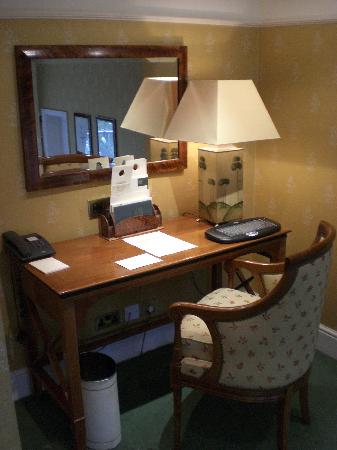
Then again recently she had been waiting for someone in the lobby of the national Portrait Gallery, frustrated and stuck without anything to read, she began to talk with one of the attendants, sympathising with her for having to stand and do nothing for hours, the young woman clear skinned alive-looking said that it was not a job that demanded much of her brain. In between checking visits to the café to see if her friend had gone there, w-e continued talking with the captive attendant, said to her, “this would be a good job for a writer”, “I used to write” said the attendant, “I had a notebook, but now they are strict and won’t allow us to have notebooks, and I can’t remember anything”. w-e launched into an earnest tutorial on memory systems, taught the attendant to programme ideas into her fingers. She was just aware that this filled her own need to be helpful, to offer options for change as much as any need the attendant might have. But how did that change what was happening? Did it matter? The search for the truth about everything was her prison.
What about the Israeli husband of an actress friend who happened one day to be at home when their cleaning lady arrived? He immediately asked her about herself, and, before she had got her coat off, found she was married but had no children, “Why don’t you have children?” he asked, she didn’t know, “don’t you want any?” There was a Niagara of tears and in twenty minutes time he had booked her an appointment and was in a taxi with her heading for Harley Street to have her fertility investigated. Beside him, w-e felt almost saintly in her restraint, and at the same time jealous of his means to propel the problem towards possible solution.
She never did hear the end of the story, nor even the next section of it, so she did not know if that drama had resulted in children for the cleaning lady or not. Even if it hadn’t, the event would have changed her life simply by having experienced someone take so much action on her behalf. The Savoy chef she once heard on the radio talking about his teaching role at the great hotel, said that in order to teach someone something it was not necessary to point out where they had been, only to show them the road that they could now take. But much advice, folk wisdom, or spiritual admonition, came from the destination, it pointed out where the person ought to be, or might be, but did not help them to take the initial step into the road that would lead them there.
The Advice book
Most of the quotes she had to work on from Thornburn Press’s compilation of out of copyright quotations, were nuggets of truth resulting from reflections upon life and unconnected to the world of actions, while the advice w-e felt obliged to give was always related to immediate steps that needed to be taken. Look for instance at: “he that respects himself is safe from others”. – Henry Wadsworth Longfellow. “Of what possible practical use is that saying for a person who does not feel safe? thought w-e, “all that would happen would be that a person would feel bad about the implied or actual lack of self-respect in addition to the lack of safety.”
She could see that, for the purposes of the book, the advice sayings were an enhancing of the self-contained celebrity aura and helped to contribute to the media-induced sense of the famous as inhabiting a quite other world from the rest of us and also that the sayings and interview stories would, not incidentally, transform the quotations into a marketable product.
Trying to match quotations with well known persons she found “He who wants to do good, knocks at the gate; he who loves finds the gates open.” R. Tagore Thakur, depressing, suitable perhaps for pairing with someone who had set up a charity, and could therefore be seen to have, in some sense, loved and opened or had found already opened gates.
“Human salvation lies in the hands of the creatively maladjusted. – Martin Luther King Jr.” looked like something for musicians, maybe the NINs, now she had heard of them.
The unsuitability of these sayings for giving any real help was reaffirmed by a site which the computer offered her on which people posted questions to which they sought answers and or advice on an odd variety of problems . Scrolling across the screen in a loop were technical questions, “how can I change a car’burettor?” bewilderingly obscure but look-upable questions, “how much was a loaf of bread in1932”, and possibly related to that “What is most frequently eaten in Berlin?”. Some questions were incompletely formed, or required context, “How many other senses do humans have?” for example, and some were sad, “what is my name?” drifted past at intervals, on the revolving band of that day’s enquiries.
In brief prophetic mode w-e could foresee a spate of television theatre of cruelty ‘reality’ shows in which the advice given brought disaster and pain upon those who took it.
Helmshore and Christmas
Sylvia and Scott together had transformed the common room into a glittering, twinkling light grotto, but the dank, damp December weather would bring a pause in the computer course while the residents braced themselves for Christmas, the New Year and the grandchild besprinkled interval between these. Year three of the nearby Brinkorder School for girls would visit bringing plastic wastepaper bins covered in glittery wrapping paper containing tins of tuna, teabags, and mince-pies, each item parcelled up with touching quantities of creative effort and Selotape.
The year was drawing to and end and w-e felt that her explorations had left her with far more knowledge than she had before she started them, but paradoxically and pleasingly freer due to her understanding of the yet vaster reaches of knowledge surrounding her that would remain for ever beyond her grasp. She was ready now to embark upon a cheerful exploration of defuse.
___________________________________________
CHAPTER THREE: THE THIRD GATE -DEFUSE
___________________________________________
The Third Gate – Defuse
A cemetery walk; the sub-post office; the necessity to acknowledge fate; dead baby stories; in Holmbase; the academic view of healing; no exact contemporaries.
Defuse: Lear
Chambers’ gave defuse as Shakespearian, meaning to disorder, the adjective was defus’d (for diffused). w-e looked for a Shakespearean reference for the word and found this from act one scene four of The Tragedy of King Lear. In a Hall in Albany’s Palace Kent enters disguised.
“If but as well I other accents borrow,
That can my speech defuse, my good intent
May carry through itself to that full issue
For which I rais’d my likeness. Now, banish’d Kent,
If thou canst serve where thou dost stand condemn’d,
So may it come, thy master, whom thou lov’st,
Shall find thee full of labours.”
[Horns within. Enter King Lear, Knights, and Attendants.]
She wondered that Kent, the person in Lear whom the dictionary had drawn into her stream of dilution was to be one of the three people left alive at the end of the play. His kindly deception, the disguise of his appearance and voice were set against the wicked deceits of the two daughters and Edgar. Seeing this isolated extract she recognised the play’s themes of truth and lies. Kent, who after all, had changed only the outward aspects of himself, internally remained true and wished Lear well is set against Cordelia who told the truth without disguise and dies because of it, while the daughters put on pleasant faces which disguise their ill intents.
She remembered Kurasawa’s Ran, his film version of Lear, the simple opening with the sons dressed in primary colours, sitting within a small fenced off part of a mountain, the story begins like a fairytale, the good and the bad are easily defined, seem obvious, the results of actions predictable. There was a moment of boredom while she thought “this is going to plod along”. But then a small complication occurs in the plot, the argument is not so easily divided into good and bad, and as each scene continues the truth and lies, good and bad motives become entangled, cannot be separated, the journey is from primal order to terminal chaos, it washes out easy assumptions, and in the end forces an abandonment of judgemental attitudes and an embrace of what? She remembered crying for Lear, the final shots, as she remembered them of the flute-playing blind fool wandering on the edge of a cliff, safe for the moment, but destined to fall to his death. At the time she had felt the universality of this ending, but only today had it’s meaning settled into words. The power of the story had lodged itself, as the Snow Queen’s splinter of ice had lodged in Kay’s heart.
An Indian story told her by one of her tutors expressed a Lear theme in a different form. Her tutor had lived in a house that backed onto a canal and had started a ‘pirates’ boating club for children which, fifty years later, was still thriving.
The story was about a snake that killed everyone that came along the road where it lived. Then it had been converted by a holy man and stopped attacking people, as a result it was hungry, badly treated and miserable. The moral of this story was that even if you are not vicious, you must not let other know you are not vicious or they will attack you: so writhe and threaten, hiss and attack, pretend to be about to attack, or be attacked.
Presumably her tutor had told her the story for a purpose and although w-e had understood the essence of it, she had not experienced herself as powerful, nor had she acquired any established mode of rearing up, of hissing in a threatening way. Though she had had the feeling of the hissing striking snake while at school where there was a lot of bullying, but she kept it suppressed. She had argued to herself that violence was unpleasant and wrong, she did not like suffering it and was determined not to be the cause of it in others.
Not that withdrawal from the violence was a passive response, it took strength to refuse to fight back, and w-e now recognised that she had formed a fierce strength but it was used to withhold, to avoid violence and the threat of violence, and by extension life itself. Here was a noble truth, perhaps the very central one in her being which she needed to let go.
A Cemetery Walk
It was computer course day. On her way out, through a glass door in the hall, w-e saw set amidst twinkling lights, velvet bows, origami foil stars and loops of tinsel, the long lap-topped table garnished with diligent residents each now seated upon a newly provided cream and gold municipally donated cushion. When she reached the bottom of the duck pond hill there was a tangle of noisy children in a school group. Not wanting to walk behind them she turned into the drive that led to the cemetery gate and found herself behind a man puffing out small coughing sounds and in front of two women who followed her talking, she was not pleased. The cemetery had always been quiet and that is what she required and expected of it. If only people could be turned on and off like lights, usefully there when you wanted company and conversation, and not when you didn’t.
She noticed for the first time that there were two distinct types of arrangements for the watering can stations. The older kind had a plinth on top of which there was a box for the watering cans, and some had hooks down the side for additional cans to hang from. But newer and clearly funereally-influenced stations had been made recently. Each had a tomb-sized and tomb-shaped concrete base with a solid wooden cross at each end which supported a Swiss chalet pitched roof rising to about ten foot high. The cans hung from a cross beam, sheltering under the roof. It seemed an extravagant arrangement for watering cans which surely by virtue of their function were made to withstand wetness.
w-e was immensely cheered to find a version, new to her, but clearly older and more courtly than the red notices warning of the danger from falling headstones. It read: “Some of the old and dilapidated memorials may be unstable. All visitors should keep to roads and paths and prevent children from walking on or between the memorials.” This flexing of tense and preposition came from a different era, it was in its linguistic way a monument to something no longer with us.
Some way behind the notice in the middle of a pathless patch of ground was a grave which looked like a bed, propped against the headstone was an alarmingly large teddy bear, and a framed full colour painting of the virgin. Through the many bunches of flowers there glinted lights, surely not Christmas decorations? They were oil lamps. The holly trees were weighed down with berries, more berried than w-e had ever remembered, their abundance a portent of extreme winter cold, there was a small alpine shaped mountain of clay beside a waiting grave.
The Sub-Post Office
A subject on which there was much communal Helmshore conversation was the sub-post office and the ogre that dwelt therein. Often, drawn together by a cathartic need to outflow their experiences at the counter, residents found themselves in informal groups for surprising amounts of time recounting their blow by blow postal dramas and though it would be possible to see this as less abstractly ludicrous than the experience of realising that one had spent time talking about the royal family, yet again, and though it hit some common theme about which everyone held views, practised tactics, the ends of these conversations were never satisfactory.
The woman just visible behind the post office bars was a hissing snake, she had her own theatre of cruelty. Decades of practice in the art of wrong footing enabled her to entangle customers, forcing the most patient of them into frustration that aroused angry self-protection. Being extremely slow in everything she did softened up her victims by causing queues, mostly of elderly people who, because they could not easily stand for long, tried to find something to lean against, during the long wait, but there were only cardboard or plastic shelves displaying sweets which offered no support. The queues stretched through the corner shop and outside into the street, loosing emotional elasticity. By the time they got to the counter customers were easily broken. w-e had tried to carry out a whole transaction with this woman without an argument, but so far had not succeeded. Her near neighbour Mark came by as she was recounting her latest unsuccessful attempt to post a parcel and emerge in good humour to Sylvia. They were upstairs in the narrow corridor. “You must get more aggressive he said, “I gave her a terrible time, she will never forget it.”
He had once gone in for a renewal of something the post office renewed and by a miracle there was no queue. This resourceful woman shouted at him for being there on a Wednesday, which was her busy day. “But I smiled at her and said, “”I don’t think you understand, I don’t care if you are busy or not. I don’t care about you at all, I only care about me and I have all the time in the world.” “ This shocked her into submission and won him the day, but lost him the future use of the post office. The only person w-e had witnessed getting through a transaction pleasantly was a blind and deaf man who could neither see nor hear her unpleasantness and so remained immune to it. There again, this seemed too great a sacrifice to have to pay.
The necessity to acknowledge fate
w-e’s friend Electra was writing about gambling, saying that risk-taking is a part of life, that it is necessary to learn to manage risk in relation to skill, and it reminded w-e of a book she had read about fate and the value of fate as a concept, acceptance of there being events or situations which are not susceptible to alteration. According to the author it is necessary to be neither bowed down nor resentful of fate, nor to try fruitlessly to overpower fate by will, but to set sail by it. By taking this approach to gambling Electra was entering a usually polarised discussion where harmless leisure activity, “we like to have a flutter” was set against destructive addiction, the unfolding dramas of Gamblers Anonymous.
But, thought w-e, stories that we read or tell have an end, and, while still on earth, we do not. We roll on, are rolled on, overcome and overcoming, and if we are to set sail what is needed is multiplicity of story, some new stories starting before the force of the old one is spent, waves of stories interconnecting and interrupting each other, going on after we draw in the last breath, the story of which will be in the middle of someone else’s story.
Looking again at her plan to dilute her way to freedom w-e became aware that dilution on its own certainly would lead to dissolution, but that that both dilution and restriction were necessary, it was learning to manage them that was necessary; chaos and order, the inclusion and exclusion of others.
We can remember that whatever stories we have been told about ourselves, our families, our pasts and futures, which ever story it is, it is only one, one of many, we can enter another one, at any time, hop buses, become contained and destined, on the way to somewhere for a short while, then leave and try something else.
Dead baby stories
Clay baby sculptures by Camille Allen
w-e had always understood from her mother that her paternal grandmother had died of appendicitis. Not till years after her mother’s death did she learn from an uncle that his mother had died in childbirth, her baby had also died, a fact her mother must have known but had perhaps wished to protect her from, unless she too had been shielded from this truth. No way of knowing if this deception belonged to the Goneril and Regan camp or had the kindly deception and disguise of Kent, and who was there left to say either more or less about this now, her father had had no memory of his mother at all though he had been ten when she died. Dead babies fill the calendars with uncelebrated dates, are a crowd of unacknowledged shades bumping like bunches of heavy balloons along the ground on umbilical cords. Imagine if they could sometimes be seen, as in children’s stories which suggest that elves and fairies may be seen sometimes, at dusk on midsummer evenings. Suppose in Oxford Street one should suddenly see all the dead babies hung like seaweed about the ankles of the women and some men. Suppose also that the men could look down and suddenly become aware, for the first time, of the dead babies they had fathered.
Not until she was in her seventies had her maternal grandmother told her that her first child was still-born; that her own mother, who had disapproved of her marriage, arrived to say “you made your bed, now you must lie in it,” and left. Her grandmother’s grief had been terrible to witness, she expressed the fear of what had happened to the baby, which she had never seen, that it had not been buried, no one told her what had happened, she was terrified that they had thrown the body on the fire. This story had not been told for fifty years, and was told then only in a most intense and fragmented way, little was said about before, the pregnancy, or the aftermath, no mention of her husband and how this affected him or them together.
This was a stopped story whose narrative had not been allowed to wash upon the shore, advancing, breaking and receding until it mingled with other tales, became part of the whole, a communion. There had been no sharing of this with friends, and no absorption of it into the great stories which hold emotions we cannot contain, no reading of Job that might have comforted her, for in w-e’s opinion, Job is the greatest story, the greatest comforter wrapping every suffering in the mantle of divine creativity, allowing the inexplicability of suffering to be without denial of the magnificence of life itself.
w-e embraced notions of the conscious reforming of experience, irrespective of whether this corresponds to any usually accepted view of actuality or not, holding to religious belief for example. The Twelve Steps motto ‘letting go and letting god’, de Causade’s trust in divine providence, the practice of meta, ‘may I be kind, may I live in loving kindness’ which had inexplicably transformed her relations with the sub-post office lady, who nowadays treated her with maternal friendliness.
In Holmbase
On Sunday w-e had gone to Holmbase to buy some paint, it was quiet and peaceful, a cathedral of long aisles, mercifully without electronic carols where it was possible to fall into a trance communing with products, envisioning an unending future of interior improvements. The paint colour she wanted turned out to be for wood and metal only.
“See”, the man said pointing at the chart, and w-e saw that over the marigold coloured square was a note which said “suitable only for wood or metal”.
“Couldn’t I use it?” she asked,
“You could, but what you need is bathroom paint”. He was a kind man, and his friend who drifted up to consult was also kind, in the moment there was niceness all round.
“What is it like to work here?” asked w-e as the man negotiated the computer screen and obeyed its instructions squirting shots of colour from a machine in to her tin of marigold substitute bathroom paint base. He thought about it, he had to keep unblocking the nozzles of the machine, so that the colour streams could be milked without squirting paint essence over the side of the tin. He had a bundle of special disposable plastic implements to do that with, and tissues to wipe down the side of the splattered tin.
“Does it depend?” prompted w-e.
“On your manager”.
“Much like everywhere, I suppose, some good some not so good?”
“Some appreciate everything you do, so that is nice, but some are angry and shout.” He paused, “but then they do come back and say ‘sorry I shouted’. So overall yes it is a nice place to work”.
“Do I need white spirit for this paint?”
“No, water based”.
“Well that is a blessing”
The man’s face softened, “it is”, he said, “I’ve just painted my bedroom and I ran out of white spirit, I used a whole bottle of it trying to clean a brush.” This was a pure joy for w-e, she knew about brush cleaning and was able to give a succinct though detailed account of how to do it.
“What colour did you paint it?”.
“Green, but it was too much, I had to redo it in eau-de-nile. My mother is really impressed, she wants me to do her bedroom, so I’m doing that next”. “What colour?” asked w-e as the tin was shaken in the shaking up cupboard to mix the colour. “I think she wants lilac said the man fastening little spring clips on the tin lid, “nice” said w-e and “thank you”.
At the check-out she queued behind a Jewish man wearing his kippah, who had been sent out to buy light bulbs, a task manifestly beyond him. w-e wondered what his wife had been thinking, but then, as the man floundered over screw or bayonet fixings, about which he had made the wrong choice, the young girl on the till, said “don’t worry” and rang for someone to go and change it for him, it turned out he had the wattage wrong as well, they were obliging, they would change that as well, “bayonet then not screw, and sixty watt not a hundred, no problem”, the man apologised to w-e for holding her up, she was gracious, the till lady consoling, really, thought w-e this is like a how-to video of inter-customer and shop-person relations. When the right bulbs came back the man apologised again, to the till lady who smiled and said it was fine and to w-e who did the same. Then, when he had gone, the till lady apologised all over again to w-e for the ‘hold up’ and w-e consoled her, the flow of niceness purled on, a healing stream which carried her out into the car park, up the illicit shortcut path made by customers through the industrially planted shrubbery along the side of the motorway, down the pedestrian bridge and back along the road to Helmshore.
The academic view of healing
Once at a seminar at her university, the great and good had gathered to hear someone speak about his research into healing. w-e never knew why this man came under attack from the academics, he set forth a disparaging account of the healers he had met, their methods and results. More or less what w-e would have expected the academics to approve of, so there must have been some politically institutional in-fighting that made them gather so vengefully. What w-e remembered most was the man giving an account of someone who lived in squalor and poverty in a high-rise flat who had experienced miraculous relief of pain after a visit to a healer. “But then” said the speaker with satisfaction, “the pain came back again”. For him that invalidated the healing, but w-e thought, why not look at it like eating. If you went out to a restaurant and ate, hunger pains would subside, you would feel well, then afterwards the hunger would return. No one who understands the necessity for food would say, “see food does not work, it does not cure pain, it is invalid”.
No exact contemporaries

For no reason that she was aware of w-e began to think about the birth of the Christ child, and the slaughter of the innocents, she realised that because of this there would have been an entire age group missing in Bethlehem. It raised questions about fate, about how much a person knows of the entire story that will be wrapped around them from swaddling clothes to shrouds. If Jesus understood his fate, which the story says he does, did he also realise the relation of his own birth to the fate of the slaughtered boys, and if so when did he come to connect these? Inside all stories are a hundred others waiting to bulge out of the acceptably bandaged myths.
The feast of the Innocents lies painfully between the celebrations of Christmas and the New Year, though avoiding it is understandable, its suppression weakens the efficacy of the wheel of the liturgical year, the function of which is to acknowledge and touch on all and every aspect of human living.
____________________________________________
CHAPTER 4 – THE FOURTH GATE – LEARN
____________________________________________
At the Wilheim Institute; looking after Clara; in church; ordinary paint; her turquoise necklace; dentistry …
At the Wilheim Institute; looking after Clara; in church; ordinary paint; her turquoise necklace; dentistry
Erasmus
‘learn v.t. to be informed: to get to know: to gain knowledge, skill or ability to: to teach (now illit.) – v. t. to gain knowledge or skill: – p.a.t. and pa.p. learned or learnt. New Learning, the awakening to classical learning in the 16th century, led, (in England) by Colet, Erasmus, Warham, More, etc. [O.E. learnian; Ger. Lernen. Cf. O. E. Læran, (Ger, lehren to teach.]’
At the Wilheim Institute
At the Wilheim Institute w-e had tea with a professor whom she wished to match up with a quotation from Erasmus, for the Advice book. At the small circular table the two chairs facing one another were low and deep enough to cut out the possibilities of conversation unless both parties leaned forward in earnest seemingly conspiratorial crouches, thus the options were to shout, not in keeping with the general atmosphere, or huddle awkwardly. No middle ground, thought w-e whose mind had been running on Erasmus and his admirable search for middle ground. Whatever subject was raised, her professor had the ability to skim gracefully like a flat stone across the surface of it before inevitably entering his own subject: flutes and flute playing, upon which he discoursed interestingly for forty minutes. w-e did not feel resentful, she could match what he was saying with certain of her own thoughts and the two streams of information allowed her to make useful connections. The flutes the professor was saying “were each made to resonate with the specific geographical place of their origin, each flute sounds differently depending upon the location it is played in”, and though of apparently simple construction, a wide bamboo with five holes, no reed, or other embellishments, it was capable of such a variety of sound qualities that a single note might be played on it everyday for a life time without exhausting its possibilities or boring the hearer.
This process reminded w-e of a patchwork blanket she had once made from knitted squares of soft angora and cashmere, in white, pink and black with a small purple boarder. Each morning she would pick the blanket up, fold it and then throw it on her sofa, every day it fell differently, eternally, pleasurably new and not new. So was not this the same as the practice of blowing and listening to the note, or the same as anything attended to on a daily basis? The beauty and wonderful variety surely lay, not in the flute nor its sound, nor the blanket and its folds, but in the process of witnessing them.
The quotation from Erasmus that she wanted her professor to reflect upon was: “in the kingdom of the blind the one-eyed man is king.” (In regione caecorum rex est lusucus) Adagia (III, IV, 96), she had been surprised that this was not a twentieth century quotation, it had the weariness and resignation she attributed to that time.
The question that this thinking aroused was: why do people need to devote themselves to daily prayers, for that is how w-e regarded both the flute paying and blanket throwing activities, could life not be worth living without clinging to some process to make it so, was life worth living or not? Years before, in time of trouble, she had clung to a new age guru’s tape, listened to it night and morning, followed the injunctions of the soft Californian voice that suggested she thanked her furniture, ‘for being there’. Though absurd and interestingly so, this was beneficial, it worked perfectly to raise her spirits, and when she lent the tape to a friend he also loved it, later he told her that every time it rained he could hear the guru voice saying solemnly, “without the rain we would have no
ve-ge-ta-bles”.
Coming home on the tube it was crowded, she did not usually travel on the tube in the rush hour, she clung onto a pole and got out a cultural studies book on the influence of rock music on American politicians, and tried to screen out her surroundings. With a youngish man with dark healthy hair and a yellow silk tie to her right, and a woman with an older Botticelli face in front of her there were flickers of something nearing a transmission of reaction, a giving of the self in a microscopic way. The train had drawn into a station where the doors in the last carriage would not open, this fact had been spelt out over the speaker system, yet, when the train was already in the station, a couple from the very back of the train had begun the almost hopeless tasks of getting themselves through the congestion to the distant open door. The brief drama of this had created some fragile communal linking resulting from an us-and-them division, it had died away shortly after the train had left the station.
Looking after Clara
Years before w-e had looked after Clara, a baby about eight months old who was determined to walk. In the summer afternoons they went to the park and Clara demanded to be held up, to stagger along the grass for as long as w-e’s extended arms and bent back could manage it. She hated to be in her pram, her entire focus was on walking, when they encountered walking people she would cry with anger and frustration. The full flow of her passionate drive was entirely successful it magnetized w-e to help her, it carried Clara herself through a whole range of emotion to the glory of standing and taking steps. In the moment of achievement she was a small goddess radiating joy and power. She compared Clara to herself and to the people on her journey home in the tube, hundreds of people burying their frustrations and any joys behind closed eyes and mouths, actually numbing large parts of their receiving apparatus, as a recent neurological study had shown. People who regularly travelled on crowded trains managed to anaesthetise themselves to the point that, when researchers asked them questions about their journey, they could remember absolutely nothing. There was something disturbing here in the comparison, looking at both extremes w-e felt that whatever process she had followed to arrive at the numbed-out travel state was also something she needed to let go, or at least to employ only rarely, she suspected that she spend a large part of her life in this veiled condition.
In church
Being in church confirmed her in this opinion, the sermon had been what w-e thought of as a video sermon, these are the kind that start, “Mustn’t Mary have been exhausted on that donkey?” In fact the discomforts of riding a donkey while pregnant were brought up later, but the actual sermon began, “Imagine how Joseph must have felt when he learned Mary was to have a baby? w-e’s heart sank. Fortunately, in a way, there were so many noisy young children that only patches of this dreary sermon reached her, she looked at the alter screen on which seven angels made by children from the primary school next door had been attached. Each angel somehow manifested something of its maker, one was especially buoyant, the wings rising straight up from the centre of the back looked like a parachute that suspended the angel in mid air, it reached forward with a smile, while a heavier more nervous looking angel had outstretched arms that seemed to be warding off something. The others hung there in commuter mode, with no transmission of awareness of where they were or what they were doing.
The point was Christmas had not ever been happy in her family and there seemed to be only so much you could do to alter that now. When her father was twelve, his own father had remarried. The new wife was a Quaker whose first decree after arrival in the family had been to banish Christmas, there were to be no presents, no celebrations. Hard to imagine any woman being so foolish, she was a mild woman when w-e met her, given to crafts, poker-work and appliqué cushion covers, but she was a fairytale ogre step-mother to all four boys who hated her, and by association Christmas. Thus, though generous at other times of the year, at Christmas her father gave no presents and went into a depression. Her mother felt obliged to be cheerful for both of them in compensation, and used to say so, resentfully. The Oprah guru’s “and how does that work for you?” would have been a useful question, had there been any prospect of an answer, but the concept of inter-relation with feeling and event had not been active around that time which was drained of all hope that change might be helped to occur.
“In the Biblical sense of a time for everything, there is a time to gather together and a time to disperse”, said w-e to her self “but we did not learn how to do either, to connect with each other or to separate from each other”. Without the skills for a seasonal, or moment to moment, changing flow of closeness or distance in relation to others, w-e recognised that her relation with the computer was almost perfect, it was what she wanted, there when she needed it, and switched off when she didn’t. Or, it was what she had wanted, but in terms of the Inanna descent, in the process of loosing her jewels, what she valued, the symbols of her power, this mode of being might also need to be lost, even at the price of nakedness. It was not a welcome thought.
Ordinary paint
w-e was on the floor putting a fourth coat of yellow paint on the, originally black panels round the bath in the communal bathroom when Merrys put her head and one hand around the partly opened door, “Oh”, she said unconvincingly, “I thought Margaret was in here,” “the paint is wet” said w-e, not pleased to see her. “Do you mind if I ask you a question?” this was an opening designed to herald trouble. Merrys was not ever found on the first floor, she lived downstairs where she guarded the entrance hall against incoming strangers.
“What kind of paint is that?”
“Its bathroom paint”
“But it is just ordinary paint?” w-e added nothing so Merrys continued, “only” she said “the paint everywhere else is fire resistant, and this is just ordinary paint, isn’t it?”
“Sylvia is quite happy with it,” said w-e “if you have a problem with it you must take it up with her.”
w-e’s painting of the communal bathroom was unprecedented, the general understanding was that you had to wait until the housing association painters came in to re-spray grey speckled paint over the textured walls and there would be no choice in the matter. w-e had been tired of bathing in an institutional bath-house atmosphere with no curtains and had set about making the place comfortable, the others on her landing had been pleased, now she foresaw letters quoting infringement of Helmshore Housing Association rules, a procession of fire-proofing paint inspectors, perhaps carrying small monitoring gadgets with dials, the Inquisition. Scenes from Brazil came to mind. So she stopped work for the day and only hours later remembered that the bathroom along the corridor had recently been painted by the housing association’s painters with ‘ordinary’ paint in a pleasant aquamarine colour chosen by Sylvia.
In terms of connections with other people, the encounter with Merrys had certainly been one, but not one that was enjoyable. w-e expressed her irritation to Sylvia, they were in one of their usual discussion places outside Sylvia’s office. Sylvia was wearing a sparkly knitted gold top, in keeping with the festive season, somehow on her it looked demure. She listened to w-e and sympathised, she is like a plant thought w-e, with leaves that respond gently to every drift of air, its like talking with a bamboo grove, as calming as standing by flowing water, looking at the light move across it.
“When people get old” Sylvia said kindly, “they have no power, no choice over anything, I see them in hospital and they can’t even choose what to eat, so they need somewhere to exercise power” w-e knew that was true, looked down the days to her own approaching powerlessness. She thought of the yoga she did to keep her body from cramping and seizing up and thought “I want to take notice of this now, to plan an area of power for myself, somewhere I can continue to exert influence,” she wondered about Sylvia, “where would her area of power and influence lie after she retired?” Lear suddenly came back to mind, and Karosawa’s blind flute player wobbling on the cliff top.
He was a better image of death than Bergman’s silhouetted medieval black clad scythe carrying figure, which he was surely a filmic quotation of, because he aroused compassion for human fate and not just horror. Compassion led to a feeling of union with others, horror to a separation from them. In relation to choice, one seemed more desirable than the other, but both must be necessary and a kind of emotional mobility needed to be practiced, a workout of the full range of the affect, so that all these responses would remain in good condition, all shades of reaction available so that the world would neither shrivel into something uncared for nor inflate into something terrifying.
It was wrong to enthrone certain conditions and ways of being as superior to others. w-e knew from her quotations book that emotional approaches to life went through fashionable cycles. Both approaches, assertion: ‘taking charge of your life, making it happen’, and submission: ‘not pushing the river, going with the flow’ were communal attempts to find a mode of being that would be always right, whose voice would be strong enough to drown out dissenting anxieties, but the anxieties themselves must be listened and attended to,
To return to her word, ‘learning’ for her had been the acquisition of a shell, a necessary protection from the unmanageable flow of life, but now the restrictions of learning must be eased, loosened, not destroyed or abandoned but allowed to adjust, reform.
Her turquoise necklace
Three days after a walk up the hill to the duck pond with Mark, she had found her turquoise necklace lying at the entrance to the cemetery, most of it smashed, she had picked up the surviving fragments. This was a loss she had not been aware of, her necklace had simply gone. Perhaps, as in loosing her powers, Innana did not have to remove them, maybe no one has to actively make this happen, one day the hand will go to the neck and find the necklace gone.
Dentistry
Due to do an Advice interview with a French political writer w-e had discovered a boil-like swelling on her upper right gum, and fearing that it might be an abscess, she cancelled the interview and splashed her way through the rain to the nearby dentist’s surgery. A wraith-like procession of the ghosts of dentists past filed through her mind, days when dentists were men and had substantial surgeries, were Anglo Saxon and stayed put. Then there were the waves of Antipodean male dentists working their way in series of six month breaks in their global travels, days when conversations were still held, the dentist enquiring in hairdresser mode about the patient’s occupation or holiday plans or if they were a family dentist enquiring after grandmother, parent or sibling. Dentists who gave a running commentary on the treatment, let you know what they were doing in there and why. Gone, was Mr Handison who extracted her wisdom teeth but was know for his brutal injections, gone beautiful Mr McDermot who had a breakdown and went to Richmond, gone the nameless Bayswater dentist who dropped a drill in her eye, the Harley St ex-opera singer whose surgery was squalor but whose conversation and dentistry were confidence boosting. Gone, she acknowledged all gone, the National Health in its blessing was supported by young just-qualified dentists for the brief period before they acquired their own private patient lists, for many of them English was a foreign language, and there was no looking forward to any interflow at all.
Sighing she entered the reception area and hearing that her own dentist was not in, agreed to see a private dentist straight away. The dentist herself led w-e to an upper surgery, she was solicitous, money was present, it perfumed the air, sweetened the process. w-e’s last but one dentist had been a Chinese young woman trained in Norway who had held oddly intense conversations with her dental nurse as they both bent over, poking implements into her mouth, about the dental nurse’s preferences for certain types of biscuit.
Today’s young woman dentist, however, had acquired many of the old fashioned attributes of the dental visit, still necessary no doubt in private practise. She communicated, enquired, expressed concern, and while writing her notes and a prescription for anti-biotics, asked a hairdressery question, “What do you do?” and having heard the answer, got out a sheet of A4.
“Will you read this? It was given to me in a Christmas card by one of my patients, he wants to be published.” This was what w-e now termed a ‘Homebase moment’, she had been asked for advice and was fully qualified to give it, she looked down at the set of four line rhyming verses, a homily on multicultural religious differences set against the common human need for compassion, hymnal in form it was surprisingly touching, w-e felt tearful, but repressed the sentiment. She was able to explain about poetry groups, how they might be found on the internet, recommend them for the writer, sais why she thought he might benefit from joining one. Her dentist became exuberant, she thrilled at the wonder of w-e appearing just in time to help her to help her patient.
The next day w-e went back to see her own dentist and was treated in such a friendly and open manner that she was ashamed of the previous day’s thoughts, her comparisons of private and National Health treatment. Resentment was such an unpleasant emotion, but like the beginnings of a toothache it needed to be taken notice of, a symptom that she must allow to stir within her, a reminder, in Death’s words to her she must “set her ear to the great below, and listen to the screaming”.
____________________________________________
CHAPTER 5 FIFTH GATE – OHONE
____________________________________________
Ohone, (Ir and Highland) interf. of lamentation [Ir. and Gael. ochoin]
Listening to the great below; One night at the end of a long walk; Tooth–centred living;
the year turned; Sedna.
Listening to the great below
This Gaelic lamentation brought w-e immediately back to the Ireland of her schooldays, the recounting of legends, the history of oppression and lack, of mourning the loss of culture, to feel the fate of the Highlands and Ireland, conquest, ruin, dispossession, these must be relevant to dispersion and loss of noble truths.
As she fell into thoughts of the Ireland of her childhood, and the Ireland she had learned of in legend, which had never been, she felt not just the loss of the time and place but the annihilation of that time and place, as though with every door through which she walked she destroyed for ever the room she had just left, and it came home to her that her past was a glittering jewel that must be laid aside or given into the hands of the gate keeper, she should gather her stories and tell them one last time, give them away, send them away for ever.
Though of course this could not be done, not one by one, not even in the whole span of stories, it could only be done as the legends did, as in Lear, by collapsing and condensing, compacting and reforming materials, just as the minerals were pressed and reformed, mined and polished and cut and set to became adornments, but for others.
One night at the end of a long walk
One night at the end of a long walk with a friend, at about three in the early morning, they found themselves down a small near cul-de-sac in an alleyway that led to the main road. He was tired so they sat on the curb, and there came over w-e the memory of walking down that road to her family home in a nearby square, and that now the road where they were was exactly as it had been years ago, there was no sign of change, and she felt in her body the life that she would have been walking towards, the lives of her parents, brother and grandmother spinning along just as if they were all there still. Her body walking towards them carried in its cells convictions and certainties that her mind contradicted and in doing so it was as though her body and all its constituent parts had been shocked into an awareness of their deaths, as though a terrible accident had taken all of them from her in one moment. So that, before that moment in her memory they had all still been alive, but then, suddenly they had died, not just dribbling away, one by one, as had been the case, but all together, and also not just them, but all the people they had known, the shops they had shopped in, the cars they had driven, all the threads that webbed out from them were broken.
She understood that before she had been born, had known them, there were other lost worlds of which she had only heard, and the weight of these dragged at her parents invisibly, funnelled them into the black holes where everyone she knew would go, herself, her friend sitting there exhausted on the curb. Time with its processes undisguised or unadorned by future dreams in which escape seemed possible, was revealed to her.
Tooth–centred living
Meanwhile, or in the meantime, there was the need to find ani-biotics for her tooth. Sylvia was away, and Helmshore seemed in a post-festive coma, the decorations glittered, but no one was about, the waves of children and grandchildren had subsided, probably drawing breath for, or reserving some strength for the New Year celebrations, when the fleets of identically bobbing, giant inflated snowmen and Father Christmases would shrivel down, giving way to fireworks, the annual ritual money–burning sacrifice.
Dentists were no exception, they were collectively away, leaving behind the technical means of acquiring help such as might satisfy a report written on the provision of access to healthcare during a holiday period, but not one that in actuality was less than hostile.
Eventually, w-e got to a memorial hospital where an ‘immediate access’ ‘doc-centred’ doctor had agreed to leave her a repeat prescription. Her mini-cab driver, whom she had already had the pleasure of being driven across London by, kept an unusual silence in which nevertheless w-e could hear on internal auto-tape his usual round of miseries: financial, social, marital, together with the general pains of mini-cab driving, for none of which she had ever had helpful solutions.
She went first to the wrong place, the emergency building, and entered the reception area, festooned with decorations and lightly dusted with quietly sick-looking individuals. She sought help from a woman, with nicotine stain coloured hair and skin like corduroy, sitting in the glass information box who was turning away a patient who had failed to follow correct procedures, and was re-directed to a small hut at the side of the building with a closed door, she rang the buzzer. After she had confirmed, through the entry phone grill, that she had telephoned, had given her name, spelt it, and said why she was there, a brisk-looking woman quarter-opened the door and thrust out an arm, flapping the prescription at her. By this time an agitated couple carrying a child were standing behind w-e, the door woman was defending the entrance apparently determined that they should not be admitted, as she was leaving w-e heard the mother say, ‘but we tried for thirty minutes to get through’.
Back in the emergency building w-e found an exceptionally kind nurse who stopped filing long enough to come outside with her and semaphore the complex route she might take to catch a bus home again. When she found the bus stop the shelter was crowded with cold people, she asked a hatless woman nearest her about the bus she wanted, buses came into view but too far away to see the numbers, so she asked a man nearby who couldn’t make the numbers out either, but in any case, none of the buses were stopping at their stop. A micro-climate of fellowship formed around w-e, the very cold woman, the man and his girl-friend a willingness at least to acknowledge one another. When a bus did arrive it was wanted by all of them except the cold hatless woman, as the queue to get on the bus formed, w-e suggested to the woman that she move inside the bus shelter to be warmer, but the woman called out to her like a child ‘Oh, you nasty, nasty person,’ and w-e thought what a magnificent projection that was, or to use another terminology, ‘what a clear example of abandonment trauma’, triggered by experiencing the moment of friendliness, the maternal concern for her warmth, followed so soon by desertion.
w-e wedged herself in the back of the bus, her mind still running on mothers and babies, she thought: “the baby Jesus and the New Year baby are really one and the same, though wrapped in different stories, each baby is a redeemer of time, an Alexander whose eyes and smile promise a radiant future, an emotionally ventilated, unpolluted lobby where death if not completely held off, was challenged by continuance of line. Looked at this way it was no wonder parent child relations were difficult thought w-e as the bus hiccupped its way south. Redemption and deliverance, it was a lot to expect of babies, to demand of children.
This demand was what weighted down the unborn dead babies, secured them to their unmothers. The babies had never had the chance to fail as redeemers, the obscuring layers of resentment which would usually have silted up, and eventually separated them from their womb-myth destiny, had had no chance to form. Then she thought “but the mothers never do give birth to the myth babies, even when their children are born, their saviour babies remain residual shadows, wrapped as the miscarried and aborted babies were like wet seaweed around the legs and ankles of the mothers.” The now nearly empty bus lurched down the hill. “How much better it was to pour the hope and trust of salvation into the baby new year, ‘things getting better’ or if that seemed impossible then trusting to the divine child, the perfect son who would save everyone, and die before things could go wrong. But, would either of these alternatives have helped the poor regressed woman at the bus stop whose relations to salvation were so painful that even the separation from a bus queue acquaintance speared straight into her heart?
The next few days were not pleasant, the cold she caught, probably on her journey back from the hospital prospered and developed into ‘flu’ which formed its own micro-cosmology of pill schedules inside which her life revolved. She focused on throat-related activities, breathing, swallowing, coughing. On a rare excursion into her corridor she met Molly who had her right arm in a pink plastic collar and cuff support, she was standing by one of the emergency two-way radio ‘lifeline’ link, boxes. These were attached to the walls of the corridors throughout the building and they were also in each resident’s apartment, as were unpleasant dirt patinated white cords with orange triangular pulls that dangled worryingly in each room and bathroom foretelling and almost inviting the emergencies to come. The red light was on in the contact box, which otherwise seemed inactive. “What happened to your arm?” asked w-e, “did you slip on ice?”, “getting off the bus” said Molly and “it could have been worse, its only a broken arm”.
“I did pull the cord when I slipped” she said and they sent an ambulance, they wanted my son’s telephone number, but that’s no good, all of them are away for the holidays, then they wanted someone else, whose name they have, to go with me to the hospital, I said ‘please don’t bother him’, but apparently I am not allowed to go to the hospital on my own.”
She was trying to contact the lifeline office now because all the night before she had been woken up by voices coming through the lifeline box in her own appartment, addressing her by a number of different names and asking if she was all right, or what the matter was. The system had gone a little crazy and now was not functioning at all. They stood there patiently but there had been no response from the corridor box apart from a loud bleeping noise which they could not shut off and which sounded through the building for the next few hours. w-e helped Molly to put her left arm into her cardigan and draped the rest around her right shoulder, she wondered at her serenity. Molly was an example of how faith might benefit a person, she was out each day, all day, with her Bible and notebook, knocking on doors and making appointments to visit, she spread the good news and you only had to look at her elegant composed self, walking at even pace through all weathers to see how the good news sustained her, “we have the truth you see” she said to w-e “and that does make a big difference”.
The year turned
The year turned. A tidal wave took uncountable numbers of lives, the emergency relief organisations went into action, an astrologer on television said that the huge amounts of money donated to the disaster fund might be connected with the discovery of the new planet, Sedna, who would now represent a new global sympathy and awareness. Good, in a round about way, it seemed, could come out of mass slaughter, there was something to look forward to, as humanity, reminded of its intrinsic helplessness pulled together. Google told her that the planet, distant and icy, had been named after the Inuit goddess of the ocean, ice having been the link between the two. The tidal wave, though not resulting from an arctic earthquake, was a terrible manifestation of the power of the ocean. The astrologer did not dwell on this, he thought the coming year was going to be an exceptional one, especially for Taureans in whose sign the Inuit goddess’s planet was right now.
Sylvia reappeared in the corridors, and w-e caught up with her while they stood with Sylvia’s arms full of carrier bags, and exchanged medical news. W-e recounted her doc-centred experience, “it doesn’t surprise me at all” said Sylvia, “Poor Ben was found by Dora collapsed on the floor and the doc-centre refused to send a doctor, because he did not have a telephone.” “But Ben is deaf and blind” said w-e “ exactly “ said Sylvia” so he doesn’t have a phone and could not have answered one even if he did. But you have to make a telephone call in order to get a doctor and they absolutely refused to treat him. You’d think they’d have more common sense. What are they thinking of, to leave a ninety-one year old man without treatment because of some bureaucratic ruling? Anyway, Dora called an ambulance. “Probably” thought w-e as she let herself in “the ‘doc-centre’ people, under the influence of the Inuit Goddess planet or not, had sent donations to the disaster fund.
Sedna
Google supplied w-e with a version of Sedna’s story, it was not heart-warming. Loved by her family and staying at home long after most girls were married, Sedna was eventually persuaded to marry a man said to be a great hunter, provider of furs and food, who took her to a distant island. But when they got there, she discovered that he was not a man but a bird, who lived on fish, which Sedna disliked, and he must, w-e imagined, have been unsuitable in many other ways. Though it seemed simply to be a fairy-story the shock of the species change was in its way realistic, that was what happened after marriage when the spouse turned out to be something quite shockingly other than had been expected.
Things took a turn for the better when Sedna’s father, who had not heard from her, came to see it she was alright, and finding her unhappy, put her in his kayak to take her home. But then, a storm blew up and such was its severity the father feared he would be drowned and to save himself threw his daughter out of the kayak, but she clung on to the side and would not let go. Not wanting to be capsized the father took his knife and cut her fingers off, so that she fell bleeding into the sea and became what she is now, the goddess of the oceans.
In its compactness, and its emptiness, this was a wonderful story, it did what w-e had understood was necessary to do with her own stories, her own understandings, it transformed events and left the transformations unexplained. The transformations were of course explanations themselves, “why did the marriage not work out?” “Well, he was a bird.” “Oh, OK.” but this did not close the subject down, the question still remained, why had she not seen that he was a bird all along?
Freudians, Jungians, feminists and others must have written reams about this thought w-e, she could see the story might also be regarded as a myth of origin, why the beautiful, beloved sea became a raging, people-devouring monster, why it mourned, moaned, and rocked itself in its unhappiness. She also recognised Sedna’s similarity to Erishkegal mourning in the underworld, though she knew no-more of Sedna than the computer had told her, that when food was scarce, and they wanted successful fishing, shamans would go down to comb her hair, make her peaceful, that sounds a bit of a euphemism, she thought, although hair combing was a pacifier, and apart from the terrible little mermaid story, hair-combing seemed to be the most generally recorded mermaid activity: sit on a rock, sing, comb hair and be watched by sailors.
She remembered Meriam, a temperamental Egyptian young woman in her university hall of residence who used to stroke her hair, and how calming this had been, how maternally soothing. Meriam’s life had see-sawed through a series of intense dramas with her boyfriend, whom she eventually married in a set of international weddings, civil and religious. w-e kept the jade, ruby, sapphire and gold Limoges lidded dish she had been given by them in celebration of the weddings, inside it had a minute photograph of them seated in some kind of hotel ambience leaning towards each other. w-e looked at their photo from time to time and wished them well.
Perhaps there was always a level of politeness in stories that edited out certain elements. w-e recognised now that she herself had edited out the little bleeding fingers, which according to the story, transformed as they fell into all the creatures of the sea, fish, whales and walruses. So a story about the pain of giving birth and perhaps, thought w-e remembering her own brother’s shocked guilt at the pain his wife endured when their daughter was born, about witnessing the blood, pain and sometimes also the death of the mother as a result of giving birth. Her brother had never recovered from witnessing his wife’s pain during their daughter’s birth. It could not just have been that one experience that tipped him out of the world as it is agreed to be by the majority, but it was significant. After the birth he was lost, perpetually on the road, for a long time he tried to get back, to where everyone else was, but as it turned out, there was no way back for him.
Somehow this process was more severe than she had expected, she was being stripped of her garments, and at the removal of each one she heard coming closer and louder the mourning of Erishkegal who would fix her with the eye of death and hang her corpse on a hook in the wall.
————————————————————————————————–
SEE POST FOR
WINIFRED EMMA: CHAPTERS 6 – 10
————————————————————————————————–
————————————————————————————————–
Filed in 2. WINIFRED-EMMA: FORGET THE NOBLE TRUTHS PAGE, CHAPTERS 1-5
Tags: Bacchus and Ariadne, body fluids, Capitulum, Cennino, Chalkedon, computer, computer course, dead baby stories, Defuse, denstistry, disability beds, Donne, Easter, Entoil, fate, forgetting wisedom, Gender in Brotherhood: Man and Mason Conference, Helmshore, Jesserent, John Updike, Language, learn, Mercury, mermaids, muller, Neoplatonic philosopher, Nine Inch Nails, Nora Ephron, ohone, Philip Roth, porphyry, shaman, Sophia Wellbeloved, St George and the Dragon, Terminator Two, the Creed, trachyte, Ucello, Umberto Eco, Winifred Emma

